













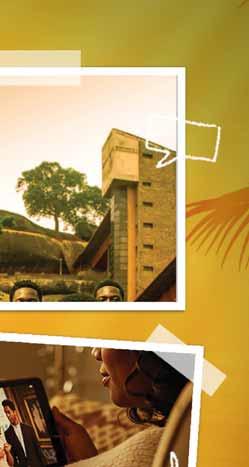















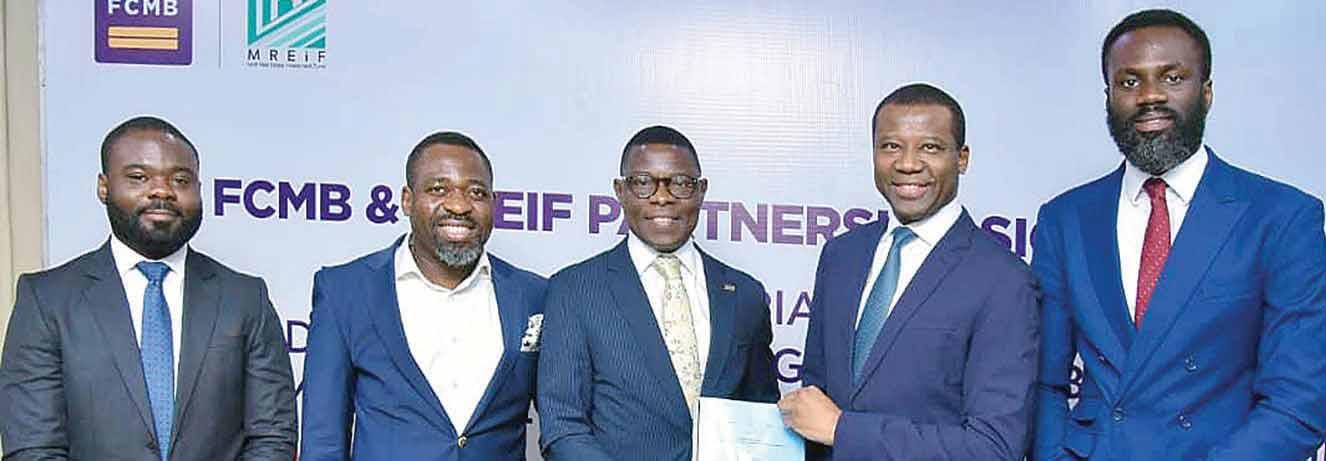
































Oil retailers say dominance of DIL in cement industry hasn’t crashed prices Urge Dangote to concentrate on refining
Emmanuel Addeh in Abuja
The Natural Oil and Gas Suppliers Association of Nigeria (NOGASA), yesterday called on President Bola Tinubu to intervene in the plan by the Dangote Refinery to begin direct distribution of petroleum products, expressing concerns that the development will lead to a monopoly and run the middleman out of business.
Speaking at a meeting of the organisation yesterday in Abuja, National President of NOGASA, Benneth Korie, explained that although the oil and gas suppliers weren’t against working with the management of the 650,000 barrels per day facility, it must play by the rules.
NOGASA urged Tinubu to stop the plan to throw its members out of business and maintain a stronghold on the petroleum products distribution network by the refinery, which has already received about 4,000 Compressed Natural Gas (CNG) trucks preparatory to the August 15 take-off of the initiative.
Korie recalled the persistent support for the refinery by NOGASA during its difficult days, urging that more consultations must be carried out to get the buy-in of the downstream sector, rather than trying to railroad everybody.
He said: “We are pleading with Mr President to intervene in this matter by telling Dangote to slow
down and go by the rules of the game. Nobody is against the refinery. If there’s anybody that supported Dangote refinery, more than anything, it’s this association, NOGASA, 100 per cent.
“But when this thing came up, we said no, we need to advise, we need to give you an idea how to go about it, even though we’ve never one day sat with him. He has never one day invited us.”
In June, while announcing the plan to take over its own distribution network, the refinery said it had invested over N720 billion to implement the initiative of deploying 4,000 CNG trucks for the nationwide distribution of petroleum products, which it said is expected to save Nigerians over N1.7 trillion annually.
This bold step, it stressed, will see the privately-owned refinery absorb over N1.07 trillion annually in fuel distribution costs, with the initiative poised to significantly benefit over 42 million Micro, Small and Medium Enterprises (MSMEs) by reducing energy costs and enhancing profitability.
Besides, Dangote stated that the initiative will eliminate transportation costs for fuel marketers and large-scale consumers and help reduce pump prices and inflation, explaining that at its commencement, the refinery will begin the direct delivery of petrol and diesel to filling stations, industrial
facilities, and other high-volume consumers.
According to a statement from the refinery at the time, it aims to meet Nigeria’s daily consumption of 65 million litres of refined petroleum products, including 45 million litres of petrol, 15 million litres of diesel, and 5 million litres of aviation fuel.
“With the average logistics cost estimated at N45 per litre, the refinery will cover over N1.07 trillion annually in free distribution expenses,” the
refinery had stated.
But the NOGASA’s National President, Korie, during the briefing, stated that the organisation was scared of the impact of a monopoly in the downstream oil sector.
He added: “During our last meeting, we supported the completion of the refinery, but most of our members are afraid of the giant monopoly. The entire giant’s inter-direct distribution of their own products with the purchase of 4,000 distribution trucks for
nationwide supply makes us worried about staying in the business.
“We wish to assure that they consider the small suppliers who depend on those business employee levels. We need to work with them to ensure that our business survives for the mutual benefit of all involved.”
Describing the association as pillars of the Nigerian economy, Korie maintained that with proper consultations, the situation could result in a win-and-win for both suppliers
and end-users of petroleum products. Besides, Korie contended that the oil and gas suppliers have the capacity to get the job done, urging the Dangote refinery to face its core business of refining petroleum products.
“We are capable of distributing products. All we need you to do is blend, sell to depot owners, and they will go there and buy, and distribute to the end users. That way you balance the system.
Kuni Tyessi in Abuja
President Bola Ahmed Tinubu has showered encomiums on the Esama of Benin, Gabriel Osawaru Igbinedion, and has referred to him as one of the most impactful citizens whose contributions have built a bridge between tradition and modernity, particularly in enterprise and the preservation of Benin arts and culture.
Speaking yesterday in Abuja at the public presentation of the book titled- The Chronicles of a Legend, Tinubu said the publication which
Towards Sustainable Clusters for Agribusiness Learning and Entrepreneurship (2SCALE) says it has raised €110 million worth of investment in Nigeria’s agribusiness sector.
Equally they acknowledged they have connected 166,000 small holder farmers to market access through the two phases of its incubation and accelerator programmes for agribusiness in Nigeria in the last 13 years, This was disclosed at the 2SCALE and Dutch Consulate Media Engagement Forum, themed ‘Inclusive Agribusiness in Nigeria: A Public-Private Dialogue’, held in Lagos recently. Giving her opening remarks,
2SCALE’s Program Director, Ms. Marina Diboma, said the 13-year journey of the initiative has enabled inclusive agribusiness models across Nigeria and nine other African countries. According to her, “Our goal has never been just about increasing yields. It’s about empowering local entrepreneurs, strengthening market linkages, and embedding inclusive approaches within public and private sector systems. Each farmer, each SME we’ve worked with is a story of innovation and resilience.”
The event also doubled as the premier of 2SCALE’s documentary ‘Food Soldiers: promoting food security in Africa’ and the unveiling
of an interactive digital magazine spotlighting.
On his part, 2SCALE’s Country Director, Mr. Olisa Maxwell, stated that as its programmes come to an end this year, the agency is working to transfer the lessons learnt from their work in Nigeria to agribusiness stakeholders to ensure continuity of its strategies and sustainable progress to enhance food security in the country.
By connecting small holder farmers with ready markets, Maxwell explained that 2SCALE’s strategies aims to de-risk the sector by drastically reducing postharvest losses, improve earnings for small holder farmers, and strengthen the agribusiness value chain in Nigeria.
is timely and timeless goes beyond the formal presentation to pay tribute to the life of man that will continue to inspire generations, sectors and cultures by reshaping institutions and the elevation of values.
Represented by the Secretary to the Government of the Federation, Sen. George Akume, Tinubu noted that it is not every day that the nation has the privilege to record the enduring stories, and the biography which is a compendium of resilience, renovation, patriotism and service should inspire youths who desire to make a difference in their communities.
According to him, “It is not every day that the nation has the privilege in recording the enduring stories of one of its most impactful citizens. This book is more than a biography; it is a
compendium of resilience, renovation, patriotism and service. It is not just the journey of man but of reshaping of institutions, the transformation of communities and the elevation of values that bind us a people.
“His legacy is rich in merit and of a man who saw possibilities where others saw limitations. In business, he is one of Nigeria’s earlier and founding carriers of services in Okada Airline at a time when such an initiative required not just a vision, but uncommon courage. That singular breakthrough brought pride to our national identity, created jobs and inspired a generation of Nigeria’s entrepreneurs to think globally while acting locally.
“In the realm of education, his establishment of the Igbinadion
University in Okada, the first private university in Nigeria is a testament of his commitment to intellectual power long before private institutions became a trend. He understood that knowledge must not be the privilege of a few, but the right of all who seek it. Today, that university has continued to produce leaders in professions making waves across the country and beyond.
“His contribution to governance is equally profound, through his son, Lucky Igbinedion who served meritoriously as the governor of Edo state, and shaped the democratic landscape of our dear country and steered the art of statesmanship, and supported matters on policy, public leadership which has remained steady and reliant.
Akpabio Urges Global Lawmakers to Unite Against Conflict, Injustice at UN-IPU Meet
Sunday Aborisade in Abuja President of the Senate, Godswill Akpabio, has made a passionate appeal to parliamentarians across the world to rise above political and geographical divides and stand united in pursuit of peace, justice, and a shared global destiny. Akpabio stated this yesterday while speaking at the 6th World Conference of Speakers of Parliaments, jointly organised by the Inter-Parliamentary Union (IPU) and the United Nations in Geneva.
The Senate President, in a statement by his media, Jackson Udom, warned that growing conflicts, inequality, and disillusionment, especially in developing countries, posed a threat not only to individual nations but to global stability.
“Across the globe, conflict drowns out the songs of peace. War consumes not only homes but the hopes of families. While science surges forward, millions, especially in developing nations, remain trapped in cycles of fear and want,” he said.
Citing Nigeria’s ongoing struggles with insecurity, youth unemployment, and economic inequality, Akpabio said his country’s legislature has chosen to respond with courage and reform. His words: “We face armed conflict, climate disruption, and youth disillusionment. Terrorists exploit poverty and displacement. But we are not defined by what we face, but by how we rise.” He highlighted legislative measures aimed at strengthening national resilience.
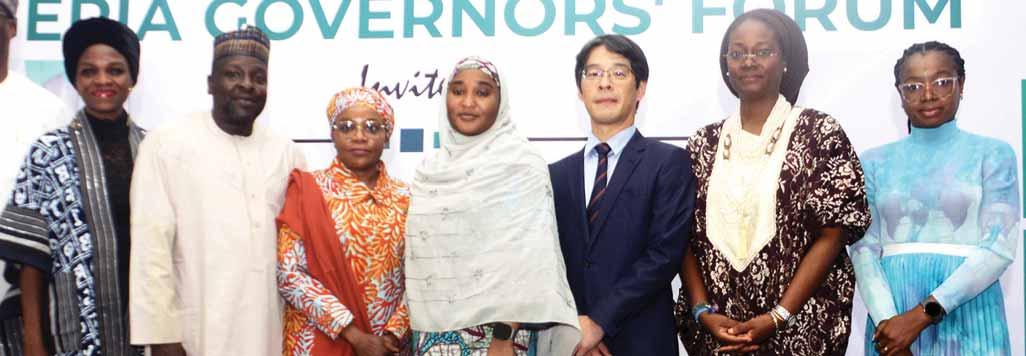
James Emejo in Abuja Chief Executive, Ministry of Finance Incorporated (MOFI), Dr. Armstrong Takang, yesterday said hundreds of Nigerians had taken advantage of MOFI’s single-digit interest funding to own mortgages under its housing initiative, MOFI Real Estate Investment Fund (MREIF).
Under the housing initiative, funding was reduced to 9.75 per cent from the initial interest rate of 12 per cent, further expanding access to mortgages for Nigerians.
Speaking at the Africa International Housing Show (AIHS) in Abuja, Takang also disclosed plans to roll out a Shariah-compliant non-interest option, which would allow Nigerians in the diaspora
access mortgage opportunities in the country.
He said through innovative financing, the federal government was committed to radically bridge the housing gap in the country, under a scheme designed for sustainability and wide-ranging impact.
The MOFI boss pointed out that MREIF, which was designed to transform Nigeria’s housing sector by bridging the mortgage financing gap through flexible terms, was already being embraced by Nigerians.
He stressed that MREIF was a much-needed, long-overdue intervention in the housing sector with real capacity to radically transform the entire housing value chain, and deliver long-term impact.
According to him, the initiative is designed to hedge against liquidity challenges, corporate governance issues, accessibility barriers, and the perennial challenge of sustaining initiatives for the long-term.
He said the country’s mortgage landscape was characterised by about 20 million housing deficit, prohibitive mortgage rates, and low mortgage tenors, including limited refinancing options and shallow secondary markets.
Takang explained that MREIF was conceived as a timely, bold, and innovative solution to cure existing limitations in the housing sector.
He said the initiative consisted of N1 trillion Securities and Exchange Commission (SEC)
approved and regulated fund designed to expand homeownership and strengthen Nigeria’s housing sector.
He also stated that the fund’s structure was designed to achieve the best corporate governance standards possible, replicating proven market-aligned success models. He said to achieve this, MOFI served only as the sponsor of the fund, while MREIF enjoyed the full status of a regulated market instrument with a fund manager and was open to institutional investors.
Takang stated that with N250 billion already raised, including mortgage finance disbursements across three geographical zones so far, “MREIF is demonstrating its prowess as a key driver of
CG now to retire on August 31, 2026 Service intercepts 69,375 liters of smuggled petroleum products, condemns violent attack on officers
The Presidency on Thursday announced that the tenure of the Comptroller-General of the Nigeria Customs Service, Mr. Bashir Adewale Adeniyi, which is due to expire on August 31, 2025, has been extended by one year.
According to a statement issued by presidential spokesperson, Bayo Onanuga, the extension, approved by President Bola Tinubu, will enable Mr. Adeniyi to consolidate ongoing reforms and complete critical initiatives of the present administration, including the modernisation of the Nigeria Customs Service; implementation of the National Single Window Project; and the execution of Nigeria’s obligations under the African Continental Free Trade Area (AfCFTA) protocol.
In another development, the NCS through Operation Whirlwind, intercepted 2,276 jerricans of Premium Motor Spirit (PMS) and 19 jerricans of Automotive Gas Oil (AGO), totaling 69,375 liters, at various smuggling flashpoints in Adamawa State. According to Adeniyi, the smuggled petroleum products, concealed and prepared for illegal export or distribution to neighboring
countries, were intercepted along with two vehicles used for conveyance.
Meanwhile, the President, the release stated on the tenure extension, recognised Mr. Adeniyi’s steadfast leadership and commitment to service.
President Tinubu expressed confidence that this extension will further strengthen the Nigeria Customs Service in achieving its strategic mandate of trade facilitation, revenue generation, and border security.
Meanwhile, commenting on the Operation Whirlwind, Adeniyi who was represented by Hussein Ejibunu, National Coordinator Operation Whirlwind said the total Duty Paid Value (DPV) on the seized products and vehicles is approximately N95,695,000.
However, Ejibunu frowned at the report of the NCS which reported a disturbing incident of a violent mob attack on its officers during an enforcement mission.
He explained the officers were ambushed, physically assaulted, and their vehicle was vandalized and doused with fuel. One attacker was killed during the chaos, and several officers were injured. He condemned the attack in the
strongest possible terms and the NCS is investigating the incident to bring the perpetrators to justice.
According to him, the Service has called on community leaders, traditional rulers, and the public to support law enforcement activities and provide timely intelligence to
combat smuggling and criminalities.
He explained the NCS remains committed to its mission of protecting the nation’s economy and borders, and it will not relent in its efforts to dismantle smuggling networks and bring economic saboteurs to justice.
investment in long-term housing finance in Nigeria”.
He added that with an AAA rating from Agusto and AA rating from GCR, “MREIF had established itself as a highly credible, market-driven investment platform to address Nigeria’s housing finance gap by issuing out single-digit mortgages through eligible financing institutions, over a period of 20 years.”
He said the fund also provided offtake guarantees to qualified developers, ensuring sale of their properties by providing mortgages to qualified homebuyers. In a statement, Takang commended President Bola Tinubu for the Renewed Hope Housing Initiative that inspired MREIF, and the fund’s private sector partners for steering the initiative towards sustainable impact.
Chuks
Okocha in Abuja
A former federal lawmaker, Senator Dino Melaye, has resigned from the Peoples Democratic Party (PDP), citing the party’s inability to rescue Nigeria from what he described as “prevailing political cankerworms”.
Melaye, a former senator for Kogi West, made this known yesterday via a post on his official X handle, where he shared a signed resignation letter addressed to the PDP chairman in Ward 1, Aiyetoro Gbede, Ijumu Local Government Area of Kogi State.
In the letter dated July 4, 2025, Melaye said the decision became “imperative due to the lack of potency and capacity by the party to deliver the Nigerian people from
the prevailing political cankerworms that have eaten deeply into the fabric of our dear nation.”
The 2023 governorship candidate of the PDP stated that after careful reflection on the state of the party, he could no longer, in good conscience, participate in its activities or support its agenda.
“In view of the above, please consider this as my formal withdrawal from the party and all its activities at all levels with immediate effect,” the letter read. Melaye also expressed appreciation for the opportunity to serve under the PDP during his period of membership.
His resignation, however, added to the growing wave of political realignments ahead of the 2027 general elections.
Michael Olugbode in Abuja
ActionAid Nigeria (AAN) has expressed grave concern over the federal government’s planned implementation of a 5% surcharge on fossil fuel transactions, as outlined in Section 158 of the recently gazetted Nigeria Tax Act.
A statement on Thursday by AAN Country Director, Dr. Andrew Mamedu, read: “While we acknowledge the need for innovative revenue generation strategies in the face of dwindling government earnings and commend efforts to promote a shift toward greener energy alternatives, we strongly caution against policies
that disproportionately impact the poor, deepen inequality, and further constrain small businesses without providing adequate cushioning or transparency on utilisation.
“The removal of fuel subsidy in 2023, coupled with the floating of the naira, triggered one of the most devastating waves of inflation Nigeria has seen in recent years.
“Nigerians are yet to recover from that economic shock. Introducing a 5% surcharge by 2026 risks compounding the already dire situation for millions of citizens, particularly for low-income earners, women, youth, farmers, smallholder entrepreneurs, and informal sector workers.”
Mamedu noted that, “although the law excludes clean or renewable products such as household kerosene, cooking gas (LPG), and compressed natural gas (CNG), this exclusion does not reflect the energy realities of the average Nigerian. Most small and medium-sized enterprises (SMEs) still rely heavily on petrol and diesel to power their operations due to inadequate electricity supply and lack of affordable alternatives.
“Similarly, many Nigerians still depend on fuel-powered transportation systems. A 5% surcharge will lead to an increase in the pump price of fuel, which will directly translate to higher transportation
costs. This ripple effect will be felt in every corner of the economy from increased food prices due to costlier logistics to the price of education, healthcare, and housing. Urban and poor rural communities will bear the brunt of these cascading effects.”
Mamedu said: “ActionAid Nigeria is deeply concerned that there is no clarity on how the funds generated from the surcharge will be managed or used to address the economic realities of the masses. Past experiences such as with the Petroleum Trust Fund (PTF) have shown that without strong accountability mechanisms, such funds can be easily mismanaged or diverted.



















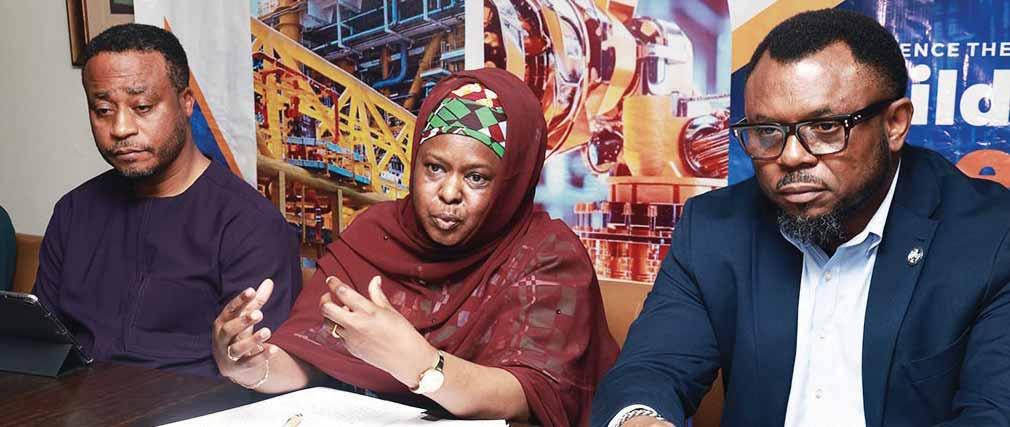
BUA Foods Plc, has announced a 101per cent year-on-year growth in Profit Before Tax (PBT) to N276.1 billion for the half-year (H1) ended June 30, 2025 from N137.2 billion declared in half-year (H1) ended June 30, 2024.
The company in its unaudited financial results released on the Nigerian Exchange Group (NGX) declared a 98.6 per cent profit after tax to N260.07 billion in H1 2025 compared with N130.93billion posted in H1 2024.
In the period under review, BUA Foods’s revenue increased by 36per cent to N912.5 billion in H1 2025 from N672.39 billion in H1 2024, driven by strong performance across all product segments: Sugar, Flour, Pasta, and Rice.
Notably, the Company recorded an exponential 2923per cent increase in Rice revenue, reinforcing the success of BUA Foods’ expansion into the local rice value chain.
The Nigeria’s largest food and fast-moving consumer goods (FMCG) company by market capitalisation also declared gross Profit growth of 55per cent to N339.3 billion, with gross margin improving
to 37.2per cent from 32.4per cent in the previous year.
Earnings per Share (EPS) nearly doubled from N7.27 in H1 2024 to N14.45 in H1 2025, while operating profit increased by 41per cent to N284.8 billion in H1 2025. Total equity also rose by 60.6per cent to N689.1 billion, and total assets grew to N1.33 trillion.
Commenting on the results, Managing Director of BUA Foods, Engr. (Dr.) Ayodele Abioye, stated: “The results reflect our strong fundamentals, operational efficiency, and the resilience of our diversified business model.
“Amidst evolving macroeconomic dynamics, we remain focused on scale, affordability, and consistent value delivery to our customers and stakeholders. Our investments in backward integration and manufacturing expansion continue to position us for long-term sustainable growth.”
BUA Foods total assets increased by 21.7per cent to N1.333 trillion as of June 30, 2025 from N1.096 trillion declared in 2024 financial year (FY), driven largely by trade transactions and production capacity
expansions.
However, the total liabilities decreased by 3.4per cent to N644.1 billion as of June 30, 2025 from N666.1 billion in 2024FY.
Total equity increased by 60.6per cent to N689.13 billion as of June 2025 from N429.06 billion in 2024,
largely driven by a significant growth of 62per cent in retained earnings to N681.1 billion as of June 2025 from N420.9 billion in 2024FY. Performance across the business segments showed strong momentum. The Flour Division recorded a 66per cent rise in revenue to N378.2 billion. The Sugar Division grew by eight per cent, generating N398.1 billion. The Pasta Division posted a 31per cent increase in revenue to N96.9 billion. The Rice Division, which had N1.3 billion in revenue in H1 2024, surged to N39.3 billion in
BUA Foods continues to pursue investments across its integrated supply chain, while leveraging innovation and technology to ensure
and
Francis Sardauna in Katsina
The Abdul Samad Rabiu Africa Initiative (ASR Africa), through its Tertiary Education Grant Scheme (TEGs), has donated a state-of-the-art administrative block worth N250 million to Al-Qalam University in Katsina State.
Built and equipped with cuttingedge equipment by ASR Africa, the administrative structure was donated to the College of Allied Health Sciences of the university
The Association of Indigenous Contractors of the Federal Capital Territory (FCT) has expressed concern over delayed payments for contracts reportedly executed under the current administration, amounting to over N5.2 billion.
The group claims the affected contracts - ranging from drainage desilting to procurement of hospital supplies and educational materialswere completed between September 2023 and May 2024 but remain unpaid.
Addressing journalists at a press conference held in Abuja on Wednesday, the association’s Coordinator/Chairman, Mr. Chuka Muojindu, said the contracts were duly awarded by various Secretariats, Departments, and Agencies (SDAs) of the FCT Administration and had been verified by relevant internal units.
He warned that the prolonged delay was causing widespread hard-
ship among indigenous contractors who financed the projects through commercial loans.
Muojindu noted repeated efforts to seek clarification and resolution through formal letters and appeals to senior officials had not yielded a positive outcome.
He said many members are now grappling with asset seizures by banks and growing family and health challenges due to financial strain.
According to him, “Some of our members have lost their homes, marriages are being affected, and sadly, we’ve lost colleagues due to stress-related complications. We are simply asking to be paid for the work we’ve already delivered.”
He also recounted a peaceful protest staged by the group in August 2024, which was dispersed by security operatives, resulting in injuries to several members.
The association said it had also written to President Bola Ahmed
Tinubu, leadership of the National Assembly, and other public figures to seek their intervention.
While appreciative of government reforms, the group appealed for a humane approach that would not jeopardize the livelihoods of those who contributed to infrastructure development in the territory.
Efforts to get an official response from the FCT Administration were unsuccessful as of press time.
However, sources within the ministry suggest ongoing internal audits and financial reviews may be responsible for the delay in processing payments.
Further according to Muojindu, “We are not politicians. We are indigenous contractors who have served this city faithfully. All we are asking is that the administration honors its commitment. If there are any doubts about the contracts, we invite an independent audit to verify everything. We are open to dialogue, but our members cannot continue to suffer in silence.”
on Thursday.
The administrative block, which was proposed by the management of the institution to support the establishment of the college, has lecture theaters, classrooms, 18 offices for academic and administrative staff, as well as a conference hall.
According to ASR Africa, the facility is designed to strengthen the university’s capacity as it prepares to offer degree programmes in Nursing Science, Public Health, Radiography, Physiotherapy, Optometry, and Medical Laboratory Sciences.
Speaking during the ceremonial inauguration of the project, the Managing Director of ASR Africa, Dr. Ubon Udoh, said 30 institutions have so far benefitted with grant awards ranging from N250 million to N2 billion.
He explained the initiative was designed to bridge infrastructure gaps and foster academic excellence across tertiary institutions in Nigeria and other African countries.
He noted the partnership between the ASR Africa team and the project management unit of the university ensured the project was completed within the stipulated time.
He said the project reaffirms the commitment of the Chairman of ASR Africa, Alhaji Abdul Samad Rabiu in supporting local solutions to local problems across Africa.
Udoh expressed satisfaction with the completed project and appealed to the beneficiaries to ensure proper use of the facility.
He praised the management of Al-Qalam University for their support during the construction
of the project.
In his remarks, the Katsina State Governor, Dikko Umaru Radda, appreciated the Chairman of ASR Africa, Alhaji Abdul Samad Rabiu for the investment in the state’s educational sector. He stressed that education is vital for the growth of any society, the reason he has prioritized education in his administration agenda. He urged the management of the university to safeguard the administrative block and its equipment against vandalism, adding that other philanthropists should emulate ASR Africa. Earlier, the Vice Chancellor of the University, Professor Nasiru MusaYauri, thanked the management and staff of ASR Africa for finding the institution worthy of the donation.
Elumelu: Africa Must Lead Own Devt,
Nume Ekeghe
The Group Chairman of Heirs Holdings, United Bank for Africa (UBA), Transcorp Plc, and founder of the Tony Elumelu Foundation, Mr. Tony O. Elumelu, has reiterated that Africa must take full ownership of its development journey, urging leaders on the continent to prioritise infrastructure, invest in young people, and build partnerships based on equality.
Elumelu made the remarks while delivering the keynote address at the African Caucus Meeting of the World Bank and International Monetary Fund (IMF), held in Bangui, Central African Republic, yesterday, where African leaders converged to discuss this year’s gathering, “Resilient Infrastructure, Human Capital, and Green Assets.”
In his call to action, he said: “Africa’s
development is our responsibility. No one else will do it for us. Africa’s future is in our hands. No one will build this continent for us. We must lead.
“Power is everything. No industrial revolution can happen without electricity. We must prioritise energy. Without power, there can be no progress. We must invest in our youth. They are not just our future – they are our present.
“Together, by working across public and private sectors, and in partnership with institutions like the IMF and World Bank, we can build an Africa that is resilient, inclusive, and full of opportunity.
He cautioned against continued dependence on global systems that have historically failed to prioritise African interests.
“We live in a highly volatile, complex world. It is a world where
the rules-based order has been challenged, where we need to reaffirm our commitment to the idea of a global community. But as an African, I must be frank. This global community has not always served Africa’s interests, ensured that Africa’s voice is heard or delivered for Africa. And Africa’s voice not only needs to be heard, but has to be heard.”
Elumelu stressed the continent holds solutions to many of the world’s pressing problems if only it chooses to harness them.
His words: “Africa has solutions to so many of the world’s problems. Our young people are the answer to the world’s demographic crisis, our minerals power the extraordinary technological changes we are experiencing, our fields can feed the world.
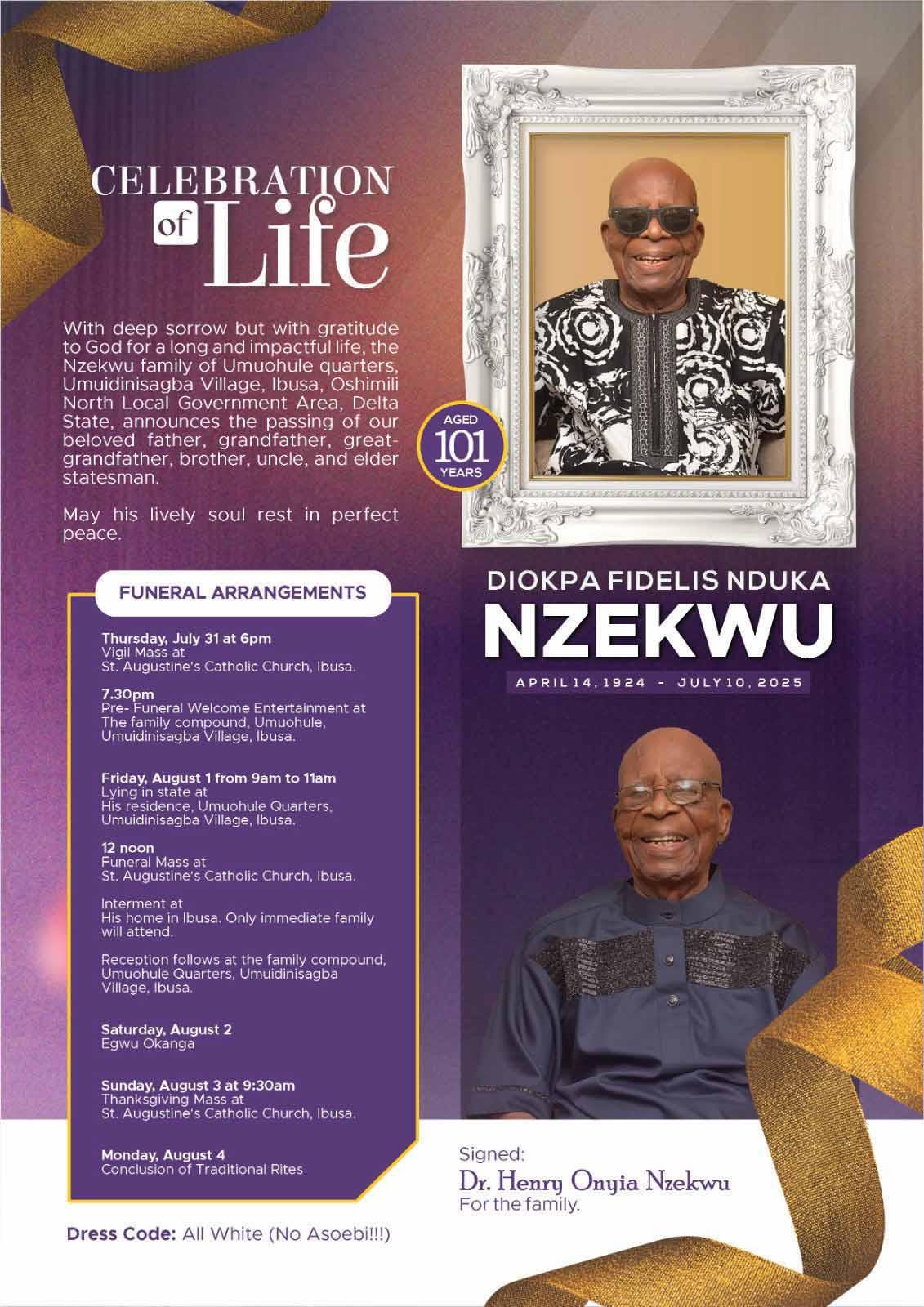
Kayode Tokde
The positive macroeconomic indicators in Nigeria have trickled down to the stock market segment of the Nigerian Exchange Limited (NGX), lifting the market capitalisation by N12.47 trillion in July 2025 to close at N88.425 trillion.
Macroeconomic indicators such as Nigerian crude price moving towards the federal government benchmark of $75 per barrel, steady rise in foreign reserves and stability in the foreign exchange market contributed to the stock market N12.47 trillion gain in July 2025.
Investors reacted to these positive indicators to position in large and medium-capitalised stocks.
Specifically, the market capitalisation gained N12.74 trillion from
N75.951 trillion at the beginning of the month of July 2025 to close at N88.425 trillion at the end of July 31, 2025.
With the N12.74 trillion in July 2025, the market capitlisation has appreciated by N25.66 trillion in seven months of 2025 from N62.763 trillion it closed in 2024.
Similarly, the NGX All-Share Index (ASI) rose by 16.58 per cent from 119,978.57 basis points on June 30, 2025 to 139,863.52 basis points on July 31, 2025, while in seven months of 2025 added 35.9per cent from 119,978.57basis points it closed for trading 2024.
Sectoral performance was broadly bullish throughout the month under review. NGX Industrial Goods index recorded a growth of 26.19 per cent for the month of July. NGX Bank-
ing index followed with a month gain of 22.17 per cent, while NX Insurance appreciated by 18.84 per cent month-on-month.
Also, NGX Lotus II, NGX Pension, NGX 30, NGX Consumer Goods and NGX Oil & Gas indices up by 16.44 per cent, 14.25 per cent, 11.52 per cent, 9.93 per cent and 0.45 per cent respectively in the month under review.
Analysts added that Nigeria’s stock market sustained its positive trajectory through July 2025 amid positive corporate earnings for the first half (H1) of 2025 by listed firms on NGX and possible interim dividend payout.
Speaking on market performance for the month of July 2025, the managing director of Global View Capital Limited, Mr. Kebira Aruna,
said the All-Share Index experienced a significant gain of 16.58 per cent in July 2025 and this impressive rise can be attributed, in part, to corporate reports that exceeded market expectations.
He explained that “historically, profit growth figures have hovered around 20 per cent to 50 per cent, but now there are instances of extraordinary recoveries, such as a company moving from a loss of N8.9 million to profits of N2.9 million and ultimately to N5.5 million, demonstrating growth in the vicinity of 100 per cent.
“With the anticipation surrounding dividend declarations, the market remains focused on companies that consistently perform well. However, the timeline for these results may vary, as the auditing process typically
FG APPROVES N712BN FOR FULL REHABILITATION OF LAGOS AIRPORT TERMINAL ONE to China Civil Engineering Construction Corporation (CCECC), will strip the old terminal down to its structural core before rebuilding it with new mechanical, electrical, and plumbing systems.
The project, funded entirely through the Renewed Hope Infrastructure Development Fund, will be executed over a period of 22 months.
According to Keyamo, “We have decided to strip it down to only the carcass and then do the complete M&E again.”
He emphasised the administration’s departure from patchwork repairs towards comprehensive overhaul of key aviation facilities.
FEC also approved the expansion of Terminal Two, including the construction of a new apron, access roads, bridges, and related works.
When combined with the Terminal One project, the total cost of all Lagosrelated airport works amounted to N712.26 billion, making it one of the most significant single investments in Nigeria’s aviation sector in recent years.
In a move to improve security at the Lagos airport, the council approved a N49.9 billion perimeter fencing project.
The 14.6-kilometre metal fence will feature an intrusion detection system, CCTV cameras, solar-powered floodlights, and a patrol road.
According to the minister, the security enhancements will include a modern command centre capable of detecting any movement near the fence in real-time.
“Anyone or anything close to the fence will be detected immediately, and the location pinpointed,” he said.
Keyamo said, “The council also approved greenlit upgrades at other key airports across the country.
“At Malam Aminu Kano International Airport in Kano, FEC approved N46.39 billion for the rehabilitation of both runways and taxiways, along with an upgrade of the airfield lighting to Category Two (CAT 2) standards.
“The 24-week project is expected to significantly improve operational
safety and reduce weather-related flight disruptions.”
He said, “Port Harcourt International Airport is also set for a runway and taxiway rehabilitation, with airfield lighting upgrades to CAT 2 standards approved at a cost of N42.14 billion.
“In Lagos airport, airfield lighting on Runways 18 Left and 36 Right, as well as on Taxiways B and C, will be upgraded to CAT 2 LED systems under a N44.13 billion contract with a 30-week completion period.
“To further improve operations at Lagos’ domestic wing, the council approved the reconstruction and conversion of over 82,000 square meters of apron areas.
“This project, valued at N24.27 billion, will be carried out in phases over approximately 17 and a half months to expand aircraft parking space and ease traffic management.”
Keyamo said, “In a major shift toward private sector involvement in airport management, FEC also approved the full business case for
the 30-year concession of Akanu Ibiam International Airport in Enugu.
“The concession includes the completion and operation of the airport’s cargo terminal by a private consortium.”
The minister said the decision was driven by the financial strain on government resources from running smaller airports.
He stated, “Most of the smaller airports, apart from the major ones, are running at a loss. The profits we make from Kano, Lagos, and Abuja often go into keeping these others alive.”
He said the concession model would unlock the commercial potential of non-aeronautical revenue streams, such as conference centres and shopping malls, which generate substantial income at modern airports globally.
“That has always been the plan of this administration—to concession some airports to private individuals and entities so they can run them profitably,” Keyamo said.
To reassure stakeholders, he stressed
NEC TARGETS ECONOMIC STIMULUS FOR OVER 8.8M PEOPLE IN 8,809 WARDS ACROSS NIGERIA
Also yesterday, President Bola Tinubu said the nation’s economy was working and on the path of recovery, but said the government at the state level needed to stimulate growth in the rural areas.
On the fresh entrepreneurial intervention, the National Economic Council (NEC) at its monthly meeting endorsed a new ward-based development strategy, Renewed Hope Ward Development Programme (RHWDP).
The initiative is to actualise double-digit economic growth through direct intervention in Nigeria’s 8,809 administrative wards across all 36 states.
The RHWDP, aimed at achieving double-digit economic growth through direct intervention in Nigeria’s 8,809 administrative wards across all 36 states.
The RHWDP, presented by Minister of Budget and Economic Planning, Atiku Bagudu, during the council’s 150th meeting, received full endorsement as a collaborative undertaking between federal, state and local governments.
It was anchored on President Tinubu’s Renewed Hope Agenda, which seeks to achieve a $1 trillion economy by 2030, requiring a growth rate of 15 per cent, while the current rate sat below 4 per cent.
The RHWDP drew its legal framework from the 1999 Constitution and the Fifth Alteration Act, which mandated state policy toward ensuring food security and improved production methods.
Its key targets included sustainable support for economic activities with minimum thresholds of 1,000 economically active individuals for smaller wards and 2,000 for larger ones.
A National Steering Committee comprising representatives from all six geopolitical zones is expected to oversee the implementation, with the Ministry of Budget and Economic Planning as secretariat.
Explaining the rationale for the
initiative, Bagudu said: “Today Mr President attended the NEC meeting and he commended the state governors for the cooperation they have extended to him and to the federal government. And today, in a very historic next step, Mr President witnessed the presentation of the memo on Renewed Hope Ward Development Programme, which is a strategy to support the macroeconomic reforms being undertaken by the administration.
“Having stabilised the macro economy. The next step is to drill down development to the lowest levels so that we can in the 8,809 wards of the country simulate economic activity, which we believe will generate employment, reduce poverty, enhance food security and even enhance social protection.
“And this is in line with our Constitution. Chapter 2 of our Constitution demands the government, federal, state and local government to harness the resources of the nation and promote national prosperity and efficient, dynamic and self reliant economy. This can only be done cooperatively.
“Mr President as an ardent believer in federalism today, presented Renewed Hope Ward based development programme as a collaboration between federal state and local governments, a Federation project and to be funded with the increased revenues accruing to the Federation Account, as well as other programmes that the federal government and states are undertaking.
“Equally, it is to identify in each ward at least 1000 economically active persons that will be supported so that economic activity will be boosted in each ward of the Federation. The idea is to utilize this unique feature of our economy to generate double digit growth in most of the wards as we march towards a $1 trillion economy.”
According to him, the Federal Ministry of Budget and Economic Planning will be the Secretariat of the programme, highlighting that in the most recent report about Nigeria, the
International Monetary Fund (IMF) in the 2025 article four consultation precisely encouraged Nigeria along this path.
He stated that the IMF acknowledged that the bold reforms have improved stability and enhanced resilience, liberalising and strengthening the function of the foreign exchange market, removing foreign subsidies, ending monetary policy, strengthening revenue administration and raising hydrocarbon production, which all have all contributed to improve macroeconomic stability.
“Mr president that always believes that to reduce poverty and food insecurity, we must invest col-
planned initiative has the potential to maximise the benefits of Nigeria’s hydrocarbons resources, and transform deepwater oil and gas development in Nigeria.
He listed recent moves by the commission to raise oil and gas output, including the incremental oil and gas production through the restoration of shut-in strings; Project 1 million bpd; strategic engagement on operators funding and rig needs; heavy crude oil development, among others.
Since the 1993 licensing round, Komolafe stated that the offshore operations have mainly been successful with major discoveries such as Bonga, Agbami, Erha, and Egina fields to mention a few, but that production has recently begun to decline.
“Today, our deep offshore reserves stand at about 6.8 billion barrels, accounting for approximately 18 per cent of total oil and condensate reserves. Peak oil production from our deepwater activities once reached about 800,000 barrels of oil per day in 2016, but has nose-dived to less than 500,000 bpd, contributing about 26 per cent of total oil production,
takes a couple of months, meaning we might see these announcements in mid-August or September.”
Aruna also said that “liquidity within the market remains a vital topic. While the government has been borrowing, there is a noticeable shift in appetite. For example, when the market offered $300 billion, the government only accepted $2.5 billion. Currently, the market’s offerings are reduced to $200 billion, with the government borrowing in smaller amounts, indicating a desire to negotiate better rates.”
The vice president of Highcap Securities Limited, Mr. David Adnori, noted that with such a substantial rally to take place, investor confidence must have been remarkably high. According to him, several factors contributed to this surge in confi-
that the process had been transparent and inclusive, particularly with regard to labour unions.
“I am not someone who ignores the unions. From the very start, I directed that they must be part of the committee,” he said, stressing that labour representatives have been fully involved in the concession process.
The minister pledged that full details of the concession, including the identities of the consortium members and financial terms, would be made public in due course.
He said, “At the right time, we will jointly address Nigerians and disclose all necessary details to ensure full transparency.”
FEC also approved two major electrification projects with a combined value of N213.7 billion to improve energy access in universities, teaching hospitals, and rural communities across Nigeria.
Minister of Power, Chief Adebayo Adelabu, announced the approvals while briefing reporters.
laboratively with federal and state in the creative energy of Nigerians and the geographical wards and having achieved the successes at the macroeconomic level, that is why this programme is unfolded today at the National Economic Council, which graciously approved the programme,” Bagudu stated.
In the same vein, the Imo State Governor, Hope Uzodimma, acknowledged improved government revenue, spurred by key reforms, but stressed that the real test lies in delivering measurable impact to communities nationwide.
Adelabu said the first project, valued at N145 billion, inclusive of 7.5 percent VAT, was for the engineering, procurement, and construction (EPC) of power systems under the Energising Education Programme (EEP), implemented by the Rural Electrification Agency (REA).
It will also be funded through the Renewed Hope Infrastructure Development Fund and is expected to be delivered within seven to nine months.
EEP is targeted at easing the energy burden on Nigeria’s public universities and tertiary teaching hospitals by providing reliable, renewable power supply.
Adelabu stated that many institutions had faced severe electricity challenges, leading to blackouts and industrial actions, as they struggled
today.
“The challenge for us all is how can we increase wallet share from deepwater operations,” Komolafe, who was represented by the Executive Commissioner for Economic Regulation and Strategic Planning, Babajide Fashina, stressed.
Thanks to the operating companies: Star Deepwater, ESSO, Nigeria Agip Exploration (NAE), Shell Nigeria Exploration and Production Company (SNEPCO) and Total Energies Upstream Petroleum Nigeria (TUPN), he stated that Nigeria can boast of over 4.4 billion barrels cumulative oil production from deepwater operations, supported by eight Floating Production, Storage and Offloading (FPSO) facilities.
As the upstream industry regulator, the commission stated that it recognises that there is a huge deepwater opportunity for Nigeria to harness, explaining that current records reveal that the yet-to-be developed deepwater opportunities consist of over 5.13 billion barrels and 13.53 TCF of oil and Non-Associated Gas (NAG), respectively.
“Embedded in the foregoing

companies reported impressive H1 results, with some, like Unilever Nigeria, surprising the market by announcing interim dividends after years of not doing so.
to meet exorbitant utility bills from distribution companies.
He said, “The absence of reliable power in most institutions has grown into a crisis. This initiative will bring relief to educational and medical institutions and improve the quality of education and healthcare delivery.”
He listed eight institutions set to benefit from the current phase of the programme to include University of Lagos; Ahmadu Bello University, Zaria; Obafemi Awolowo University, Ile-Ife; University of Nigeria, Nsukka; University of Ibadan; University College Hospital, Ibadan; Federal University, Dutse, Jigawa State; and Federal University, Wukari, Taraba State.
Adelabu added that the new projects built on earlier interventions executed with World Bank support, had already delivered solar power installations to several universities, including the University of Abuja (3 megawatts), University of Maiduguri (12MW), University of Calabar (8MW), Nigerian Defence Academy (2.6MW), and Federal University of Agriculture, Abeokuta (5MW).
“These institutions are now operating without disruption to electricity supply. The new funding is intended to accelerate deployment to more campuses,” he said.
The second project, valued at N68.7 billion, including VAT, is for the procurement and deployment of renewable energy infrastructure under the REA’s Agricultural Centres of Excellence initiative, the minister said. The programme aims to bring solar-powered electricity to rural communities and agribusiness clusters where grid access is unavailable. It is expected to be completed within three months.
reserves is locked potential of about 3.59 billion 2P oil and condensate reserves, circa 4.67 TCF of AG reserves, and approximately 13.53 TCF of NAG reserves in undeveloped fields.
“A further preliminary deep dive shows that our regulatory instruments through Field Development Plan (FDP) Approvals have a few developments-in-view which could unlock around 1.55 billion 2P oil and condensate reserves with associated gas volume of approximately 1.49 TCF.
“Execution of the approved FDPs in the deep offshore fields could bring additional 810,000 bpd of peak oil production. The question posed here is what is holding back the developments”, he added
In light of this, Komolafe noted that he constituted a shallow and deepwater cluster development committee in the commission to collaborate with deepwater industry players on how to unlock the potential through feasible cluster or nodal developments.
Komolafe stated that Nigeria stands at a critical juncture in the nation’s energy landscape, one that
demands innovation, collaboration, and a steadfast commitment to sustainable development.
He emphasised that as the mainstay of the economy, and a vital contributor to the national revenue, it was imperative that the industry takes decisive steps to grow and sustain oil production and put the nation back on the path of growth and stability.
“As we are aware, collaboratively, we have been able to ramp up the country’s average year to date oil and condensate production to 1.75 million barrels per day, which falls short of our huge technical allowable potential of 2.2 million barrels of oil per day. We believe we can do more volumes.
“As a commission whose mandate is to ensure resources are optimally developed in a safe and environmentally friendly manner to guarantee energy security and economic prosperity, this call is to ensure that the ambitious but realistic shallow and deepwater cluster/nodal development initiative aimed at ramping up our daily oil

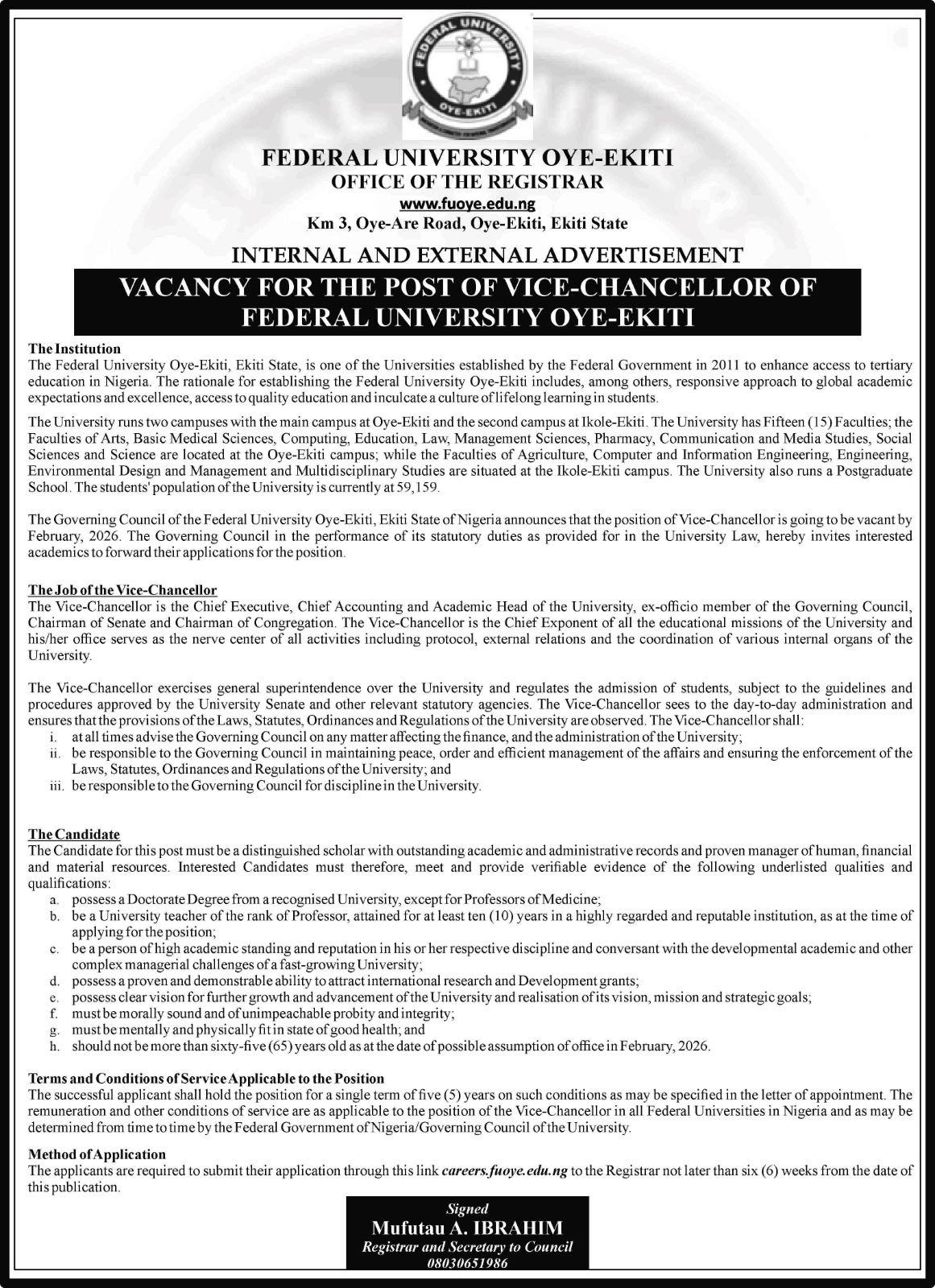





TO THE NIGERIAN EXCHANGE LIMITED (NGX) AND THE SHAREHOLDERS ON THE EXTRACT OF UNAUDITED RESULTS FOR THE SIX MONTHS ENDED 30TH JUNE 2025.

Mr. Temi Popoola FRC/2013/CISN/00000005400 Group Managing Director/CEO

Bayo Opatade FRC/2018/ICAN/00000018978
44,673,504 2,580,037 8,078,377 1,781,218 (2,660,966) (257,699) (2,779,558) 6,374,657 1,102,902 (2,055,287) (193,846) (2,314,396) 2,914,030 6,160,381 11,469 (876,451) (75,260) (1,431,219) 3,788,920 5,538,912 3,343 (643,774) (34,021) (776,334) 4,088,126 4,161,372 (501,972) 1,802,717 (1,244,194)(1,480,817)-(1,322,069) 2,025,817 (501,972)(1,322,069)1,102,310 27,155,732 (62,015) 1,102,310 28,278,024 (62,015) 1,102,310 44,864,822 2,580,037 59,734,675

Ihave lived long enough in Nigeria to know that in our political theatre, what is unsaid is often more important than what is spoken. So when news broke that Mohammed Babangida, the first son of former military President, General Ibrahim Badamasi Babangida, had allegedly rejected his appointment as Chairman of the Bank of Agriculture, I didn’t rush to conclusions—I leaned in, instinctively drawn to the drama behind the drama.
The alleged letter rejecting the appointment surfaced on social media with all the elements of a scandal: official letterhead, crisp grammar, and that unmistakable air of quiet defiance. It was succinct, polite, and firm. It carried Mohammed’s signature—or so we thought—and stated unequivocally that he was “honoured but constrained” to decline the appointment by President Bola Ahmed Tinubu. Within hours, it had gone viral. Screenshots flew across WhatsApp groups. Political gossip circles exploded. Commentators sharpened their knives.
But barely a day later, Mohammed Babangida released a statement—again on official letterhead— denying the rejection. He insisted the letter was fake. Fabricated. Fraudulent. According to him, he never issued such a communication, and he was honoured by the President’s gesture. That’s when the story, for me, truly began. Because I’ve been around long enough to know that in Nigerian politics, the truth is rarely simple, and perception is almost always weaponised. So the question must be asked: What really happened?
Did Mohammed Babangida initially reject the appointment and then quickly backtrack when the implications dawned on him? Was the original letter real, only to be disowned when the gravity of such a move became evident? Or was it truly the work of mischief-makers—faceless, nameless manipulators—whose goal was to embarrass him or even sabotage the presidency?
The pundits are sharply divided, and frankly, I’m not entirely convinced by either camp. But I do know this: the entire episode reeks of something deeper than forgery or flattery. It smells like a misstep in the choreography of high-stakes power play.
Let’s start with the first possibility: Mohammed Babangida did, in fact, reject the appointment— initially.
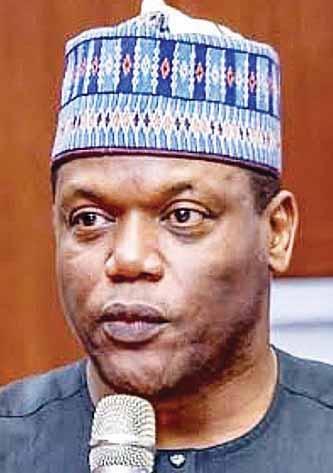
It’s not far-fetched. The Babangida name, while still heavy with legacy, carries a controversial political undertone. His father, General IBB, remains one of Nigeria’s most polarising figures—a man whose economic reforms and political manoeuvring are still debated across generations. For his son to accept a high-profile federal appointment—especially under Tinubu, a man known for realpolitik—would naturally spark speculations about rapprochement, compromise, or even dynasty-building.
Perhaps Mohammed wasn’t comfortable being thrust so suddenly into the public eye. Perhaps
he feared being seen as cashing in on the family name. Or maybe, just maybe, he genuinely thought it prudent to lie low, avoid political entanglements, and preserve whatever modicum of personal privacy he had left.
But then, the backlash began. The whispers turned into full-blown roars. People began asking: How could he reject such an honourable appointment from a sitting President? Was it arrogance? Was he subtly snubbing Tinubu? Was this a sign of quiet opposition? A hidden allegiance to another political force?
At that point, I imagine, someone close to him—maybe a friend, maybe a party chieftain—must have reminded him of the real-world consequences of such a gesture. That in Nigerian politics, silence is never neutral. That a rejection—even if wellintentioned—could be read as rebellion. And in a time where political loyalty is currency, no one wants to be labelled disloyal to the presidency.
So, the narrative changed. A new statement was issued. The letter was declared fake. And the chapter—at least officially—was closed.
Now, let’s consider the second possibility: the letter was genuinely fake.
This is also not beyond the realm of reason. In an age of deepfakes, AI-generated content, and increasingly sophisticated forgery tactics, creating a believable letter is child’s play for those with time, skill, and an agenda.
But then, the more pressing question is: Who stood to gain from such a rumour? Was this an attempt to discredit Mohammed Babangida? To paint him as ungrateful or politically aloof? Or was it an indirect jab at Tinubu’s administration—designed to sow doubts about the internal coherence of his appointees?
I spoke to someone close to the presidency who said, under strict anonymity, “This isn’t just about Babangida’s son. It’s about the optics. When the President appoints you and the first thing we hear is that you rejected it, it weakens the message. That’s why we needed clarity, fast.”
He wasn’t wrong. The symbolism of appointing the son of a former military ruler is significant. It speaks of unity. Reconciliation. Perhaps even a symbolic bridge between Nigeria’s past and present. To have that gesture so swiftly clouded by scandal, real or manufactured, undermines the purpose.
And if the letter was indeed fake, then it is a matter of national concern. The perpetrators must not only be exposed—they must be prosecuted. This is not a prank. It is not political satire. It is a serious act of sabotage against both the Presidency and the Babangida family. In a saner clime, this would already be a cybercrime case under federal investigation.
But this is Nigeria, and as I’ve learned over the years, rumour often runs faster than truth, and by the time truth gets dressed, the damage is done. So where does all this leave us?
It leaves us staring at a familiar pattern in Nigerian politics: the collision of perception, legacy, and ambition. Whether or not Mohammed Babangida rejected the appointment initially is, in the end, less important than the fact that the system allowed such ambiguity to fester in the first place. We’ve become a country where nothing is ever quite certain. Every headline has a shadow. Every statement, a subtext.
I personally believe that Mohammed Babangida should accept the role fully, publicly, and proudly. He has the pedigree, the intellect, and the composure for such a sensitive position. The Bank of Agriculture is in desperate need of competent leadership, and if his appointment is sincere—if it isn’t merely symbolic—then he should take it seriously and prove the cynics wrong.
As for President Tinubu, this is another opportunity to show that he is serious about building a government of national inclusion. Appointing someone with the Babangida name is no small thing. It carries historical weight and political significance. But the President must also ensure that such gestures are backed by genuine empowerment, not just ceremonial optics.
And to the rest of us, let this episode be a reminder: in the age of digital warfare, truth is the first casualty. We must demand accountability—not just from politicians and appointees, but from those who peddle disinformation. If we allow fake letters to dictate national conversations, we are setting ourselves up for chaos.
And so, whether that letter was a forgery or a false start, I say this with all sincerity: let the truth come out and let the perpetrators face the music. Because in the theatre of power, the script must be sacred, even when the actors falter.
The new US Consul General in Nigeria, Rick Swart, has said that the strength and survival of democratic governance is dependent on a well-informed citizenry, underscoring the importance of the journalism profession.
Speaking at the launch of the Adejumobi Adegbite Fellowship for Young Journalists in Lagos, the envoy stated that the initiative honours the legacy of the late US Consulate Information Specialist and ex-reporter at The Guardian newspaper, Adejumobi Adegbite,
who tragically passed away in 2023.
“The landscape of journalism has evolved dramatically over the years, and the challenges you face today are more complex than ever before. This is an era of rapid information exchange.
“The use of digital platforms offers both new opportunities and significant challenges. Among these challenges is the erosion of trust in the truth itself—a trust undermined by the spread of malign influence, manipulated information, and sensationalism over substance.
“Whether here in Nigeria or in the United States, the strength of
any democracy depends on having a well-informed citizenry; and that is only possible when there is a free and independent press.
“Journalism is not just a profession; it is a public trust. Journalism holds the powerful accountable, ensures transparency, and provides the checks and balances necessary for a well-functioning democracy,” Swart opined.
According to him, without a new generation of journalists to carry this work forward, Nigeria risks undermining the very principles that sustain societies.
“That is why this fellowship mat-
ters. The US Mission in Nigeria is committed to supporting initiatives that connect emerging journalists with seasoned mentors to help equip them with the tools, skills, and networks needed to thrive in this profession,” he added.
Adejumobi, he said, started his media and communication career in 2006 as a general assignment reporter at The Guardian, one of Nigeria’s leading national newspapers. Prior to joining the Consulate, he noted that the deceased worked as a communications specialist at the British High Commission, Economic Community of West Africa States
(ECOWAS), Gates Foundation, and USAID projects.
“He joined the Consulate in 2021 as an Information Specialist and brought the same integrity and curiosity that defined his journalism career to the role. Prior to his untimely passing, he was developing a programme to equip early-career journalists with the tools, ethics, and mentorship to pursue impactful journalism.
“To carry forward his dream and the values he held dear, the US Consulate General established the Adegbite Fellowship for Young Journalists in partnership with the Foundation for Investigative Journalism (FIJ),” he noted.
to your passion for improving your craft and your willingness to invest in your ongoing professional development. This fellowship represents a significant investment in your journalism careers, providing you with the skills necessary to uphold journalism integrity and excellence.
President Bola Tinubu has appointed Mrs. Omotenioye Majekodunmi as the new DirectorGeneral of the National Council on Climate Change (NCCC).
According to a release issued on Thursday by presidential spokesperson, Bayo Onanuga, the new appointee succeeds Dr. Nkiruka Madueke, the pioneer head of the Council, appointed by the President in June 2024. The President thanked the outgoing Director-General, Dr. Nkiruka Madueke, for her dedicated service and strong foundation for the Council’s continued growth.
Majekodunmi’s appointment reaffirmed the Tinubu administration’s commitment to tackling climate change as both an environmental necessity and a driver of sustainable economic growth, national security, and social inclusion.
Mrs. Majekodunmi, a climate finance expert and environmental
lawyer with over 17 years of experience, has worked extensively with global and national institutions on renewable energy, carbon markets, and climate governance.
She previously served as the NCCC’s Financial Adviser and has played a key role in shaping Nigeria’s climate policies and international engagements.
While appreciating the FIJ and its Editor-in-Chief, Fisayo Soyombo, one of its over 14,000 US government exchange alumni, for partnering with the Consulate General to make the Adejumobi Adegbite Fellowship for Young Journalists a reality, Swart highlighted Fisayo’s commitment to fostering a culture of investigative reporting and mentoring the next generation of impactful public interest journalists.
Besides, he thanked the fellows for making the journey from Yobe to Ibadan and many towns and cities in between and for making the time away from their busy newsrooms to commit to this year-long fellowship.
“Your presence here is a testament
“As some of you may already be aware, you were chosen from a highly competitive pool of over 80 talented journalists from across Nigeria, through a rigorous selection process. This achievement speaks volumes about your potential and the trust we have in you to carry forward the ideals of impactful public interest journalism. Congratulations on earning your place in this inaugural cohort,” he stated.
Since arriving in Lagos two weeks ago, he stated that reporting in Nigeria has helped him shape his understanding of Nigeria’s dynamic political, economic, social, and cultural landscape.
“I have deep admiration for the essential work that all of you do. As someone who has worked closely with journalists around the world, I understand the immense responsibility you carry in your role as guardians of truth.
“This 12-month fellowship offers a unique and invaluable opportunity to hone your skills in public interest journalism.

Acting Group Politics Edito r DEJI ELUMOYE
Email: deji.elumoye @thisdaylive.com
08033025611 SMS ONLY

Ezeh Emmanuel Ezeh writes about the popularity of former Governor of Anambra State, Mr Peter Obi and wonders if the same popularity that earned late former President Muhammadu Buhari 12.7 million votes in past presidential polls can be inherited by Obi as 2027 presidential election draws near.
In the heart of Daura, where the late President Muhammadu Buhari now rests, the wind carries whispers of a legacy too powerful to fade. Mai Gaskiya “the honest one” was not just a name. It was a covenant with the poor, a promise to the forgotten, and a symbol of integrity in a nation thirsty for truth.
For decades, Buhari stood as a moral compass for millions of Northern Nigerians. His 12.7 million voters didn’t follow him for wealth or charisma. They followed him for what he represented: simplicity, sacrifice, sincerity, character, and compassion. And now, with his passing, the question echoes across the Sahel and savannah: Who will carry the torch?
The answer, increasingly, is Mr. Peter Obi.
In a dusty village outside Sokoto, an elderly farmer named Musa sits beneath a neem tree, his portable transistor radio crackling beside him. He listens not to the loud voices of career politicians, but to the quiet conviction of Obi. “He speaks like Buhari,” Musa says. “He speaks for people like me.”
This sentiment is not isolated. Across the North - from Zamfara to Bauchi, Obi’s message resonates. Not because he is Hausa, but because he is honest.
Like Buhari, Obi has shown restraint in power, frugality in governance, and compassion for the poor. His record in Anambra is not just a Southern success story, it is a blueprint for national renewal. But, the real story is told by numbers, not noise; by data, not emotion.
Let’s walk together...
- 12.7 million voters stood by Buhari through four elections.
- The Obidient Movement, born from frustration and hope, rallied over 10 million Nigerians (mostly youth, mostly first-time voters).
- In 2023, Obi secured 6.1 million votes, despite running on a platform with no deep-rooted national structure.
Now imagine a coalition of Buhari’s Northern faithful and Obi’s youthful army. That’s nearly 23 million Nigerians: a force larger than any political base in Africa today. This is Mai Gaskiya reimagined.
In Mr. Peter Obi, the Mai Gaskiya philosophy re-awakens, not because Obi wears agbada with pomp, nor because he speaks in riddles or claims entitlement. He walks lightly, speaks plainly, and governs with spreadsheets, not slogans. His adoption of the 170-point MDG governance matrix in Anambra wasn’t just technocratic, it was transformational. He built schools, equipped hospitals, and left office with billions in savings. That is Mai Gaskiya in action.
And Buhari saw it. His direct words to Obi “never forget the poor” were not just advice. They were anointing-he passed on the secret code. A recognition that Obi, more than any other, understands the weight of leadership and the dignity of service.
But the old guard, the gatekeepers of the old order, are fighting back. Tinubu says Emi lokan “It’s my turn.” Atiku claims the North won’t accept a Southern leader. Kwankwaso asserts Tinubu governs for the Yoruba alone. But, Obi says: Nigeria belongs to all of us. He does not insult. He does not divide. He mends and builds. And, that’s why, in the eyes of many, he is not just a candidate, he is a movement.
Mr Peter Obi aligning with firebrand Northern disruptors like Mallam El-Rufai and Datti Baba-Ahmed, has sent the old order quaking. In response, figures like Wike and Tinubu are desperate to recreate a national Agbero economy, designed to scare away the moderates, just as they did in Lagos.
Abuja and Edo are already kitted and on the mark. The Supreme Court fortified Monday Okpebholo. Rev. Fr. Alia, turned politician, has already sent a loud message.
They fear the popularity. They fear organic movements like the Obidient Movement. They fear Buhari’s 12.7 million loyalists. They fear what will become of the old order if any harm comes to Obi.
But, popularity is not measured by noise, it is measured by trust. Obi’s rallies drew mil-
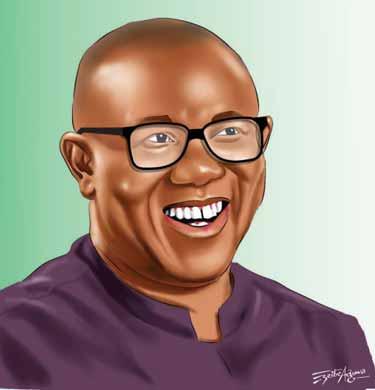
lions before campaigns even began. His name trended globally during the 2023 elections. His movement, decentralized and organic, mirrors the youth-led revolutions in Tunisia, Egypt, and Sudan.
Yet, unlike those, Obi’s movement is not just a protest, it is a proposal, it’s a demand for something new. Not just anger, it is architecture.
From Lagos to Kano, Accra to Nairobi, young Africans see in Obi a model of leadership that is principled, pragmatic, and possible. They see the rock upon which a New Africa will rise.
2027: The Year of Reckoning?
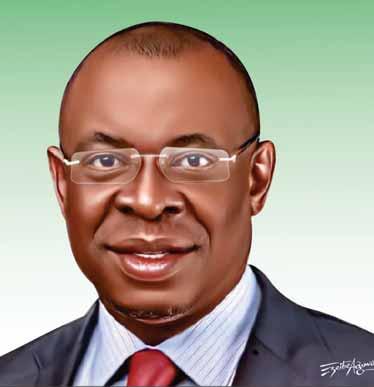
As Nigeria approaches another crossroads, the choice is clear: do we return to the politics of patronage, or do we embrace a New Nigeria, where the son of a nobody can become somebody, without knowing anybody?
Obi embodies that promise. He is not just the inheritor of Mai Gaskiya, the truth bearer. He is its evolution. And with the combined strength of Buhari’s Northern base and the Obidient Movement’s youthful surge, he stands today as the most popular, and most consequential politician bestriding the African continent.
As the politics of coalition gathers momentum, the pendulum swings in PO’s favour. Forget
the confusion brewing in the coalition. It is an intentional distraction.
For the first time, APC and its paid propagandists are on the reactionary mode. They dish out ethnic divisive rhetoric to a people held in a common grip by hunger and starvation. It’s a failed strategy, unmasking the emptiness of APC as a collective of people without compassion for the wreckage they’ve brought to Nigeria’s doorstep.
Nigerians are waiting at the threshold of 2027, and it won’t be politics as usual.
-Dr Ezeh writes from Abakaliki, Ebonyi state.
Folalumi Alara writes on the position being canvassed by the Technical Committee for the creation of Anioma State and the need to do everything possible to ensure it comes to fruition.
Anioma State Creation Technical Committee has made a clarion call to all sons and daughters of Anioma to support the growing campaign for the creation of Anioma State.
Media and Publicity Director of the Technical committee, Chief Tonnie Oganah, made the call while sharing 15 compelling facts tracing the historical, political, and constitutional journey behind the longstanding agitation.
In a widely circulated message, Oganah emphasized the need for unity, love, and collective prayers among Anioma citizens as they pursue a cause that promises development, equity, and representation.
“All Anioma citizens should support Anioma State creation in love, unity and progress with prayers to God as APC and its genuine members are truly supporting Anioma State creation,” he urged.
The statement provided a detailed background of the state creation effort, dating back to 1951 when the idea was first proposed under the name Lower Niger State.
According to Oganah, the movement was led by prominent Anioma figures such as Chief Dennis Osadebe, the then Obi of Idumuje Ugboko (grandfather of current Delta North Senator, Prince Ned Nwoko), Chief Idisi Dafe of Obiaruku, Chief Humphrey Iwerebon of Ika, and Senator Nosike Ikpo of Ibusa.
“These pioneers,” Oganah noted, “were active members of the Igbo Union, the body that evolved into Ohaneze Ndi Igbo after the civil war. At the time, there were no South East, South West, or South South geopolitical zones.”

He argued that the zoning principle — often cited as a challenge to Anioma’s bid — has no legal backing in the 1999 Constitution.
“The concept of zoning is not mentioned in the Constitution. It was introduced politically by late Vice President, Dr. Alex Ekwueme in the Second Republic and only gained prominence during the 1999 elections,” he explained.
Highlighting the relevance of state creation in national development, Oganah pointed out that fiscal allocations in Nigeria are shared on a state-by-state and local government basis, not by zones.
He added that Anioma State, once created, would guarantee equal distribution of opportunities across all its communities.
“There will be new jobs for our youths, contracts for our business people, and empower-
ment for women. New local governments will be created equally across our current nine LGAs, bringing the total to 18,” he said. Oganah also addressed perceived intraAnioma inequalities, particularly the dominance of Ika political elites in benefitting from the current Delta State structure.
He cited the emergence of the first Delta State Deputy Governor and a state governor from Ika as evidence, stating that, “Aniocha Oshimili has always led the struggle for Anioma identity, yet the benefits have not been equally distributed.”
On the case of Ndokwa Ukwuani, he lamented the persistent underdevelopment despite the area’s vast land mass, population, and economic potential.
“Ndokwa Ukwuani has the highest population, wealth, and land mass in Anioma, yet it remains the most underdeveloped. All that is set to change with the creation of Anioma State”, he said.
Importantly, Oganah dispelled the notion that the campaign for Anioma State is centered around Senator Ned Nwoko alone.
“Once created, the benefits will come to every Anioma person and not only to Senator Prince Ned Nwoko,” Oganah clarified.
Reaffirming the political support behind the initiative, he praised the All Progressives Congress (APC) and its “genuine members” for backing the creation of Anioma State, and called on all stakeholders, traditional institutions, and youth groups to intensify advocacy.
“The time is now. Let us rise in unity and purpose to support this noble aspiration,” he further stated.


Chido Nwangwu wonders if President Bola Tinubu has the capacity to address the myriad of age-long problems associated with Nigeria’s power sector.
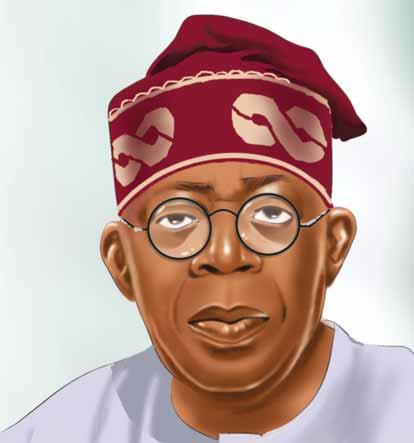
On July 18, 2025, members of the Association of Power Generation Companies (APGC), led by Col. Sani Bello (rtd), were received at the Presidential Villa in Abuja, Nigeria.
Without minimizing words, in pointing to the key problems facing the Nigerian energy industry, President Bola Tinubu highlighted some of the “very critical problems” in the country’s energy sector with accessible options. The President assured them of his administration’s commitment to resolving the liquidity challenges in the power sector. He recommended that the operations be located very close to the financial industry of the country.
The President assured them of his “commitment” to tackling the liquidity challenges in the power sector. It is equally important to underscore the point that Tinubu signed the Electricity Act 2023, which aims to liberalize the electricity market and empower States to manage their own sectors.
These developments and policy reviews came, in part, against the background of the mid-March 2022 nationwide collapse of Nigeria’s Electricity grid at All the e-DISCOs (Electric Distribution Companies). Those also revealed for the 100th time, the shame and criminal connivance and incompetence of some of the inglorious leaders of Nigeria, and its elite.
The usual phrases, “There’s no light” or “They’ve taken light”, have since become pronouncements of instinct and a sense of resignation in the darkness for many Nigerians. Millions say that access to a steady, reliable supply of electricity and alternative, clean energy will be a critical test of the purpose and direction of the Tinubu presidency. It might be the legacy issue to remember, applaud or condemn the ageless Jagaban!
He’s not making a parade of what he is putting in place for power supply and energy — if anything significant. As an experienced power player, it’s good to be cautious.
Especially where soldiers and civilians have failed and still walked away with lots of money. After all, trillions of Naira, Euros and Dollars have been budgeted, spent, and shared within the familiar networks and rings of criminal
Fred Itua writes that Governor Monday Okpebholo is leaving no stone unturned in ensuring that development gets to all the nooks and crannies of Edo State.

subterfuge in and outside Nigeria.
I believe that the controversial Tinubu understands the implications of another merry-go-round into 2026... Tinubu promised Nigerians that he would solve the energy problems. Sadly, a lot of Nigeria’s resources are being squandered in serial financial shenanigans; squandered without mercy, without decorum. Squandered, without the fear of God!
Consequently, when you assess the level of disregard that the Nigerian elite, military and civilian rulers have kept and held Nigerians, since 1960, the year of its political independence, you feel the weight of the corruption, crooked and callous incompetence of these people. Nigeria’s first Integrated National Electricity Policy in 24 years was launched to improve planning and implementation.
But the quest to the building and sustenance of power supply: electricity, natural gas, solar energy and other creative process of generating reliable and scalable power continue to expose 65 years of monumental incompetence, sheer wickedness and brutal disregard for the wellbeing of those who wake and toil for Nigeria and their families, every day!
At the end of the day, the average Nigerian and the rich Nigerian live through the sweaty blanket of darkness. They all swear against the original, defunct godfather of impunity and corruption, called NEPA (Never Expect Power Always)!
The same symptoms.
The same congenital incompetences.
The same afflictions are already in the DISCO nomenclature.
Nigerians are still left in surrealistic darkness, in collective and individual capacities. Generators are pollutants! They have since become disconcerting, daily reminders of the Nigerian leaders’ contemptible lack of seriousness. They are cruel, discordant reminders of a society furiously chasing development, backwardly!
-Dr Nwangwu, author of the forthcoming book, MLK, Mandela & Achebe: Power, Leadership and Identity, is the Founder of the first Africanowned, U.S-based newspaper on the internet, USAfricaonline.com, and established USAfrica in 1992 in Houston.
Follow him on X @Chido247

There are men who walk into history with drums behind them. And then, there are those who carve their names into stone with bare hands. No noise, just purpose. Monday Okpebholo is the latter. A man shaped not by applause but by assignment.
He does not need the echo of a microphone to be heard. He is the hush before the storm, the pulse beneath progress, the quiet fire burning behind change. In a land fatigued by flamboyance, Edo found in him a governor who governs with steel wrapped in humility. No grand entrances. No thrones. Only boots, files, and unfinished roads.
And where others saw impossibility, he saw blueprints.
Born into modesty, Okpebholo’s story is not one of overnight stars. He rose, not by stepping on backs but by standing on values. He learned early that power borrowed from the people must return with interest.
Not in promises, but in pavements, pipelines, and peace.
He speaks little. But when he does, communities listen. Because every word carries weight, every vow finds feet. They said the Rahmat Flyover was a mirage. He brought cranes to its rescue. Steel rose like morning sun, and doubters blinked in disbelief.
He did not boast. He simply said: “We must finish what we start.” There are places in Edo where shadows ruled. Where boys, barely men, bore arms in cults and claimed streets as kingdoms. And where kidnappers turned forests into hell.
Okpebholo did not call for a summit. He called the fight. No hashtags. No hollow condemnations. He stormed the dens with task forces, rearmed the state’s will, and told the dark: your time is up.
Peace, like dew, is returning to the land. It does not arrive with fanfare. It comes in the form of markets reopened, roads less feared, mothers sleeping without dread. He wears his party colours, yes, the green white, blue and red of APC. But he does not serve colour; he serves cause.
To him, politics is a ladder to the masses, not a throne above them. He builds loyalty,
not with rewards for cronies, but with open books and unshaking hands. When others bought time with excuses, he bought tractors, engineers, and timelines.
He rewards not sycophancy, but service. In Okpebholo’s Edo, the civil servant who shows up is seen. The teacher who teaches is heard. The health worker who stays at duty post is not forgotten.
He does not hide behind curtains when the city is flooded. He walks inside the waters. When the storm tore through Etsako, he didn’t send a commissioner.
He came with sleeves rolled, not for optics, but for ownership.
His ears are not locked in offices. They are wide open at town halls. A child once asked about her torn classroom roof. The roof is no longer torn.
This is not magic. It is governance, honest and unscripted. Some say leaders forget. That they campaign with memory, and govern with amnesia.
But Okpebholo remembers: He remembers promises made under canopies. He remembers widows, artisans, forgotten councils. He remembers that the seat he holds is rented, and the rent is paid in service.
He has no tolerance for corruption; not in words, but in war. Files move. Budgets meet concrete. Contractors work or walk. His government is not a party. It is a mission. And that mission has no room for thieves. Edo is not shouting anymore. It is working. It is healing. And while others search for legends in Lagos and Abuja, we, here, are witnessing a quiet epic unfold in Benin. Okpebholo is not asking for praise. He is planting a legacy. Not the kind built in monuments, but the kind whispered in markets: “This man dey try.”
Not the kind written in marble. But the kind sung in streets: “Our governor no dey make mouth. E dey do work.”
So let it be said: There was a Monday when Edo began again. And history, when it looks back, will call his name without stammering.
-Itua, Chief Press Secretary to Edo Governor, writes from Benin.
www.thisdaylive.com


opinion@thisdaylive.com
JOSHUA J. OMOJUWA urges Nigerians to support their own, no matter the situation

See page 21
ENUGU AND POLITICS OF 2027
Victory for APC requires loyalty and good mobilisation, reckons CHUKWUNONYE OKEREKE

See page 21

BOLAJI ADEBIYI notes that the Sir Ahmadu Bello Memorial Foundation’s government-citizen engagement
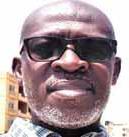
It was democracy in action in Kaduna, the crocodile city, on Tuesday. It represented an interaction between the governors and the governed over the crucial issue of the North's progress under Bola Tinubu's leadership, who has been in power for the past two years. It was a significant gathering that emphasised the direction Nigeria's democracy should follow.
Sometime in 2022, Tinubu, who had secured the presidential candidature of the ruling All Progressives Congress, approached the Ahmadu Bello Memorial Foundation for support. Founded in 2009, the Foundation aimed to preserve the legacies of the late Premier of the former Northern Region and Sardauna of Sokoto, Sir Ahmadu Bello. Although a non-political and non-religious organisation, its objectives and promoters give it a level of legitimacy that any politician seeking support from the region must acknowledge.
It was in pursuit of this goal that Tinubu approached the organisation, an adjunct of the equally influential Arewa Consultative Forum. Unsurprisingly, the presidential flagbearer was asked to address some concerns of the region and commit to resolving them.
Two years into his tenure, the Foundation deemed it appropriate for Tinubu to come and account for his stewardship, especially regarding the electoral promises he made three years earlier. The request was a necessary enforcement of democratic accountability, particularly at a time when some of the region’s leaders believed that the administration it helped establish was underperforming and working against the zone’s interests.
It is a well-known fact that most politicians in the country do not feel responsible to the electorate. Once elected or appointed, they largely vanish from their constituency and become unreachable. Such an approach creates a communication gap, which fosters a negative perception of the government and its activities. Consequently, there are no feedback mechanisms, or, in a few cases, poor communication of the government’s policies and programmes.
In these circumstances, Tinubu deserves praise for his comprehensive response to the questions from some Northern leaders and the Foundation’s call for transparency. It is mistaken to see his deployment of over 60 senior officials to address the valid concerns of his North-based constituents as panic-stricken. After all, as rightly posited by the Northern leaders, he made it to the presidency with 64% of the votes cast in the region. So, would it be politically correct to ignore the concerns of even a fraction of such an influential electoral bloc?
If anyone doubted the communication gap between the Tinubu administration and the North’s thought leaders, the recently concluded conversations in Kaduna should have dispelled that doubt. What began as Tinubu-bashing ended with praise for his administration. Despite the impressive keynote address by Tijjani Bande, an accomplished professor of Political Science, diplomat, and former president of the United Nations General Assembly, which emphasised the importance of size, skills, and unity as
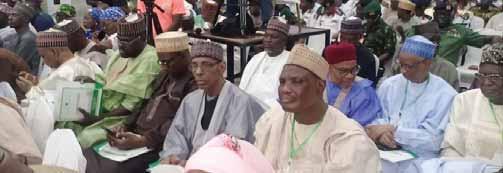
factors of state power and a deterrent to external harassment in international politics, and the appeal by Babangida Aliyu, two-term governor of Niger State and the Foundation’s Board of Trustees chairman, the initial comments by thought leaders were adversarial.
Bashir Dalhatu, a notable lawyer and the ACF chairman, opened the floodgate, contending that despite contributing 64% of the votes that secured the presidency for Tinubu, his administration had marginalised the North. He said the principal concerns in the region, including security, agriculture, infrastructure, and key appointments, had been neglected to the detriment of the area. Ango Abdullahi, a professor of agroeconomics and former vice-chancellor of the Ahmadu Bello University, Zaria, was similarly persuaded. He was especially unhappy about the North’s army of out-of-school children, arguing that if the federal government had allocated more funds to education, the situation would have been different.
These were not fresh complaints, though. A few weeks before the Kaduna engagement, some notable Northern politicians, including Rabiu Kwankwaso, former minister and twoterm Kano State governor, and his Kaduna State counterpart, Nasir el-Rufai, had raised similar concerns. Although the presidency spokespersons dismissed them as ranting, disgruntled politicians, they nevertheless reeled out statistics and data that showed the federal government’s programs and projects in the North since Tinubu took power in 2023. The persistence of these complaints despite presidential rebuttal probably justifies the heavy deployment of senior officials in the Kaduna conversations. Looking at the outcome of the engagement, the president must praise his judgment in taking seriously the Foundation’s call for accountability.
Led by George Akume, a two-term governor, three-term senator, and Secretary to the Government of the Federation, the administration’s team addressed the complaints with facts and figures. The star witnesses and defendants were Nuhu Ribadu, the national security adviser; Chris Musa, a four-star general and chief of defence staff; Abubakar Bagudu, a two-term governor, two-term senator, and minister of Budget and Economic Planning; Ali Pate, a professor of Medical Sciences and coordinating minister of Health and Social Welfare; and Sabi Abdullahi, a two-term senator and minister of state for Agriculture.
Before Tinubu’s officials rendered an account of his midterm stewardship, the Northern governors, represented by their chairman, Yahaya Inuwa, who governs Gombe State, and Uba Sani, a one-term
senator and host of the engagement, reported the cooperation and support they had received from the president. Sani, especially, argued that it was unfair to hold Tinubu responsible for the decades of neglect, contending that the president had fulfilled his electioneering promises to the region. Ribadu and Musa reported that Tinubu’s efforts to tackle security challenges in the region have made the North safer, following the security forces' efforts to destabilise violent non-state groups by neutralising their leaders and killing thousands of their followers. It remains a work in progress, they stated, calling on stakeholders to support the security forces in driving out the criminal elements among them.
Bagudu, responsible for budgeting and economic planning, provided a more detailed overview of his boss’s fulfilment of campaign promises. He stated that the president’s bold economic reforms had freed trillions of Naira, which had been made available to subnational governments to carry out infrastructural projects that would promote sustainable growth and inclusive development in their states. He highlighted the infrastructural projects undertaken by the president in the region as part of his Renewed Hope legacy programmes. Pate and Abdullahi, along with others of Northern origin, did the same for health, agriculture, and other areas of concern.
What became clearer by the end of the conversations was that the idea of marginalisation was more a political perception, driven by either a communication gap or outright bias rather than reality. The Foundation's communiqué at the end of the dialogue captured this succinctly when it said a case was “made for institutionalised periodic government-citizen dialogue platforms at the national and state levels.”
More importantly, is the pass mark that Tinubu achieved. His men, like the Biblical Daniel, essentially entered the lion’s den and emerged unscathed. If anyone doubts this outcome, portions of the communique should clear the doubt. “The government demonstrated openness to dialogue and continuous citizen engagement,” it stated, adding, “The summit concluded that Northern Nigeria acknowledges and commends the administration’s high performance in fulfilling its electoral promises in many areas and also appreciates subsisting challenges.”
Adebiyi is the Special Assistant on Media to the Minister of Budget and Economic Planning, Senator Abubakar Bagudu

JOSHUA J. OMOJUWA urges Nigerians to support their own, no matter the situation


I was with a few friends as the Super Falcons went down 2-0 to Morocco. Mission X, the one where Nigeria gets to win its tenth Women African Nations Cup (WAFCON), was now fully in danger. One nil was bad enough as this was against a formidable host that had lost the previous final to South Africa, but two nil looked like a herculean task to negotiate. I started to hope that we’d at least score a goal before half time. As the half went on, a couple of friends started to debate and were going to make a bet. One said it was a done deal, that Morocco could not lose from the position they had found themselves. The other, a military man, said he was ready to have a bet on the Falcons. N10m from each person. Then yet another friend knocked that option off the table.
I thought, and I said so, these are the Super Falcons, they are the supreme team of this tournament across decades. One whole half of football was enough time for them to recover. I believed they could. On social media, there were some Nigerians already jubilating a loss that was yet to be. They said the president getting himself involved with them had brought them ill luck. They hoped the Super Falcons would even concede more. It was an endless barrage of self-hate masking as trolling.
Some joked, saying the support shown to the team by government officials had doomed them. What I saw was less about football and more about frustration turned inward. It is one of those conversations that somehow get to be infiltrated by people’s political leaning. It was once said that Nigerians were united by football. I don’t know how much of this was true but it is certainly less true these days.
Trolling one’s country whilst pretending it was against its leaders. This wasn’t just harmless fun, it was self-hate, masked as stale humor. When some people begin to delight in their own loss whilst being blind to same, something deeper is at play. It’s not just the football that’s broken. It’s the belief that nothing good can come from us. And that is more dangerous than a 2–0 halftime scoreline. It is also a resignation of national identity, that they do not belong in the prosperity or failings of Nigeria as long as the country was not bending to their desires.
We must remind ourselves that the Super Falcons have carried Nigeria for decades. Nine WAFCON titles. Consistent appearances at the Women’s World Cup. They’ve done this with minimal support, low media coverage compared to the male team, and at times underwhelming institutional backing. While the men’s team has often commanded the headlines and budgets, it is the women who have consistently delivered better results.
And yet, the moment they fell behind, they were not just criticized, they were ridiculed. They faced criticism during the group stage too. They had become a victim of their own success, win-
ning was no longer enough, how they won became a source of criticism. Drawing Algeria despite already six points good from the first two games was deemed a crime. There were people who started to knock the appointment of coach Justine Madugu. In the end, the ladies had the last laugh. And they are now laughing to the bank, thanks to President Bola Tinubu rewarding them with $100,000 each, not to mention their national honours, OON and other rewards.
One truth stings: you are only loved when you win. Athletes are celebrated when they triumph and abandoned when they stumble. And in the digital age, this abandonment comes quickly.
Football is never just a game here. It is the one arena where class, ethnicity, and religion blur, where a barber in Kano can scream the same goal celebration as a banker in Lagos. When the Falcons play, it is not only about sport. It is about national spirit. I hope it stays this way.
That is why the stakes feel higher, and the criticisms cut deeper. It is also why, when fans turn against their own, it feels like a collapse of something sacred. The Falcons didn’t just go down in that first half. We did too. Because in those moments, some stopped believing. Support is not only for when things are going well. True support is shown in adversity. The Super Falcons did not owe us a win. But we owed them faith, especially given what they have done for us over the years.
We need to rethink what it means to be a fan. It is not just buying jerseys and tweeting goal highlights. It is standing up for our players when they are down. It is holding sports administrators accountable, not just the players. It is pushing for respectful treatment of women’s teams and calling out disparities in investment. That night against Morocco, the Super Falcons gave us more than a football match. They gave us a lesson in persistence. In dignity. In refusing to give up when others had already stopped cheering.
Their performance reminded us that you do not need to win to be worthy of respect. You only need to fight with everything you have. Even if they didn’t lift the trophy that night, they already lifted the mirror to our collective mindset. And what we saw was uncomfortable at times.
When the Super Falcons were down, many of us gave up. But they didn’t. They kept going. And that’s the story we should be telling. Nigeria is full of people who get up every morning and try again despite the odds. Our athletes, artists, entrepreneurs, and everyday citizens embody that quiet resilience. The least we can do is believe in them, even when the scoreboard doesn’t look good. If we are ever going to rise as a nation, it will not be because we never fell behind. It will be because we learned how to respond when we did. That’s a lesson we can take from the success of Mission X.
Omojuwa is chief strategist, Alpha Reach/BGX Publishing
As Nigeria gradually approaches the defining year of 2027, political permutations are already gathering momentum across the country. At the heart of these early alignments lies a crucial question: who will drive President Bola Ahmed Tinubu’s Renewed Hope Agenda in regions where the APC seeks deeper footholds?
In the Southeast — and particularly in Enugu State — the answer does not require guesswork. One name continues to stand tall, not just for his loyalty but also for his strategic relevance and unbroken grassroots connection: Chief Uche Nnaji, the current Minister of Innovation, Science, and Technology.
While many politicians in the region stood aloof or in outright opposition to President Tinubu's emergence in 2023, Chief Uche Nnaji took a principled stand, flying the APC gubernatorial flag in a hostile political climate. His commitment to the party, the president, and the idea of national integration makes him not just a participant in the Renewed Hope project but a pillar of its future success in Enugu.
It is no secret that the APC remains politically isolated in much of the Southeast. In such an environment, loyalty is not mere symbolism — it is sacrificial leadership. Chief Uche Nnaji stood firm when many sought the convenient refuge of political expediency. His 2023 campaign, while falling short electorally, succeeded in planting a resilient structure for the APC across the 17 local government areas
politician and cannot play politics.This shows that his sudden interest in APC is just for political survival.
Despite his incumbency, he faces growing discontent because of his type of pro rich policies in Enugu. His governance has been described by many as elitist and tone-deaf, characterized by a topdown approach that has widened the gap between government and governed. The state's poor handling of economic pressure, inflation, and insecurity has left many disenfranchised.
The immediate past Chairman of the Enugu Capital Territory Development Authority (ECTDA), has become a symbol of urban aggression. His demolition campaign — targeting homes, shops, and long-standing businesses — has created deep social resentment. Instead of empathy and urban renewal, what many Enugu residents feel is displacement and betrayal.
Chief Nnaji offers a vastly different approach. He is neither burdened by past governance failures nor detached from his people. His technocratic exposure — as a national minister — is balanced with street credibility and cultural resonance in Enugu communities. His emphasis on innovation, education, youth empowerment, and digital skills matches the Tinubu administration’s long-term

of Enugu State.
This loyalty should not be overlooked or taken for granted as 2027 approaches.
The presidency and the APC national structure must resist the temptation to court familiar but flawed political names in Enugu — names that have proven either electorally irrelevant or disconnected from the masses.
Former Governor Ifeanyi Ugwuanyi, for instance, could not deliver his own senatorial district in 2023. He is still in PDP and it is by the grace of former Governor Wike that his political ebbing light is still flickering. Is it him that will galvanize for the president?
Despite his holding the machinery of state power, he was overwhelmingly rejected by his own people. Governor Peter Mbah, is in PDP and has succeeded in destroying his party while claiming to be interested in the re election bid of President Ahmed Bola Tinubu. He is simply looking for a prepared political launching pad in APC. He has severally said that he is not a
vision.
Chief Uche Nnaji is the face of a new APC — clean, competent, and inclusive.
The Politics of 2027 must be grounded in truth and APC cannot afford to gamble with recycled politicians who have either lost elections or lost touch. The stakes are too high. Chief Nnaji represents both continuity and credibility. He is one of the few Igbo leaders who did not just support the president, but risked political capital to align openly with him.
If Tinubu’s Renewed Hope Agenda is to resonate in Enugu in 2027, it must wear the face of Uche Nnaji. He is not just a political figure — he is a pivot, a stabilizer, and a bridge between the Southeast and the nation’s center of power.
Okereke, a development advocate, writes from Enugu

Editor, Editorial Page PETER ISHAKA
Email peter.ishaka@thisdaylive.com
The agitation for new states is ill-advised
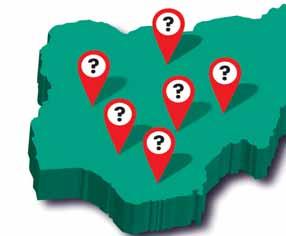

It smacks of self-deceit for the National Assembly to be encouraging agitation for more states when it is clear that the demands are unrealistic and would not
T H I S D AY
EDITOR SHAKA MOMODU
DEPUTY EDITOR WALE OLALEYE
MANAGING DIRECTOR ENIOLA BELLO
DEPUTY MANAGING DIRECTOR ISRAEL IWEGBU
CHAIRMAN EDITORIAL BOARD OLUSEGUN ADENIYI
EDITOR NATION’S CAPITAL IYOBOSA UWUGIAREN THE OMBUDSMAN KAYODE KOMOLAFE

EDITOR-IN-CHIEF/CHAIRMAN NDUKA OBAIGBENA
GROUP EXECUTIVE DIRECTORS ENIOLA BELLO, KAYODE KOMOLAFE, ISRAEL IWEGBU
DIVISIONAL DIRECTORS SHAKA MOMODU, PETER IWEGBU, ANTHONY OGEDENGBE
DEPUTY DIVISIONAL DIRECTOR OJOGUN VICTOR DANBOYI
SNR. ASSOCIATE DIRECTOR ERIC OJEH
ASSOCIATE DIRECTOR PATRICK EIMIUHI
CONTROLLERS ABIMBOLA TAIWO, UCHENNA DIBIAGWU, NDUKA MOSERI
DIRECTOR, PRINTING PRODUCTION CHUKS ONWUDINJO
TO SEND EMAIL: first name.surname@thisdaylive.com
Letters in response to specific publications in THISDAY should be brief (150-300 words) and straight to the point. Interested readers may send such letters along with their contact details to opinion@thisdaylive.com. We also welcome comments and opinions on topical local, national and international issues provided they are well-written and should also not be longer than (750- 1000 words). They should be sent to opinion@thisdaylive. com along with photograph, email address and phone numbers of the writer.
Mr. Femi Adeshina, former aide to the former President Muhammadu Buhari, in a telephone conversation with Seun Okinbaloye recently on Channels TV described late former President Buhari as his senior friend.
Just like Femi Adeshina, I can describe myself as a Junior friend of the late former President.
Some weeks ago, I got a phone call from the late former President’s close relation that he was in London. I was actually in London at about the same time. The relation lamented that if they knew that I would be in London, that they would have suggested that I pay him a visit in the hospital.
I have so many senior friends in northern and southern parts of the country. In Kaduna, I used to have five senior friends i.e. late President Buhari, late Alhaji Umaru Dikko, Col. Ahmadu Ali (alias Ali must go), late Alhaji Balarabe Musa, and the current Emir of Gwandu, General Mohammadu Jega, two times military governor and GOC of 2nd Division of Nigerian Army in Ibadan.
Four of them came all the way from Kaduna to Ode Remo in Ogun State and spent three days with me during the burial ceremonies of my mother in law.
With the passing on of former President Buhari, I have again lost one of my senior friends. During the recent launch of his book, Garba Shehu, late Buhari’s former aide, said that the late president rejected so many gifts including a N400 million luxury cars, diamond wrist watches, bribes from a construction giants, etc.
I can personally confirm that this is true of late President Buhari. He however did accept gifts from his genuine and trusted friends, particularly if he was sure that the gifts were offered without any ulterior motive.
He never rejected any gifts from me since 1985. His family members are aware of our relationship. I could remember that within the first few months of his first term in office, my personal assistant informed me of an incident that took place in Buhari’s Kaduna home, which he witnessed.
Someone brought to his house two trailer loads of foodstuffs, and when he was contacted on phone in Abuja, he instructed that the gifts be rejected.
He however instructed that my own be accepted, which in the presence of my P/A were put in one of the rooms in his main house.
I also recollect that on the day the Presidential candidates ( that included Buhari ) were signing the peace accord with General Abdusallami’s peace committee, he instructed his cousin to come to my office in Kaduna to collect my token towards his campaign.
I told his cousin that my “widow’s mite,’ will be for his family and not his political party.
That while he was away on his campaign activities, his family would also need to be supported financially.
May his gentle soul rest in peace.
Oyedele Olawale, Kaduna
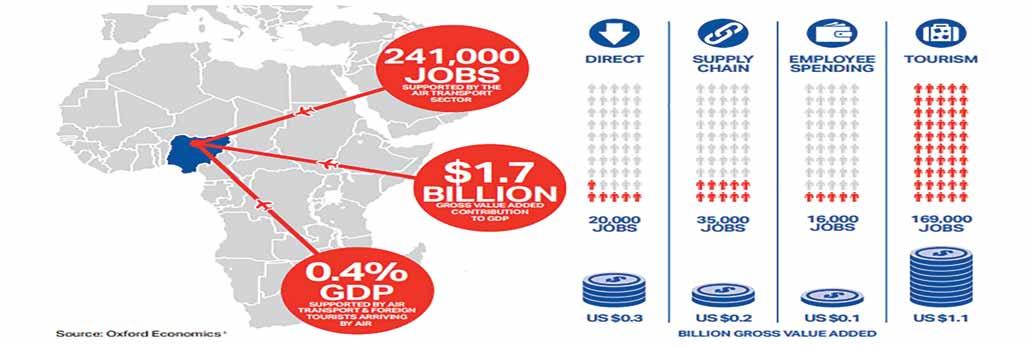
Chinedu Eze
Aviation industry experts have identified factors that inhibit the plan of the African Union, supported by the International Air Transport Association (IATA), to have open sky for Africa, known as the Single African Air Transport Market (SAATM), giving reasons why it may not promote trade as expected.
SAATM is expected to promote easy entrance and exit of African airlines to any AU member state. It is a flagship project of the African Union Agenda 2063, which is an initiative of the African Union to create a single unified air transport market in Africa to advance the liberalisation of civil aviation in Africa and act as an impetus to the continent’s economic integration agenda.
The objective is that with easy entry and exit of African airlines,
trade among African nations will be promoted, as it is expected that the region’s economy will improve significantly if Africans trade among themselves. This will encourage food production and manufacturing on the continent because the region has arable land to cultivate its food and huge population to consume its produce and products.
It is also expected that if African nations trade among themselves, over time they will evolve a system where their currencies will not be validated by Euro, CFA or dollar and with SAATM, African airlines will move passengers and goods to create markets in Africa with limited reliance on imported goods from outside Africa. So, SAATM is a practical actualisation of the Yamoussoukro Decision, which was a treaty adopted by most members of AU aimed at liberalising air transport service between African countries.
According to the Managing Director, OmniBlu Aviation Services, Akin Olateru, SAATM remained good and would advance connectivity and trade in Africa, but further explained that certain parameters must be put in place to make it work.
Olateru who was the former Director General of Nigerian Safety Investigation Bureau (NSIB), said a lot of things ought to happen before the airspace is liberalised, which may include the adoption of common passport, common currency and one umbrella regulatory body that Civil Aviation Authority of member nations must yield to its regulatory control.
According to him, “SAATM is good but you cannot pick and choose. You cannot say that you want to liberalise aircraft movement but you are not liberalising passenger movement and we are not liberalising
the currency. Let’s take a cue from the European Union (EU). They have one single currency. They have one passport. They have centralised regulation. In terms of aircraft and civil aviation in general, there is a minimum standard every country must abide by. That is the essence of EASA (European Union Aviation Safety Agency). They came up with EASA and every country in the union signed to that programme.
“So, it is a centralised safety system. But in Africa, you just say, SAATM, SAATM; let the aircraft just enter any country anyhow. No. Okay, aircraft will enter but people are restricted by visas. That doesn’t make sense. So, you will be flying empty aircraft into countries. And if you are not careful, this will just favour some countries and some countries will be left out. Everything must go together, if Africa wants to
implement SAATM 100 per cent. “There must be a unified CAA (Civil Aviation Authority) regulatory body; just like EASA. The CAA of every country in Africa will agree on uniform standard of operation. If you register an aircraft in The Gambia, it will be of the same standard if you register it in Nigeria. So, these are the things they need to implement or push forward; if not, in my opinion, it is not going to work. Even in cargo, there should be free trade. There shouldn’t be borders. People should be able to move without border control. It is a really long way to say that SAATM will be successful.”
In his contribution, the Managing Director of Flights and Logistics Solutions Limited, Amos Akpan, revealed how SAATM encountered challenges due to the lack of liberalisation and backdoor
protectionism by African countries. According to Akpan, “The Immigration systems are not simple and open. Simplifying visa requirements and travel procedures can facilitate the free movement of people, promote tourism and business travel. There are too many documents and complex procedures involved in transactions amongst African countries. A unified currency can reduce transaction costs and complexities, making trade and travel easier. The charges are very high in some countries and regional blocs. Common uniform charges would encourage operators. For instance, standardising fees and charges can create a more favourable business environment for the airlines and tour operators.
The Managing Director, Nigerian Ports Authority (NPA), Abubakar
Dantsoho has restated the readiness of the NPA to promote the indigenous ownership of shipping vessels in line with the ‘Nigeria
First’ policy of President Bola Ahmed Tinubu.
He stated this yesterday during the maiden call of wholly Nigerian-owned container vessel
“MV OCEAN DRAGON” at the West African Container Terminal
Onne Port Port Comple, Onne Port, Rivers State.
According to Dantsoho, “Apart from the high loading capacity of 349 TEUs and several other distinctive features of this vessel, we are fascinated that MV Ocean Dragon is wholly Nigerian which speaks to the Renewed Hope “Nigeria first” policy of His Excellency President Bola Ahmed Tinubu and the Nigerian Ports Authority’s renewed orientation towards Nigerian content development”.
Dantsoho added, “The very fact that this vessel which can move thousands of Gross Registered Tonnages across African destinations within days, signposts the Nigeria’s commitment to the dictates of International Association for Ports and Harbours (IAPH) on multi-modalism and seamless Port-Hinteland Connectivity.”
“This gives us great delight as it supports the rationale behind NPA’s simplified export processes through the Export Processing Terminals (EPTs) conceptualized
to link local producers of value in the remotest hinterland to the farthest international centres of demand”.
“Let me seize this moment to reiterate that the Authority’s port modernization project and ongoing reform initiatives around our Port Operations is cognizant of the need to sustain the enabling business environment that midwifed the year-on-year attainment of national trade surpluses.”
He added, “Coming on the heels of increasing growth in Nigeria’s
transhipment figures from the Lekki Deep Seaport and the expansion in external goods trade reported by the Nigerian Economic Summit Group (NESG) thus far for 2025, the coming on stream of MV Ocean Dragon to propel even greater volumes symbolizes the fact that the Nigerian business environment is progressively getting better.”
“With shipping volumes promising to get higher, forwardlooking investments such as the one we are gathered here to celebrate will certainly have a big impact
in the long run. I want to assure the global investment community that the Nigerian Ports Authority under the supervision of the investorfriendly Minister of Marine & Blue Economy His Excellency Adegboyega Oyetola, will continue to galvanize stakeholder efforts to continuously promote the ease of doing business all in a concerted bid to optimize the rich blue economy inherent in our maritime endowments,” he said.
Kayode Tokede
The 13th President and Chairman of Council of the Chartered Institute of Stockbrokers (CIS), Oluropo Dada, has called on the federal government to implement structural reforms in Nigeria’s financial ecosystem to enable sustainable capital formation and drive long-term economic growth.
Speaking at the CIS Workshop themed, “Capital Formation in Nigeria: Strengthening Industry, Institutions and Markets to Bolster a $1 Trillion Economy,” held recently at the State House, Abuja, Dada emphasised the need for deliberate government action to create an environment where industries, institutions, and capital markets can flourish.
“Capital formation does not occur in a vacuum,” he noted. “It requires an ecosystem built on
policy consistency, macroeconomic stability, robust public-private partnerships, and investment in human capital.”
He further stressed the importance of strong, transparent institutions in attracting longterm investments. “Institutional reform is critical. Nigeria must enhance governance, strengthen its regulatory frameworks, and address corruption in order to build investor confidence,” he said.
Also speaking at the event, Director-General of the Securities and Exchange Commission (SEC), Dr. Emomotimi Agama, reaffirmed the Commission’s commitment to capital formation as a pillar of economic growth. He referenced the Investment and Securities Act (ISA 2025) as a key tool to drive innovation and deepen the market.
“This Act is a framework for transformation,” Dr. Agama said. “It calls on stockbrokers to innovate,
investors to invest confidently, and regulators to act with foresight. Every policy we implement must answer one question: does it move us closer to achieving a $1 trillion economy?”, he noted.
Delivering remarks on behalf of Vice President Kashim Shettima, the Special Adviser on Economic Matters, Dr. Tope Fasua, described capital formation as the foundation for infrastructure development, economic expansion, and improved living standards.
Fasua noted impressive recent growth in Nigeria’s capital market: “In 2023, the All-Share Index (ASI) stood at 55,000 points with a market capitalization of N28 trillion. As of July 2025, the ASI has surged to 131,000 points and market capitalization now stands at N75 trillion — a threefold increase in just two years. This reflects renewed investor confidence and a clear path to economic recovery.”
Stories by Chinedu Eze
The Nigerian Safety Investigation Bureau (NSIB) has played host to the 12th Commission Meeting of the Banjul Accord Group Accident Investigation Agency (BAGAIA), further strengthening its leadership role in promoting aviation safety and investigative cooperation across West Africa.
This year’s theme: “Celebrating Our Collective Wins in Capacity Building and Aviation Safety Across the Banjul Accord Group (BAG) Region and Beyond,” captured both the measurable strides taken and the pressing
responsibilities that remain. It affirms the region’s growing ability to share expertise, develop investigators, and improve safety outcomes. It also reminds every participating state that progress depends on consistency, cooperation, and continuous investment in people and systems.
Director General of NSIB, Captain Alex Badeh Jr, representing the host country, delivered an address at the opening ceremony, emphasising the need for unity and responsiveness in addressing cross-border aviation challenges.
“Cooperation among member
states is not just a goal but the foundation of our success. Aviation incidents transcend borders and demand seamless collaboration. We must move as one,” Badeh said.
NSIB’s Director, Public Affairs and Family Assistance, Mrs. Bimbo Olawumi, in a statement, said: “The NSIB-led hosting of this BAGAIA Commission Meeting signals Nigeria’s readiness to shape the future of investigative capacity in Africa. It also affirms the Bureau’s central role in developing specialised infrastructure, coordinating training efforts, and furthering collaboration beyond national borders.”
Mary Nnah
Honda Manufacturing (Nigeria) Limited has officially launched its latest motorcycle model, the Honda Wave 110S, reinforcing its commitment to providing reliable, affordable, and efficient mobility solutions for Nigerian riders. The Wave 110S is designed with the needs of the everyday rider in mind, offering a perfect blend of comfort, fuel efficiency, and durability.
The launch event took place on Wednesday, July 24th, at the company’s premises on Ota/Idiroko Road, Ogun State.
According to the Managing Director of Honda Nigeria, Tetsuya Kawai, the Wave 110S is built to provide comfort, fuel efficiency,
and durability.
“The Wave 110S isn’t just a motorcycle, it’s a dependable partner for work, family, and daily life,” he emphasised.
The Wave 110S boasts a sleek design, superior handling, and a trusted Honda engine, making it suitable for Nigeria’s diverse road conditions. It features a clean and sporty design, hand-start function, under-seat storage, and a smooth riding experience. The motorcycle is equipped with a 110cc engine, hydraulic disc brakes, and cast wheels, enhancing its fuel efficiency and safety.
General Manager of Honda Motors’ Motorcycle Business Unit, Sales Division, Komine Tetsuya, highlighted that the Wave 110S launch is a significant step in Honda’s mission to enhance mobility, economic empowerment, and rider confidence in Nigeria. He noted that the Wave 110S is more than just a motorcycle - it’s a trusted companion for work, family, and daily life.
The launch follows Honda’s historic global milestone of producing over 500 million motorcycles worldwide.
The International Air Transport Association (IATA) has called on African states to reduce taxes and charges on air travel in Africa.
Group Business Editor
Eromosele Abiodun
Deputy Business Editor
Chinedu Eze
Comms/e-Business Editor
Emma Okonji
Asst. Editor, Energy
Emmanuel Addeh
Asst. Editor, Money Market
Nume Ekeghe
Correspondents
KayodeTokede(CapitalMarkets)
James Emejo (Finance)
Ebere Nwoji (Insurance)
Reporter Peter Uzoho (Energy)
The global body complained that taxes and charges in air travel in the region were 15 per cent higher than the global average.
IATA emphasised that it is critical that governments on the continent understand that the greatest value that aviation brings to an economy is catalytic, noting that transporting travellers and goods stimulates job creation and destroying demand with excessive taxation puts a brake on economic and social development.
IATA said that where charges are used to fund critical aviation infrastructure, coordination between industry and government is essential, noting that the aim must be to build growthsupporting infrastructure that is

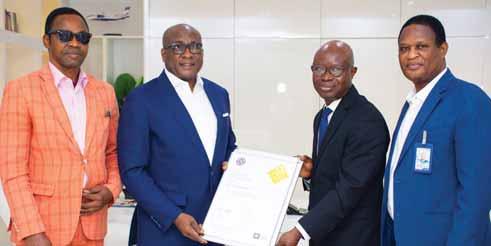
Chinedu Eze
After many years that Nigerian airlines stopped international flights to the United Kingdom and the United States, Nigeria’s major carrier Air Peace kicked off Lagos-London Gatwick flights in March 2024 and after one year, it was able to secure Abuja-London Heathrow, a feat many Nigerians attributed to the support of the federal government and the airline’s commitment to international standard operation.
According to the airline, from October 26, 2025, Air Peace will start Abuja to London Heathrow Airport flights in addition to flying to Gatwick.
The airline’s spokesperson, Mr. Efe Osifo-Whiskey, said Air Peace would conduct direct international flight services from Abuja to both London Heathrow and London Gatwick Airports.
According to him, Air Peace is the first Nigerian carrier to offer direct services from Abuja to both of London’s major international airports, “further solidifying its role as a leader in regional and intercontinental aviation.”
He said travellers originating from any of Air Peace’s domestic destinations across Nigeria can now book through fares via Abuja to either Heathrow or Gatwick using a single ticket, eliminating the need for multiple bookings or baggage re-checks
Another incentive is that travellers from London can access multiple destinations across Nigeria using a single Air Peace ticket through Abuja every morning.
These destinations are Lagos, Port Harcourt, Enugu, Benin, Warri, Owerri, Kano, Yola, Gombe and Asaba, for now. Other destinations will be added later.
The airline said it would provide a distinct competitive advantage, enabling passengers to travel between Nigeria and the United Kingdom with greater ease, efficiency, and value, due to the possibility of choosing multiple cities entry and exit points.
It has also introduced the cheapest fares ever, starting from N1 million round trip with huge baggage allowance.
cost-efficient and scalable.
On blocked funds, IATA said airlines cannot operate in a market if they are unable to repatriate revenues generated, which is guaranteed in international treaties and bilateral agreements.
It regretted that the $1 billion of airline revenues being blocked from repatriation by African governments (as of May 2025)—73 per cent of total global blocked funds—is an impediment to maintaining Africa’s international connectivity, disclosing that blocked funds are spread across 26 African countries.
IATA remarked that airlines facing blocked funds often reduce flight frequencies or suspend routes. To facilitate aviation’s economic and social benefits, governments need to live up to their international obligation and remove all barriers to airline revenue repatriation.
“With a proven track record of challenging the status quo and pioneering transformative routes in African aviation, Air Peace continues to raise the bar with the announcement of the Abuja–London service. This latest offer, round-trip fares starting from just N1 Million and unmatched domestic connectivity is yet another bold step in democratizing international air travel for Nigerians,” the airline said in a statement.
When the Minister of Aviation and Aerospace Development, Festus Keyamo, was appointed by President Bola Ahmed Tinubu, he said that he would empower Nigerian airlines, noting that it was the focus of the Tinubu’s administration and went further to revamp the image of Nigerian airlines by negotiating with lessors and this led to the removal of Nigeria from the global aviation leasing market’s blacklist.
Now, individual airline operators in Nigeria can directly deal with lessors to lease aircraft. Previously regarded as a risky market, Nigeria now has stronger prospects for leasing aircraft and can now engage in dry lease of aircraft, which is long term leasing, whereby the airline provides the crew, pay insurance and maintains the aircraft.
Recently, the federal government announced that it had designated Air Peace to start direct flight to Brazil immediately the airline provides aircraft for the route.
This was disclosed by the Minister of Foreign
Affairs, Yusuf Maitama Tuggar, who said that this was part of the outcome of the meeting President Bola Ahmed Tinubu had with his Brazilian counterpart, President LuizInácio Lula da Silva – that Air Peace shall provide passenger service to Brazil, a Brazilian carrier, LATAM will operate cargo services between Nigeria and Brazil.
“Air Peace is to be flying between Nigeria and Brazil. LATAM, Brazil’s own airline, will be flying cargo between Nigeria and Brazil. We already have the green imperative that is already up and running.
“If you remember before this visit to Brazil, the Vice President of Brazil, who is also the Minister for Trade and Investment had visited Nigeria to further build on the green imperative, which is going to have agricultural projects in every local government in Nigeria,” the minister disclosed.
The minister also disclosed the president of both countries discussed how Brazil’s aircraft manufacturer (Embraer) would establish Maintenance, Repair and Overhaul (MRO) facility in Nigeria for the maintenance of Embraer aircraft in West and Central Africa.
“And as soon as Air Peace secures a plane that it can put on that route, the Brazilian equivalent of Nigeria Civil Aviation Authority (NCAA), National Civil Aviation Agency, has said they are ready to approve for them (LATAM) to start flying to Nigeria immediately.
“This is something the two presidents emphasized. President Lula said, ‘Look I am 79; President Tinubu is 73; we don’t have time. This has to be done as quickly as possible and Mr. President (Tinubu) also re-emphasized that. So, we have our marching orders, we are ready to go,” the minister said.
Air Peace which has a firm order of about 35 Embraer aircraft, including E195-E2 and E175 aircraft types of which five have been delivered to the airline. Air Peace also made firm order for 10 Boeing 737 MAX which delivery will start in 2026. Industry observers say they are happy that Air Peace did not disappoint in the Lagos-London route, instead it became one of the airlines that operate to Gatwick airport with over 98 per cent on time performance.
Chairman and CEO of the airline, Dr. Allen Onyema, said that since the airline started the LagosLondon route it never delayed flights. According to him, “The only time we delayed flights were when the airport management directed us to arrive at later time because of maintenance work going on at the airport.”
The airline also hopes to add more international routes, including South Africa, Jeddah, India and Brazil in the coming months.
One of the reasons why the federal government is pushing that Nigerian airlines should operate international routes is because it helps to stabilise fares. Prior to when Air Peace started Lagos-London flights, economy seat was costing about N4 million charged by foreign airlines to London and other destinations. But when Air Peace started the service and crashed the fares, foreign airlines were forced to bring down their fares.
Also, it saves money for Nigeria; because it reduces capital flight when Nigerian airlines operate international destinations. They charge in naira and retain the money in Nigeria but foreign airlines repatriate their revenues, thus putting pressure on forex and diminishing the value of the naira.

Education remains a core and highly significant tool for driving sociocultural development of the younger generation into well-standing members of society. From equipping individuals with skills and knowledge for economic participation to promoting informed decisionmaking, education plays an indispensable role in ensuring the provision of equitable access and opportunities to individuals across formal, informal and balanced educational facilities, as well as training for youth development; as entrenched in the 4th United Nations Sustainable Development Goal (SDG): Quality Education.
Recognising the crucial role of education in building a sustainable future, Wema Bank, Nigeria’s oldest indigenous bank and leading innovative financial institution, has undertaken a mission of empowering Nigerians with tailored tools, resources and support towards the attainment of quality education and financial literacy. The Bank, renowned for its 80-year legacy of positive societal impact and development, continues to drive needed transformation through its various empowerment-driven solutions and partnerships, as well as the implementation of strategic initiatives, all in alignment with core Corporate Social Investment (CSI) pillars including Education, Economic Empowerment, Finance, Environment and Health.
With a focus on empowering Nigerians to become economically active, Wema Bank has implemented a three-prong approach that empowers Nigerians with access to education on three levels: formal, entrepreneurial and creative. Bridging the gap in access to quality education, Wema Bank continues to empower Nigerians to develop critical thinking and innovation skills through creative education while empowering business-minded Nigerians through entrepreneurial education. However, none of these have impaired the Bank’s drive for empowering Nigerians with access to formal education.
Through access to finance, mentorship
sessions, vision board creation sessions, book donations and other leadership training drives across Nigerian educational institutions especially primary and secondary schools, Wema Bank has empowered thousands of Nigerians under its larger Corporate Social Investment (CSI) strategy to promote positive societal development across the younger Nigerian demographic through the education pillar. The Bank has recorded over 1.5million student beneficiaries impacted through educationfocused initiatives since 2018 in alignment with UN Sustainable Development Goal 4 – Quality Education.
More recently, in a significant demonstration of its continued and unrelenting commitment to community development and youth empowerment, Wema Bank facilitated an impactful mentorship session on Leadership and Responsible Citizenship at Eko Akete Senior Grammar School in Lagos. This initiative not only aligns with the Bank’s corporate philosophy but also directly supports the 4th and 11th Sustainable Development Goals (SDGs): Quality Education and Peace, Justice & Strong Institutions, respectively. This comprehensive programme successfully impacted 500 students, who actively participated in engaging discussions and interactive sessions designed to instill vital leadership values and a strong sense of civic responsibility. Facilitated by a dedicated team of volunteers from Wema Bank, the sessions took place at the Eko Akete Senior Grammar School, Lagos, ensuring close engagement and optimal learning opportunities for all students.
In further demonstration of the Bank’s management involvement and commitment to driving positive impact, the Wema Bank team led by senior representatives including Oluwole Esomojumi, Chief Audit Executive, Abimbola Agbejule, Head, Corporate Sustainability & Responsibility, and
“Education is one of the most crucial pillars upon which the future of Nigeria rests and as students, you have an opportunity that many of us today can no longer access: The opportunity to map out your future in the path that you desire. This is an opportunity that we had decades ago and it is the decisions we made then that laid the foundation for where we are today. Ahead of you lies your own future and it the decisions that you make today that will determine the trajectory or direction of your future. So I encourage you to think deeply about what you want for yourself and take advantage of the resources we have for you, to put in the work and build the future of your dreams, starting today.”
impactful
young students at Eko
School in Lagos, giving firsthand perspectives of the need for education in building sustainable careers. Their collective wealth of experience and emphasis on the importance of leadership and responsible citizenship provided invaluable inspiration, deeply resonating with the young audience.
According to Abimbola Agbejule, Wema Bank’s Head of Corporate Sustainability & Responsibility, “Education is one of the most crucial pillars upon which the future of Nigeria rests and as students, you have an opportunity that many of us today can no longer access: The opportunity to map out your future in the path that you desire. This is an opportunity that we had decades ago and it is the decisions we made then that laid the foundation for where we are today. Ahead of you lies your own future and it the decisions that you make today that will determine the trajectory or direction of your future. So I encourage you to think deeply about what you want for yourself and take advantage of the resources we have for you, to put in the work and build the future of your dreams, starting today.”
Emphasising the need for responsible citizenship in pursuit of personal and professional goals, Oluwole Esomojumi, Wema Bank’s Chief Audit Executive, added, “As you pursue your goals and strive to build the future of your dreams, please be reminded of one thing—professional aspirations mean nothing if you fail to remain a responsible citizen. As humans, we have civic duties, ethical standards and a responsibility to not only respect each other but also contribute to the well-being of our community, and this means ensuring we fulfil our duties as citizens and abide by the law. I hope that we will take what we have learned today and apply them to our lives and decisions as we continue to further our education and build the future of our dreams.”
The students were encouraged to reflect on crucial questions around the fundamentals of responsible citizenship, the importance of positive influences for vision and goal actualization as well as positive habits to incorporate into their daily lives and routines. The interactive format allowed students to express their opinions freely, ask pertinent questions, and learn from real-life scenarios shared by the mentors. The students demonstrated a strong understanding of the topics, showcasing their potential as future leaders. One of the students, a 16-year-old SS2 girl deeply inspired seeing women, as top tier banking professionals, extend a hand of empowerment to young students like her, expressed genuine gratitude to Wema Bank for the eye-opening gesture, promising to make Wema Bank proud as he added “Today, I am more sure than ever of what I want to be in future—a banker.” The Mentorship Session at Eko Akete Senior
Grammar School is part of Wema Bank’s ongoing commitment to ensuring continuous impact assessment, as it follows a significant donation made by the Bank’s employees through the Salary for Love initiative in 2022 towards a borehole facility that currently serves over 2000 students, teachers, and administrators, as well as the surrounding members of the community, providing access to clean and potable water. These are all just a few of Wema Bank’s efforts made towards empowering the future generations through education. Through these sustained efforts, Wema Bank continues to reinforce its profound commitment to promoting the Sustainable Development Goals and building a brighter future for Nigerian youth and the nation as a whole, thereby building a generation of responsible and impactful leaders towards the collective drive to ensure no one is left behind.
Wema Bank Plc is also fostering the attainment of the United Nations’ Sustainable Development Goals (SDGs), a practical blueprint that both addresses the needs of the global populace and applies to all categories of nations—developed, developing and underdeveloped.
For institutions like Wema Bank, promoting the achievement of the SDGs has grown from simply being a step in the right direction. It has become a mission so vigorously pursued that the Bank has been reputed to have touched on over 90% of the SDGs so far. Going steps further, Wema Bank has spearheaded a multifaceted approach to addressing multiple SDGs with one single initiative, as seen in a good number of the bank’s initiatives and solutions. One of the most outstanding of such initiatives is Wema Bank 5 for 5 Promo.
Launched in 2021, the 5 for 5 Promo is a reward-focused initiative pioneered by Wema Bank, Nigeria’s oldest indigenous, most innovative bank and pioneer of Africa’s first fully digital bank, ALAT. Furthering its foundational mission of empowering the lives and businesses of indigenous Nigerians, Wema Bank launched the 5 for 5 Promo with the goal of giving back to its customers in appreciation for their loyalty, a goal the Bank has achieved and sustained by giving out cash rewards to customers who have remained loyal to the brand and its products.
Over the course of three seasons, Wema Bank, through the 5 for 5 Promo, disbursed a total of over N150,000,000 to 2,378 Nigerians, kicking off season 4 on October 1, 2024, with a staggering cash prize of N135,000,000 set for disbursement to thousands of Nigerians across Nigeria. This means that by the end of the ongoing Season 4, Wema Bank will have disbursed over N285,000,000 to Nigerians across Nigeria.
But, the Wema Bank 5 for 5 Promo doesn’t only stand out because of its purpose of giving back to the people. The Promo stands out because of its intentional and strategic approach to not only empowering lives and businesses but more importantly, ensuring inclusivity in the achievement of this goal of empowerment. Vast in its reach and range, the impact of the Wema Bank 5 for 5 Promo in empowering lives and promoting the achievement of the SDGs can be viewed under 3 solid pillars, each critical in their own unique way.
Kayode Tokede
Ecobank Transnational Incorporated has announced its unaudited half year (H1) ended June 30, 2025 result and accounts with N620.23billion ($398.5million) profit before tax, a growth of 40 per cent from N443.51 billion ($324.09million) declared in half year (H1) ended June 30, 2024.
The pan-African financial institution also declared N433.88 billion ($278.77million) profit after tax in H1 2025, representing an increase of 40 per cent from N311.02 billion ($227.3million) declared in H1 2024.
The group in the unaudited accounts for H1 2025 posted N2.31 trillion ($1.48 billion) gross earnings, up by 24 per
cent from N1.86 trillion ($1.36 million) declared in H1 2024.
The Group achieved strong growth and improved efficiency despite economic challenges in key markets. The cost-to-income ratio improved to 49.1per cent, the best performance in more than a decade.
The CEO of Ecobank Group, Mr. Jeremy Awori, in a statement said: “Our half-year results reflect strong execution of our Growth, Transformation, and Returns (GTR) strategy and the resilience of our diversified pan-African business model. Despite a challenging macroeconomic environment, we delivered a 23per cent increase in Profit Before Tax year-on-year to $398 million, while Return on Tangible Equity reached 30.5per cent.
“For the first time in over a decade, we reduced our Group- wide cost-to-income ratio to below 50per cent through strong revenue growth, disciplined cost management, and operational efficiency.
“Our Consumer and Commercial Banking businesses continued to build momentum, generating $3.4 billion in new deposits, 83per cent of which were low-cost CASA accounts. We enhanced our Corporate and Investment Banking capabilities, improved profitability across our major markets, and saw encouraging performance in the CESA region. These results validate our commitment to scaling with discipline and sharpening our customer focus across our network.”
Nume Ekeghe
Parthian Partners Limited has said that it successfully completed the full redemption of its N10 billion 3-year fixed-rate senior unsecured short-term bond.
The redemption, it said in a statement, marks a major milestone in the company’s debt issuance journey, following the launch of its flagship short-term bond programme in August 2022 under the FMDQ Securities Exchange framework.
The bond, issued at a coupon rate of 13.50 per cent and fully subscribed by a wide range of institutional investors, was the first of
its kind by an interdealer broker in the Nigerian capital market. Over its three-year term, it earned praise for timely coupon payments and consistent delivery, reinforcing investor confidence in Parthian’s financial strength and reliability.
Commenting on the successful bond redemption, Managing Director/Chief Executive Officer, Parthian Partners, Mr. Oluseye Olusoga, said: “We are proud to have fulfilled all our obligations to investors as promised. This full repayment demonstrates our financial discipline and unwavering commitment
to delivering long-term value. As we look ahead, we remain focused on driving innovation and providing liquidity in Nigeria’s capital markets.”
On his part, the Chief Financial Officer, Mr. Olayinka Arewa, added: “Successfully completing this bond repayment reinforces our commitment to sound financial stewardship. We’re grateful to our investors for their trust, and we remain focused on maintaining a strong credit profile, while supporting key sectors of the Nigerian economy through innovative capital market solutions.”
At the meeting of the Board of NASD Plc, which took place on the 29th of July 2025, the Directors unanimously elected Mrs. Olayimikah Bolo, as the Chairman of the Board of NASD Plc. Mrs. Bolo, a seasoned capital market practitioner, succeeds Mr Kayode Falowo, who will be retiring at the Annual General Meeting of NASD Plc on August 26 2025, after which her appointment takes effect.
A statement from the NASD’s Management said: “ This is in line with and in compliance with the recent directives of the SEC to all public companies and Capital Market Operators and is
a further testament to NASD’s unswerving commitment to best practices in Corporate Governance.”
Bolo who is the Chief Risk Officer of Chapel Hill Denham, is an accomplished and resourceful professional with over 28 years of experience in strategic risk management, compliance, risk governance (credit, market, operational risks), strategy & policy formulation, and corporate finance advisory. Mrs. Bolo was the Acting Managing Director/Chief Operations Officer of FMDQ Clear Limited (a subsidiary of FMDQ OTC Securities Exchange Limited).
Before then, she was the Head of Risk Governance for Stanbic IBTC Holdings and had held various positions at Kakawa Discount House Limited (now FBNQuest Merchant Bank) as the Head of Risk, Manager Corporate Finance and Ag. Head of Credit, and at Access Bank as the Head of Trading Corporates. She started her career as an analyst in the Top-Tier Local Corporates Group in Citibank Nigeria (formerly Nigeria International Bank), where she was drafted into the elite Management Trainee Corp, which identifies and promotes high-potential talents of the Bank.
Nickelodeon, will in this August holiday edition, be turning up the excitement with a month full of brand-new series, thrilling rescues, and laugh-out-loud moments!
From epic premieres to surprise-filled specials and action-packed stunts, there’s something for everyone in the family. Viewers are expected to grab their snacks, settle into their comfiest spot, and let the fun begin!
Viewers are to expect Nickelodeon Animation Stunt that include SpongeBob SquarePants, the Casagrandes, The Fairly OddParents among others.
“Nickelodeon is turning up the fun with the ultimate
animation showdown! It’s a back-to-back blast of your favourite animated hits, all in one epic stunt. Dive into underwater giggles with SpongeBob SquarePants, hang out with The Casagrandes, and stir up magical chaos with The Fairly OddParents: New Wish. That’s not all! Enjoy brand-new episodes of The Patrick Star Show and The Smurfs, plus the premiere of the all-new Super Duper Bunny League,” the company said in a report.
Viewers are to tune in every weekday to Nickelodeon, DStv Channel 305, and GOtv Channel 87 from Monday, 30 June to Friday, 8 August for non-stop animation, epic laughs, and bigger adventures than ever
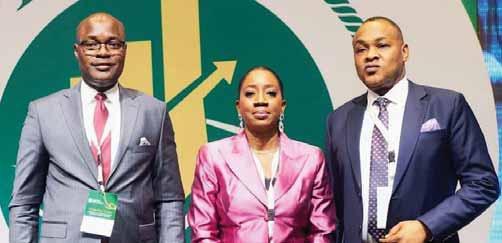
before.
Viewers can also meet the Super Duper Bunny League, the fearless team of bunny heroes saving the world one wild mission at a time!
Whether they are battling sweet-toothed space pirates or fiery lava monsters, these bunnies always bring the action (and plenty of laughs).
“The Get ready for the ultimate dose of live-action excitement! From family undercover missions to teenage superheroes saving the day, there is no shortage of thrills. The Thundermans: Undercover, Henry Danger, and Danger Force bring all the action and laughs you love,” it said.
Kayode Tokede
Caverton Offshore Support Group Plc, yesterday announced its unaudited financial results for the half year (H1) ended June 30, 2025, showcasing a robust financial recovery with a profit before tax of N2.09 billion, up from a N3.7billion loss in the same period last year.
The group’s profit moved from a loss of N3.7 billion in
H1 2024 to N2.08 billion in H1 2025 to reversed Earning Per Share (EPS) from a loss of -0.54 kobo reported in H1 2024 to 0.62 kobo in H1 2025.
A further review of the financial performance of the group showed that revenue stood at N16.1 billion as against N18.8 billion in H1 2024 as Gross Profit was N9.01 billion in H1 2025 compared with N2.85 billion in H1 2024.
Profitability ratios showed that Gross Margin stood at 55.9 per cent in the period under review as against 15.2 per cent in the corresponding period of 2024.
Responding, the Group Chief Executive Officer Mr. Bode Makanjuola in a statement emphasized the management’s commitment to sustainable growth and diversification. He highlighted efforts to mitigate foreign currency risks through
reduced foreign liabilities and rigorous cost controls across all operations. Makanjuola expressed confidence in the company’s prospects, noting the positive momentum driven by ongoing government reforms and macroeconomic stabilization, which have contributed to improved profitability.
He further underscored Caverton’s strategic collaborations, including the recent partnership
with Explomar, as vital to future growth.
“Our collaboration with Explomar marks a significant milestone in our commitment to innovation and sustainability. Developing Nigeria’s first all-electric ferry exemplifies our dedication to environmentally responsible solutions that will revolutionize maritime transportation.
“This project, along with other vessel design initiatives,
positions Caverton as a leader in green maritime technology in Africa,” he added . In line with its strategic growth agenda, Nigeria’s leading provider of marine, aviation, and logistics services is actively repositioning its marine and aviation divisions.
Notably, the Group has entered into a groundbreaking strategic partnership with Chinese electric marine engine manufacturer Explomar.

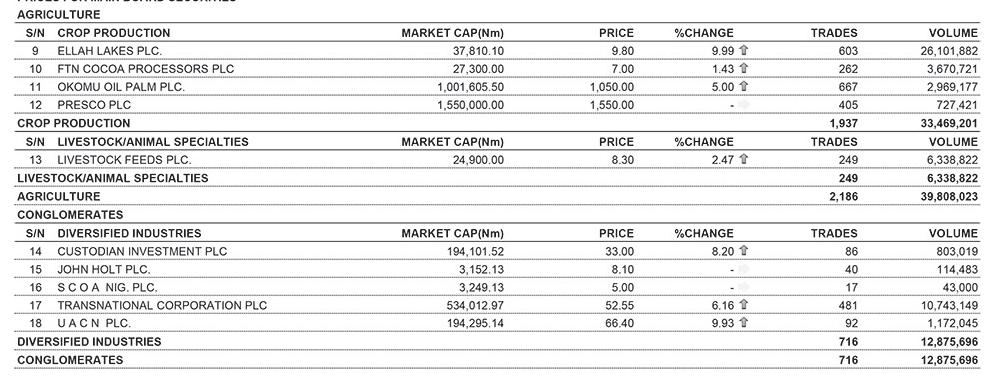



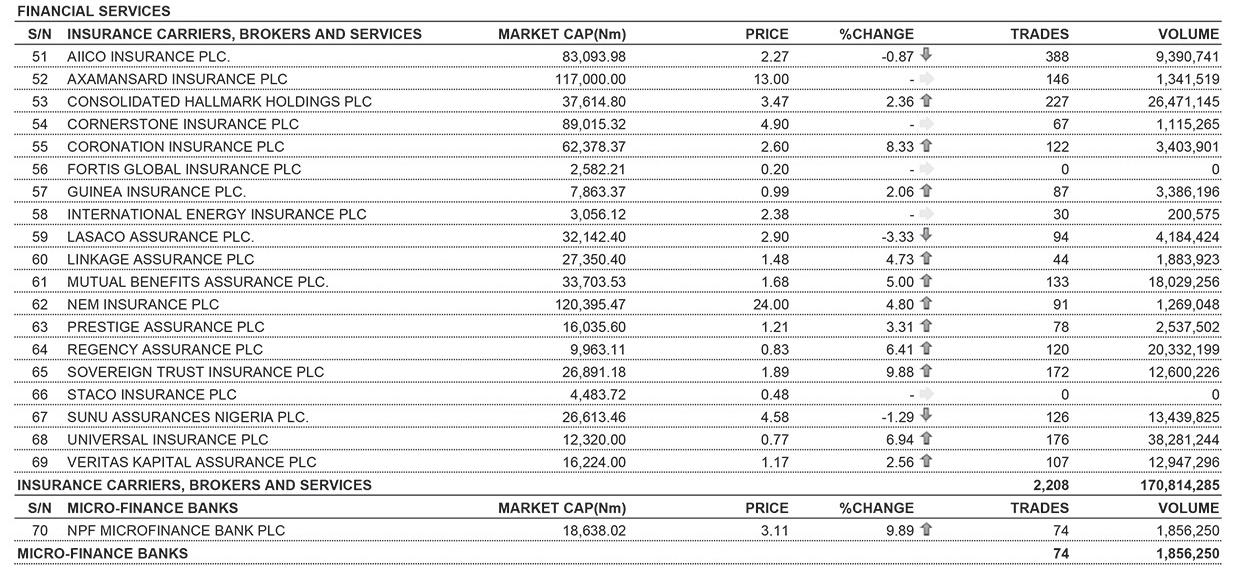


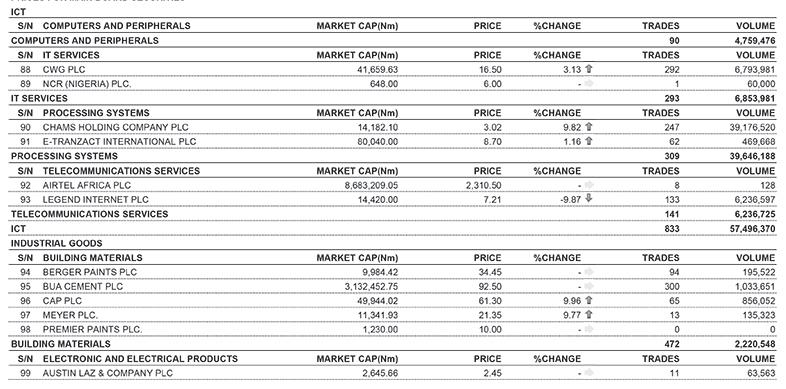
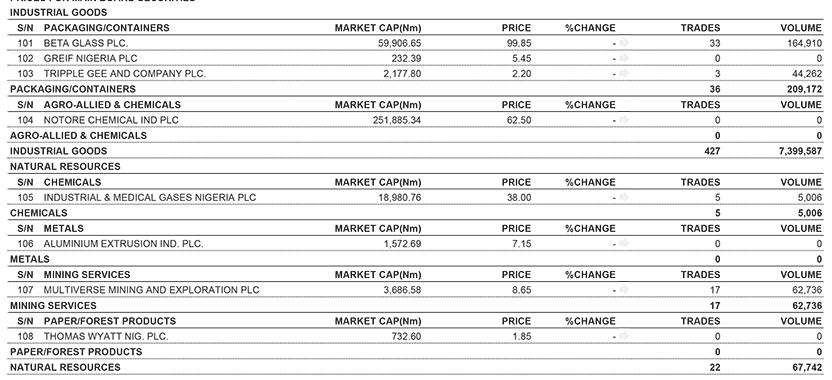
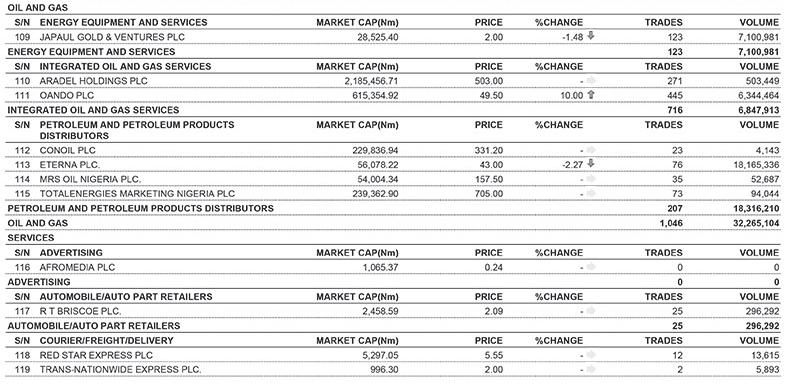
With deep respect for due process, focus on civility, and adherence to intelligence-driven operations, the new Director General of the Department of State Services (DSS), Oluwatosin Ajayi, is returning the agency to its professional roots, write Emmanuel Addeh and Linus Aleke
When Oluwatosin Ajayi assumed office as Director General of the Department of State Services (DSS) in August 2024, a few Nigerians outside intelligence circles probably recognised his name. But within the security community, Ajayi’s reputation was already firmly established.
After more than three decades of fieldwork across multiple state commands, he had earned himself a quiet reputation for being diligent, professional, and fiercely loyal to due process rather than to brute force, especially when it is not necessary.
Aware that he was brought in to make necessary but difficult changes, almost immediately, the new spy chief’s vision began to take shape. Not one for public spectacle, the reforms were subtle, strategic, and, most importantly, grounded in a clear philosophy that intelligence work must be silent, efficient, and lawful.
Having officially assumed duty on August 28, 2024, Ajayi had risen through the ranks of the DSS to the pinnacle of his career, having served as State Director in various states, including Bauchi, Enugu, Bayelsa, Rivers, and Kogi.
A well grounded professional, it is widely believed that his style of leadership not only mirrors his academic background in law and international relations, but also reflects his over three decades of experience on the field as an intelligence officer.
In a landscape where law enforcement agencies are often accused of overreach, the DSS under Ajayi has begun to chart a different course. Inside the agency, Ajayi began reinforcing internal compliance with legal standards, updated interrogation protocols, and re-emphasised the right of detainees.
In contrast to past years where prolonged detentions without trial drew public outrage, arrests under Ajayi became more aligned with court processes. Ajayi believed that for the DSS to regain public trust, it had to respect the same legal framework it was sworn to protect.
Not given to seeking the limelight and described by colleagues as calm, highly analytical, and inclusive, his approach has resonated widely within the agency, and results have already begun to show.
In fact, immediately he was announced as the next head of the service, DSS officers, once weighed down by internal rivalries and poor morale, responded enthusiastically to his appointment. In videos that later went viral, operatives were seen dancing in their locations, an uncommon display of joy in an agency known for its rigid culture. This wasn’t just about a new boss. It was about the hope of better leadership.
Ajayi leads by example. He has made it clear that misconduct will no longer be tolerated. Internal discipline has improved, and senior officers report a noticeable increase in professionalism across command structures.
One of Ajayi’s more understated successes has been his effort to rebuild working relationships between the DSS and other security agencies. Under previous leadership, inter-agency rivalry often led to duplication of duties and turf wars.
Ajayi quickly moved to build bridges. He strengthened ties with the Office of the National Security Adviser (ONSA), coordinated operations with military and police commands, and improved intelligence-sharing protocols. Since then, results have been smoother, joint missions are now more coordinated.
By reducing operational overlap, eliminating unnecessary power struggles, and fostering a new culture of mutual respect among Nigeria’s hitherto fragmented security services, the results have been phenomenal, even though a lot still needs to be done.
For starters, Ajayi’s DSS doesn’t storm courtrooms. It doesn’t disregard court orders, at least none in the public space. And it no longer deploys to scenes just to intimidate. This shift appears deliberate. Under his watch, the agency has turned away from public-facing shows of force and instead embraced

measured, legally justified action. This approach has helped reduce public tension.
Interestingly, providing timely and actionable intelligence to nip security threats in the bud is a cornerstone of the DSS’s strategy. This means that the DSS can preempt terrorist attacks, disrupt criminal networks, and maintain public safety, while operating within the bounds of the law.
This proactive approach, underpinned by a commitment to the rule of law makes the DSS a compelling example of how law enforcement agencies can effectively balance security objectives with human rights and the rule of law.
This new dawn of excellent covert operations, has provided timely and actionable intelligence that has continuously under Ajayi helped the military and other security agencies in the country to frustrate the activities of terrorists, bandits, kidnappers, marauding invaders, secessionist agitators, transnational organised criminal syndicates, among others.
Beyond doing the core job which he was picked for, Ajayi continues to right the wrongs done by some officials of the DSS in the course of their work. Just recently, precisely on Saturday, 19 July 2025, the Director General of the DSS, Ajayi demonstrated his avowed respect for human rights by releasing a suspect, Abdulyakini Salisu, who had been in the DSS custody since 2022.
This gesture came two months after paying N20 million as compensation to another Jos-based businessman who was unintentionally shot as a result of mistaken identity during an operation in 2016. The release of Salisu brought to 12 the number of suspects released in July alone.
Unlike in the past, the DSS also tendered an apology to Salisu, while the Director General directed that he be paid N10 million as initial compensation, with additional support underway. The gesture, a source said, was a form of remorse by the Service to the victim, who, before his arrest, operated a stone quarry on the Zuba–Kaduna expressway.
The Intelligence Czar also directed that Salisu, like other former detainees released in the past, should enjoy free medical services at the DSS hospital for as long as he wishes. Salisu is the third celebrated case of several other suspects set free by the DSS since Ajayi assumed office.
On July 1, 2025, Ajayi ordered the payment of an undisclosed amount as compensation to 11 suspects, amongst whom were Mohammed Adamu, Adamu Abubakar, Mohammed Bindi, and Baba Kura Mallam, who were arrested in Osun state on terrorism-related charges.
To ensure that innocent citizens are not unjustly hounded in its detention facility on trumped-up charges without verifiable evidence, the DG directed that all operatives involved in the embarrassing arrests of the released suspects should be made to face internal disciplinary action.
Besides, the case of a 400-level Computer Science student at Modibbo Adama University, Yola, Mohammed Ciroma Jr, was also reviewed, and the DG ordered the Service to assist in Ciroma’s reinstatement to his school, with a promise of a full scholarship to be funded by the Service.
“When the committee set up by the DG drew his attention to the cases of the artisans and the Jos-based businessman, among many other cases, he ordered the committee to expedite action on their cases, which led to the quick resolution of their cases from among the several cases before the committee.
“The DG gave a clear directive that he wouldn’t mind the source of any information bordering on the plight of persons who were unjustly detained by the Service. In fact, he ordered his public relations department to update him on reports – no matter the source – on persons who may have been unjustly detained or unfairly treated by the DSS,” an insider said.
For those who have followed him closely, the nationalistic activities of the DSS boss did not come as a surprise. Ajayi, on assumption of office in August 2024, promised to reform the service to make it more covert and efficient while demonstrating utmost respect for human rights.
“The DG would always tell his officers that he is committed to President Bola Tinubu’s charge that under his administration, no citizen should be made to suffer any human rights abuse. It is noteworthy that the DSS DG has not claimed that there were no abuses in the past. Of course, during operations, security agencies the world over make mistakes.
“What the DG has done is to say that we are fallible because we are humans. But, whenever we realise our mistakes, we shall be man enough to own up, apologise, and, where possible, pay compensation,” another source stressed.
Without doubt, most success stories of the Armed Forces of Nigeria and other security agencies across all theatres of operations in recent times have not been unconnected with the actionable intelligence provided by the DSS under the leadership of Ajayi. For instance, just last week, troops of the Nigerian Army, in collaboration with Hybrid Forces, backed by intelligence support from the DSS, eliminated no fewer than 45 bandits terrorising communities in Shiroro Local Government Area of Niger State. Security sources said the bandits were killed in the Iburu community during an intelligence-led ambush operation. The sources further disclosed that the DSS, on intercepting intelligence that the terrorists, riding several motorcycles, were advancing to attack Iburu and neighbouring villages, quickly alerted soldiers on standby. According to the sources, a gunfight ensued, with the troops killing at least 45 terrorists. The sources quoted the villagers as saying that they counted at least 40 dead bodies believed to be those of the bandits. They also counted dozens of the bandits’ motorcycles, which were destroyed during the gunfight.
Also, on July 22, the Catholic Bishop of Maiduguri Diocese, John Bakeni, praised the DSS and the Nigerian Army for successfully rescuing Reverend Father Alphonsus Afina, who was kidnapped on June 1 by Boko Haram insurgents. Abducted alongside the priest were an unspecified number of fellow travellers on the Liman Kara-Gwoza road in Gwoza LGA of Borno State.
Bishop Bakeni, who doubles as the chairman of the Christian Association of Nigeria (CAN) in Borno State, applauded the gallantry and intelligence of the DSS operatives who rescued the 11 persons unhurt.
In the same vein, DSS operatives in Zamfara state, also with support from troops of the Nigerian Army, rescued 32 kidnap victims in Shinkafi LGA of the state. Security sources disclosed that the rescued victims included 27 women and five young boys, who had spent between two and four months in captivity.
Ajayi’s work at the organisation hasn’t gone unnoticed. Indeed, the man has continued to receive widespread commendation for his leadership, operational efficiency, and commitment to human rights.
Civil society organizations, including the Center for Human Rights and Accountability Network (CHRAN) and Civil–Military Cooperation (CIMICO), have lauded the DSS under his watch for preempting major kidnappings, arresting dangerous criminal elements, and recovering large quantities of ammunition across the country.
Recently, CHRAN particularly praised the Service for foiling a planned kidnap during the Eid El-Kabir festivities in Akwa Ibom, describing the DSS’ arrest of sea pirate gang leaders as a major breakthrough. Similarly, CIMICO applauded the DSS for arresting gunrunners and kidnappers in coordinated operations spanning Abuja, Nasarawa, Ebonyi, and Akwa Ibom, highlighting the prevention of potentially disastrous attacks.
Beyond operational feats, Ajayi has won public praise for upholding justice through the release of wrongly detained individuals and compensation of victims.
Besides, Ajayi’s transparent posture and commitment to human rights reforms, such as banning public display of arms and setting up a review panel for inherited cases are being seen as signals of a more humane and professional DSS under his leadership.
In a country where security institutions have a generally bad reputation, Ajayi’s leadership at the DSS reflects a quiet but firm departure from the past. His reforms firmly grounded in intelligence-led operations, institutional accountability, and a rare openness to redress have not only disrupted criminal networks but also rekindled public confidence in the agency. By matching operational success and brutal efficiency with a commitment to human rights, Ajayi is redefining what it means to lead a modern intelligence service in a democracy.

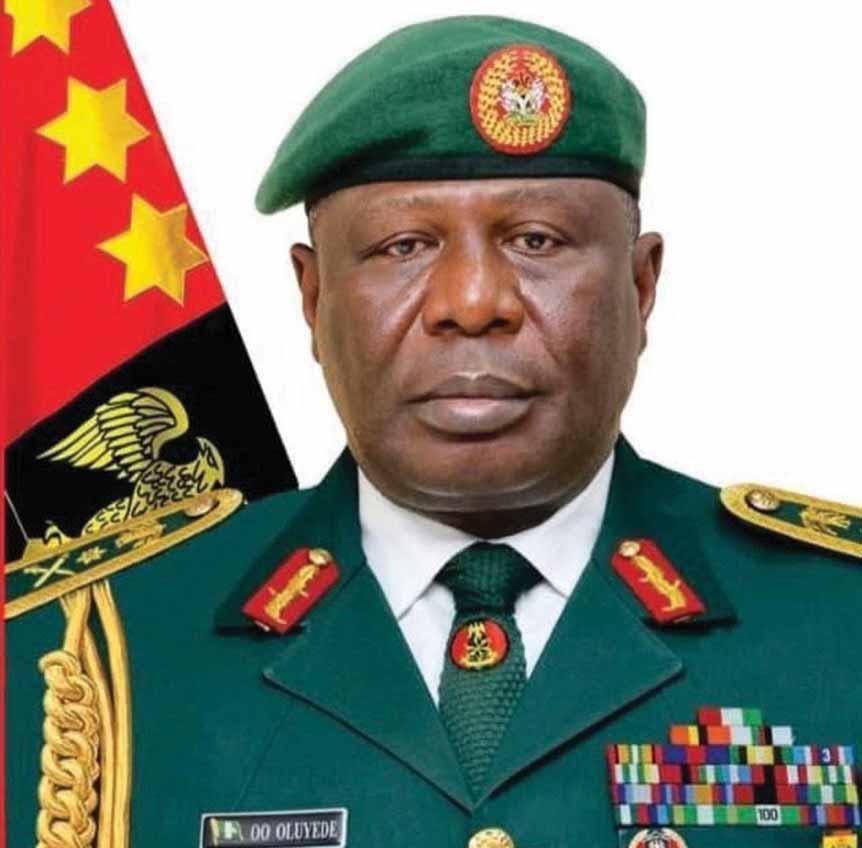

Lieutenant General Olufemi Olatubosun Oluyede, the 24th Chief of Army Staff (COAS), is a seasoned military officer whose career in the Nigerian Army spans over three decades. A member of the 39th Regular Course, he was commissioned as a second lieutenant in 1992 (with effect from 1987) and rose to the rank of Major General by September 2020. Prior to his appointment on December 9, 2024 (after being in acting capacity on September 2024) as COAS, he served as the 56th Commander of the Nigerian Army Infantry Corps in Jaji, Kaduna. Renowned for his operational leadership, Lt. Gen. Oluyede has held key command and staff roles, including deployments in Liberia under ECOMOG, Operation HARMONY IV in Bakassi, and as Commander of the 27 Task Force Brigade under Operation HADIN KAI in the North East. A recipient of numerous honours, including the Corps Medal of Honour, Grand Service Star, and Chief of Army Staff Commendation Award, he is a graduate of the National Institute and holds the ‘Passed Staff Course’ designation. At the recently commemorated 162nd anniversary of the Nigerian Army in Kaduna, the COAS, in an exclusive media chat with executives, addressed wide-ranging questions from the current security situation in theatres of operation to welfare of officers and men, recruitment challenges, and new strategies for tackling insurgency and terrorism. He also spoke on the issue of local intelligence support in the Northeast, strengthening interagency collaboration and partnerships with neighbouring countries, and the army’s expanding role in internal security and emergency response. Most importantly, the COAS reflected on how the Nigerian Army is preparing for the future of warfare particularly in response to shifting internal threats and evolving global security dynamics. Chiemelie Ezeobi writes that his command philosophy anchored on consolidating the transformation of
Can you give us a sense of the security situation across the operation theatres?
The fact is that we are generally facing challenging security issues, which is why we have threats. That said, it is obvious that our efforts, in collaboration with other security agencies, have helped to meet many of these challenges. We have recorded successes in some theatres, even though there are still challenges in a few others. By and large, things are getting better.
Nigeria has a population of over 220 million, while the U.S. has about 340 million. Yet the U.S. has over 2.1 million military personnel with over 1.2 million active duty officers. According to AI, Nigeria has 135,000 military personnel. With our security challenges, shouldn’t we hire more soldiers quickly to boost numbers on the ground?
For the Nigerian Army, increasing personnel is a priority, and we’ve been recruiting yearly. We bring in about 12,000 across all arms and around 400 officers annually, making about 12,400 recruits per year. This year, we plan to raise that to 14,000. However, this comes with its own challenges. Over 40 per cent of the army currently lacks accommodation. For example, the training depot in Zaria was built for about 500 personnel, later upgraded for 1,000. Now, over 6,000 recruits are being trained there—an overstretched capacity. We’re addressing this by establishing a new depot in Oshogbo. Going forward, new recruits will be split between Zaria and Oshogbo. We also plan to open another depot in the South for better training quality.
I know the Army has been trying to raise recruitment awareness in the Southeast. How successful has that been? What are the numbers like?
We’ve been trying, particularly in the Southeast. But the population there is generally very industrious and business-oriented. Many prefer pursuing financial ventures. That’s the honest reality. Interestingly, we see more women enrolling from the Southeast than men. We’re continuing our awareness campaigns, but it remains a challenge.
What new approach are you bringing to the fight against insurgency and terrorism, especially as we mark 15 years of this battle since 2009? Also, there’s talk of bringing back private military contractors. Is this true?
I’m glad you raised the importance of collective effort in fighting insurgency. Security is everyone’s business. In the Northeast, for example, the insurgents are from the local communities. These communities often provide logistical support. Until they decide to stop supporting the insurgents, progress will be limited. Regarding private military contractors, it’s not a new concept. Major powers like Russia and the U.S. have used them. We’re considering bringing in some elements to support operations. It’s a decision that is being considered carefully.
What progress has been made in winning the hearts and minds of locals in the Northeast to support intelligence sharing and military operations?
It could be better (…sic). When I commanded the 7th Task Force Brigade as a Brigadier

General, we could get real-time intelligence. But now, the insurgency has evolved into a war economy. People are profiting from the conflict—operating warehouses and illicit markets. The criminals have become smarter and more discreet. Still, the intelligence community is working hard. We’re also bringing in enablers to enhance our intelligence-gathering capabilities.
How have you improved interagency collaboration and cooperation with international partners, especially our neighbours in the West African region?
Interagency collaboration is robust. We receive timely intelligence from the DSS, Police, and other agencies. Internationally, we work closely with partners. For instance, in Mallam Fatori near the Chad border, the Nigerian Air Force supports operations when needed because threats there could affect parts of Niger. Even when some partners lack an air force, we share intelligence and collaborate effectively.
Beyond your external defence role, what role has the Army played in internal security and emergency responses?
The Army has rapid response units across all formations to support emergencies. For example, during the last major flooding in Nigeria, our personnel were deployed massively to evacuate and support affected communities. There’s an established structure for this within the Army.
In the Northeast, the enemy is now using drones and armourpiercing weapons. What have you done differently to achieve some stability in areas like Baga?
Warfare means you win some, you lose some. Losses disturb us too. But to stabilise the area, I restructured the command system and replaced most of the commanders. We improved soldiers’ welfare, including increasing their feeding allowance from N1,500 to 3,000 daily. We injected more combat enablers and installed surveillance cameras to boost situational awareness. We also initiated more proactive operations to regain freedom of action. As for a certain notorious bandit in the Northwest, efforts are ongoing. Some of his key commanders have been taken out. It’s a matter of time before we get him too.
What strategy is the Army using to engage the media, especially traditional media, to counter misinformation and shape narratives positively?
I believe security is everyone’s business. So, the media should naturally be on the side of national security. We expect media stakeholders to support us and promote the right narratives. It’s a shared responsibility, not necessarily something that requires formal engagement all the time. Just a sense of patriotic duty.
We have seen security improvements in the South East and appreciate your men’s efforts. But beyond equipment, human capacity matters, what are you doing to improve the welfare of your men? Thank you for the kind words. For us, the best form of welfare for a soldier is training. No soldier can be effective without it. That’s why we are restructuring our training system and depots. We’re also upgrading our training infrastructure, getting better instructors, and partnering international training bodies. Beyond training, we’ve initiated several welfare schemes for soldiers, and I always tell them—my greatest concern is ensuring they are well-trained and well-catered for.
What kinds of income or allowances accrue to soldiers, especially those with special roles or training?
Today, I’d like to talk about income accruable to soldiers. For example, special forces personnel receive special allowances. If you undergo a language course, you’re also entitled to a different kind of allowance. Instructors are also paid a separate allowance. When you aggregate all of these, you’ll find that a well-engaged soldier is significantly motivated in terms of remuneration. We also have an affordable housing scheme where soldiers can get accommodation for as low as N7.5 to N8.5 million. We develop these housing units by allocating land and bringing in partners to make construction as affordable as possible. Our aim is for soldiers to own their own homes even before retirement. Additionally, we run a zero-interest loan scheme. Soldiers can access these loans but we also discourage taking them unnecessarily unless there’s a clear need. These schemes are part of our broader welfare efforts to ensure that morale remains high.
Since you invoked the theme “Army Towards a Better Society,” how is the Nigerian Army preparing for the future of warfare, especially with today’s shifting security dynamics more internal than external and evolving global threats? Thank you very much for that thoughtful question. You’re right to use the word evolve. The challenges we had in December are not the same as what we’re facing now. We are actively preparing for the future. Our training programmes are being restructured to be forward-looking. We’re integrating modern warfare techniques, including technology and innovation. We’re also investing in Research and Development (R&D) to ensure that we’re not just reactive, but proactive. The Nigerian Army is adapting, and we’re determined to remain a relevant and capable force, both now and into the future.

In a time when public trust is scarce and legacies are often contested, the name Dr. Chris Chigoziri Asoluka reflects the picture of a man who lived with quiet dignity, spoke with reason, and acted with unwavering principle. He was not just a policy expert or former legislator; he was a steady presence in the nation’s civic life, a builder of bridges across regions, and a mentor to many, who now stand on the platforms he helped raise. Although laid to Mother Earth already, Chiemelie Ezeobi, who was at his Service of Songs and Night of Tributes, writes that from the stoic grief of his family to the teary moments from friends, associates and mentees, the evening unfolded as a moving testimony to a man whose quiet strength had touched many lives, an affirmation that though gone, Dr. Asoluka’s legacy remains deeply etched in the hearts of those he influenced and inspired
To those who knew him, Dr. Chris Chigoziri Asoluka was more than a scholar, public servant or federal legislator. He was a man of quiet dignity, extraordinary intellect, and unwavering integrity. Whether in the halls of power or across community gatherings, his presence was steady, calm, and purposeful. He carried authority not through volume but through clarity of thought and consistency of values.
He was the kind of man who left behind not just a résumé, but a reputation that spoke of wisdom, humility, loyalty, and a profound belief in justice and equity. His impact ran deep: in governance, where he shaped national policies; in academia, where he inspired rigorous thinking; and in community, where he mentored and empowered.
A true patriot and intellectual, Dr. Asoluka never courted noise but earned the respect of peers and strangers alike.
His death on May 10, 2025, at the age of 70, in Owerri, Imo State, marked the end of an era for many in Nigeria’s civic, political, and policy circles. Yet it also sparked a celebration of a life well lived and a legacy that will echo far beyond the decades he spent on earth.
The family’s official statement captured the spirit of the man: “Surrounded by love and held in grace, Daddy transitioned from this world just before midnight on Friday, May 9, 2025 with the calm dignity that defined his life… His earthly absence is profound, but his spirit remains in every lesson, every memory, every story told, and every life shaped by his presence.”
The Service of Songs and Night of Tributes took place on Thursday, July 17th at Harbour Point, Victoria Island, Lagos, while the Commendation Service was held on Friday, July 18th at Our Saviour’s Church, Tafawa Balewa Square, Lagos.
On Wednesday, July 23rd, a Service of Songs and Wake Keep was held at the Chris Asoluka Country Home in Ihiagwa, Owerri while the Obsequies took place on Thursday, July 24th at St. John’s Anglican Church, Ihiagwa, Owerri, followed by the interment at the Chris Asoluka Country Home in Ihiagwa, Owerri.
On Friday, July 25th, a Day of Honour was observed by Nde Owerre at the Chris Asoluka Country Home, Ihiagwa, Owerri and finally, the Family Thanksgiving and Outing Service was held on Sunday, July 27th at St. John’s Anglican Church, Ihiagwa, Owerri.
A Service of Reflection: Hymns and Scripture at the Tribute of Songs
At the Service of Songs and Night of Tribute in honour of Dr. Asoluka held at Habour Point, Lagos, Archdeacon Uche Anya-Chinedu, in his sermon, enjoined the bereaved family and friends to give thanks to God in all situations, quoting 1 Thessalonians 5:18, just as he reminded everyone present that being alive is by God’s grace, even though he acknowledged it may be hard to give thanks while grieving.
He quoted Psalm 90:10, noting that the deceased passed at 70 years, an accomplished man according to the mandate in the verse. He encouraged the family to take solace in the hope of resurrection and urged all present to live ready for eternity.
The officiating clergies included Revd. Uchenna Nwanonyoba, Revd. Akintunde Idowu, Revd. Canon Asoliye Douglas-West, and Ven. Bola Osinupebi. The service opened with the stirring hymn, Through All the Changing Scenes of Life, and set a reflective tone for the evening.
Scripture readings were taken by Dr. Asoluka’s children. Somachi read from Ecclesiastes 3:1–15, reminding all of the seasons of life. Jamachi followed with Revelation 21:1–8, offering hope of a new heaven and a new earth and Lemachi read 1 Thessalonians 4:13–18.
The musical selections for the evening included The Old Rugged Cross, Guide Me, O Thou Great Redeemer, Pass Me Not, O Gentle Saviour, and Abide with Me. Mr. Theophilus Okang led as director of music, supported by assistant organists Ademola Adefila and Kola Fatoba. Vergers Mr. Tochukwu Nzekwesi and Mr. Olanrewaju Hotonu supported the service, along with Church Wardens Engr. Chuma Ngini and Dr. ’Segun Fadiran.
“He Taught Us What Truly Matters”: Sons Remember a Father, Mentor, and Moral Compass
In their tributes, Jamachi and Lemachi Chris-

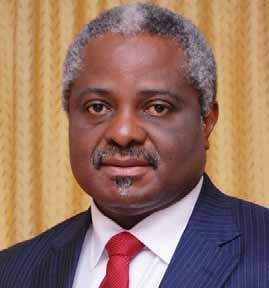
Asoluka painted a portrait of a man whose influence shaped their values, strengthened their resilience, and filled their lives with love, wisdom, and purpose.
Both sons, while acknowle dging the ways in which their father lived out his values through his love for family, his integrity, his humility, and his unwavering commitment to doing good, they noted that he was a man who gave different parts of himself to each child strength, calm, intellect, humour, compassion and who always placed love, especially for their mother, at the heart of everything.
Jamachi, who lives in Canada with his wife Jane and their son, reflected on how Dr. Asoluka stepped into a fatherly role for Jane, who had lost her own father at a young age. He said during a visit to Canada, they grew close, and she would often describe him as her favourite person. He also shared how his father supported him through the challenges of relocating abroad by offering steady encouragement during difficult nights as a new immigrant. “His advice about contentment, quiet observation, and finding purpose through blessing others became a foundation that helped me adapt, thrive, and build a life of meaning in a new country,” he added.
Lemachi, on his part, spoke of a transition in their relationship from the traditional father-son dynamic to a deep friendship between equals. He recalled bonding with his father over boxing and fo otball, despite supporting rival clubs, often debating match results, even in his final days. He said their connection matured into shared values and mutual respect. He said Okwuruoha, as he fondly called his father,
taught him that success is not measured by possessions, but by the lives one impacts.
A Daughter’s Eternal Bond with Her Father
Stoic in the face of such grief, Somachi Chris-Asoluka, the only daughter of the family and an Amazon in her own right, during her tribute described his passing as the most difficult experience of her life. More than a parent,
Somachi, who is the CEO Tony Elumelu Foundation, said he was her best friend, confidant, and soulmate. She recounted sensing something was wrong weeks before and described how she immediately put her life on hold to be by his side.
In his final days, Somachi moved into his hospital room, becoming his “executive medical assistant” a role he cherished and proudly announced to the doctors. She said he often expressed his gratitude, but she told him it was the honour of her life, adding that they spent those days together, talking, watching movies, and sharing a bond that transcended the typical father-daughter relationship.
Somachi spoke of how her father gave her all the love, validation, and encouragement she could ever need with his daily presence, unwavering support, and moral strength shaping her life and giving her unshakable confidence.
She remembered him as a man of deep integrity known in political circles as “Mr. Clean”, who never compromised his values. She opined that though she could no longer see him in his trademark face cap and jeans, she still felt his presence, his counsel, and his inspiration all around her. She vowed to uphold his legacy, promising that the name Chris Asoluka (Okwuruoha) would never be forgotten. “It is never a good night,” she concluded, “but good morning.”
“I Wore His Name as a Badge”: A Wife’s Pride
With quiet strength that amazed all, the widow, Mrs. Nneka Chris Asoluka, spoke of her choice to honour her husband’s life rather than mourn him in the traditional way.
She said: “We are celebrating my husband. He was a great man. I wore his name as a badge.” She recalled how he disliked the idea of corpses flown home, believing it was better to “die where you want to be buried” and that, she noted, was exactly what happened.
She spoke of the freedom he gave her in marriage and urged men to take a clue from her late husband: “Make your wives independent, not dependent at every step. That’s what keeps me standing. Sometimes it feels like he just travelled. Maybe that’s God preparing me. I sleep well, and I am at peace. It doesn’t mean I don’t miss him,I do. But I had what many only dream of, and I thank God.”
Condolences
At the Night of Tribute held on July 17, 2025 at Harbour Point in Lagos, political leaders,
business executives, public intellectuals, and mentees joined voices in honouring Dr. Asoluka’s legacy.
In his speech, Mr. Peter Obi, the Labour Party’s 2023 presidential candidate, said: “Look at all the good things being said about your father. It is not easy in Nigeria today to say good things about people. If God is looking for bad people, Nigeria has a large crop of them. But sometimes, He takes the good ones so that we can learn our lessons.”
Mr. Tony Elumelu, Chairman of UBA, said he created a bond with the family that has lasted for years. Speaking to the family, he said the deceased would be missed for his wisdom and for being the fifth component of leadership that holds everything together. Former NIMASA DG, Dr. Dakuku Peterside, attributed much of his own success to Dr. Asoluka’s mentorship. “If I had any credit at NIMASA, 60 per cent belonged to Dr. Chris. He was among the few Nigerians who bridged expert knowledge and the marketplace.”
Former Lagos Speaker, Hon. Adeyemi Ikuforiji, described him as a man of intellect and moral authority. “Chris was not just a friend to me. He was a brother… They say in the grand theatre of public service, only a few can walk the stage with the rare combination of intellect, humility, and integrity.”
Prof. Pat Utomi shared decades of camaraderie: “We had set plans to revive the Centre for Applied Economics… Now, I don’t know what to do anymore, but we cannot question God.”
From mentees came echoes of guidance and generosity. Linus Okorie said, “He never held back knowledge. He shaped us to be better than we thought possible.”
A friend of 55 years, Ken Orji, expressed gratitude for crossing paths with the late Asoluka, who was a year ahead of him at Government Secondary School Owerri. He said they never had a misunderstanding, despite sometimes differing ideologies.
Another friend of 47 years, Sir Kayode Otitoju, who went down memory lane, especially as they both shared same birthday month, noted his rare ability to remain principled.
Other tributes came from his sister, Mrs. Nnenna Okpala, who said life was unpredictable; Mr. Okey Udeh, former Deputy Governor of Anambra State; Pastor Sylvester Macfoy; Mike Igbokwe (SAN); Chief Chike Madueke of Aja Ikenga; Former Minister of Interior, Captain Emmanuel Ihenacho, Executive Chairman Integrated Oil and Gas; Chief Martin Agbaso of Ohaneze Ndi Igbo; Major General Obi Umahi (Rtd), President General Ndigbo Lagos; Emeka Nnadi; and Hamzat Yakubu-Wanka, whose earliest years were nurtured by the deceased.
Though Dr. Chris Asoluka may no longer be present, it was obvious that his passing has not dimmed the powerful legacy he left behind. In every sphere he touched, through his selfless service, quiet humility, and unwavering strength, he set an enduring example that continues to resonate as his life remains a guiding light for all who value integrity and purpose in public and private service.
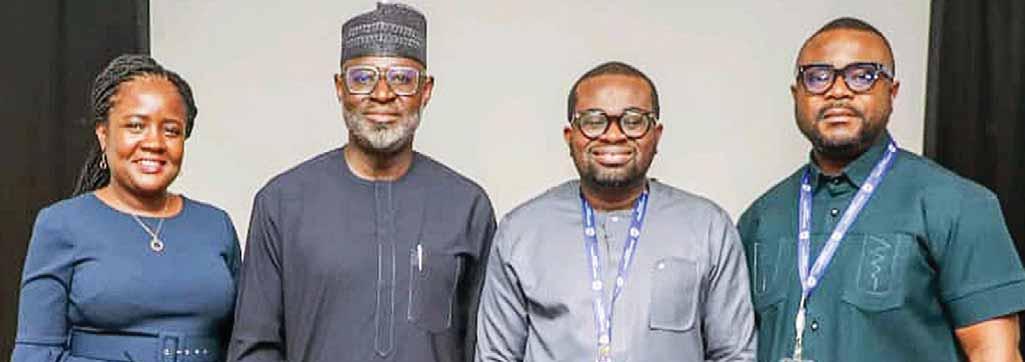
The United States. Centres for Disease Control and Prevention (US-CDC) has said that Nigeria is witnessing significant progress in the screening, detection and treatment of TB among the people living with HIV across the country.
The Centre said that of the 467,000 new TB cases reported in Nigeria in 2023, approximately 140,000 were among people living with HIV.
A Senior Programme Specialist at the US-CDC in Nigeria, Dr. Flora Nwagagbo, in her presentation at a
Media Roundtable in Abuja titled:
“Expanding the use of portable X-ray machines to improve tuberculosis diagnosis among PLHIV in Nigeria” said that Nigeria is currently making significant progress in screening for TB in people living with HIV across the country
She said the US-CDC is supporting the federal government in expanding the use of AI-enabled Portable Digital X-ray machines for the early detection of Tuberculosis, especially among people living with HIV.
She the intervention is helping Nigeria to expand the use of portable
x-ray machines with artificial intelligence (AI) to improve screening for TB in people living with HIV.
“Systematic screening is an essential first step in TB diagnosis and treatment in eligible populations.
“For instance, in the area of early detection of TB and the start of treatment, the equipment can improve health outcomes and prevent severe complications and death,” she said. According to Nwagagbo, screening is being carried out on people who are at higher risk of TB.
She added that screening may be conducted using portable chest
X-ray with artificial intelligence (AI), or a recommended molecular rapid diagnostic tests, either alone or in combination.
“PDX machines are an effective tool for screening for TB, even when people do not show symptoms and can help diagnose TB in people living with HIV who face a unique diagnostic challenge with traditional TB tests because they may not have typical immune responses to the TB bacteria, making it harder to detect and diagnose,” she explained.
“AI-enabled x-ray for TB screening can supplement decision-making,
Oando Foundation, yesterday, inaugurated the Green Youth Upskilling Programme (GYUP) in an effort aimed at tackling youth unemployment, climate change and equipping young Nigerians with practical green skills to create pathways into Nigeria’s emerging circular economy.
Speaking at the launch in Lagos, Ms. Tonia Uduimoh, Head of Oando Foundation, explained the initiative is designed to equip a new generation of change makers with the tools, mindset and vision to lead Nigeria into a more sustainable future and driving climate action.
She cited a recent statistics saying that 12.5 per cent of Nigerian youth aged 15 to 24 are currently not in education, employment, or training, and the green economy is projected
to generate over two million jobs by 2030.
Selected from a pool of over 8,000 applicants, Uduimoh stated the first cohort of 25 participants tagged ‘Green Champions’, will undergo 9 months of intensive training in renewable energy, sustainable waste management, climate tech, and green enterprise development.
Participants will also receive mentorship and seed funding to launch climate-smart businesses and community-based projects.
“This program is not just about training,” Uduimoh said. “It’s about creating leaders of tomorrow who will protect the environment and drive inclusive economic growth.”
The GYUP, she added, is part of the foundation’s broader LEARNOVATE strategy, particularly its PLANET pillar, which focuses on climate-sensitive education and
skills development.
“Implemented in collaboration with the Nigeria Climate Innovation Center, the program is designed to be scalable and replicable across the country,” she stated, adding that the foundation, known for its commitment to improving basic education since 2011, is now expanding its reach to youth empowerment through sustainability-focused initiatives.
Uduimoh described the launch as the beginning of a greener, smarter, and more inclusive future for Nigeria, while appealing to the participants to embrace innovation, think entrepreneurially, and lead with purpose carrying forward the responsibility of creating jobs, protecting the environment and inspiring their peers.
In his remarks, the Chief Executive Officer of Nigeria Climate
Kasim Sumaina in Abuja
The Nigerian Airspace Management Agency (NAMA), Thursday carried out a simulation exercise at the Nnamdi Azikiwe International Airport (NAIA) in Abuja to test the country’s preparedness in responding to air emergencies.
NAMA said the exercise was conducted in line with International Civil Aviation Organization (ICAO) regulations and involved multiple agencies.
The Director of Air Traffic Services, represented by the Acting
General Manager of Search and Rescue, Mr. Agoro Abayomi commended the agencies for their collaboration and dedication to aviation safety.
He said: “The exercise aimed to test the level of readiness, strengthen inter-agency coordination, and evaluate response strategies in the event of an aircraft emergency.
“The Nigerian Airspace Management Agency (NAMA), in collaboration with our esteemed partners across multiple agencies, reaffirms that the safety of passengers, crew, and aircraft remains
paramount and non-negotiable.”
According to him, “As we are all aware, aviation is unforgiving of errors. For this reason, exercises such as this are designed to test our level of readiness, strengthen inter-agency coordination, and evaluate our response strategies in the event of an aircraft emergency.”
He noted: “our overarching goal is clear: to ensure that, should a real-life incident occur, we are fully prepared to respond swiftly, effectively, and in a coordinated manner that saves lives and minimizes damage.
Innovation Centre (NCIC), Bankole Oloruntoba, explained that the key obstacle preventing green startups and SMEs from thriving is the shortage of technical expertise, especially in operational and maintenance roles across renewable energy and circular economy value chains.
“We have worked with startups and emerging companies, and the bridge between managing and becoming a successful green business is the lack of technical skills. This project aims to fix that,” he stated.
The GYUP, he noted, is a strategic, demand-driven project designed to equip Nigerian youth with hands-on skills that are directly applicable to the labor market.
potentially improving on human reader performance Increase the usability of chest X-rays for screening where there is a scarcity of trained human readers or no human readers.
“It can reduce reader variability and produces consistent results, thus saving time and resources needed for resolution when conflicting interpretations are provided”.
Adedayo Akinwale in Abuja
A factional Chairman of the All Progressives Congress (APC) in Rivers State, Emeka Beke, has called on the National Chairman of the party, Prof. Nentawe Yilwatda to suspend the scheduled local government primaries in Rivers State led by another faction chaired by Chief Tony Okocha. He also asked that his Executive Committee should superintend the entire process being the committee duly recognised by law.
Beke, who was at the APC National secretariat, yesterday in Abuja to submit a petition, told newsmen that he remained the authentic Rivers State Chairman of the APC based on the earlier judgment.
He asked Yilwatda to use his “office and suspend the scheduled local government primaries of the APC, Rivers State led by Chief Tony Okocha Executive Committee and direct the Chief Emeka Beke led
Executive Committee to superintend the entire process, the Chief Emeka Beke led Executive Committee being the duly recognized by law.
“Also, we are aware of the decision of the National leadership of the All Progressives Congress extending the tenure of office of all elected State Executive Committees to December, 2025. We welcome the said decision.
“We wish to respectfully bring to your notice the judgment of the High Court of Rivers State, Port Harcourt Division, delivered by Hon Justice S.H. Aprioku, which affirmed the subsistence of the tenure of the Chief Emeka Beke led Executive Committee of APC, Rivers State and the judgment of Hon. Justice Obomanu of the High Court of Justice, Rivers State in Suit No. PHC/3859/CS/2024-Okwu Joebrown Ndike & Ors. v. All Progressives Congress & Anor. which invalidated the purported election of Chief Tony Okocha led executive committee of APC, Rivers State.
Governor Francis Nwifuru of Ebonyi State, former governor of Plateau and incumbent senator, Simon Lalong, and former speaker of the House of Representatives, Yakubu Dogara, are among eminent national political leaders who have expressed excitement at their nomination as potential icons of the Fourth Republic. Others include former deputy speaker of the House of Representatives and former governor of Imo State, Emeka Ihedioha, former governor of Ogun state and two-time senator, Ibikunle Amosun, former two-time member of the House from Abia State and incumbent member of the board of the North-east Development Commission (NEDC), Sam Onuigbo, and former representative and one-time Director-General of the Nigeria Maritime Administration
and Safety Agency (NIMASA), Dr. Dakuku Peterside.
In separate communications accepting their nominations and addressed to Oke Epia, founder of OrderPaper Nigeria and convener of the ICONS (Initiative for Celebrating Outstanding National Statespersons), they commended the recognition programme, especially the unprecedented legacy documentation of contributions of top political leaders, whose combined service in the legislative and executive branches of government have helped to shape democracy and governance in Nigeria since the commencement of the Fourth Republic in 1999.
While commending OrderPaper for the innovation of the recognition framework, Governor Nwifuru expressed “honour at being among
the people profiled for celebration as outstanding national statepersons under the Initiative for Celebrating Outstanding National Statepersons (ICONS).”
On his part, Sen. Lalong, who had previously served as Speaker of the Plateau State House of Assembly before his ascendancy to gubernatorial office and then Minister of Labour and Employment before heading to the senate, congratulated OrderPaper for the initiative. According to him, “the focus on the experience of FLEX individuals is very germane and important to the nation, especially at these challenging times. I fully support this initiative and will do my best in whatever capacity to ensure the success of this historical move.”
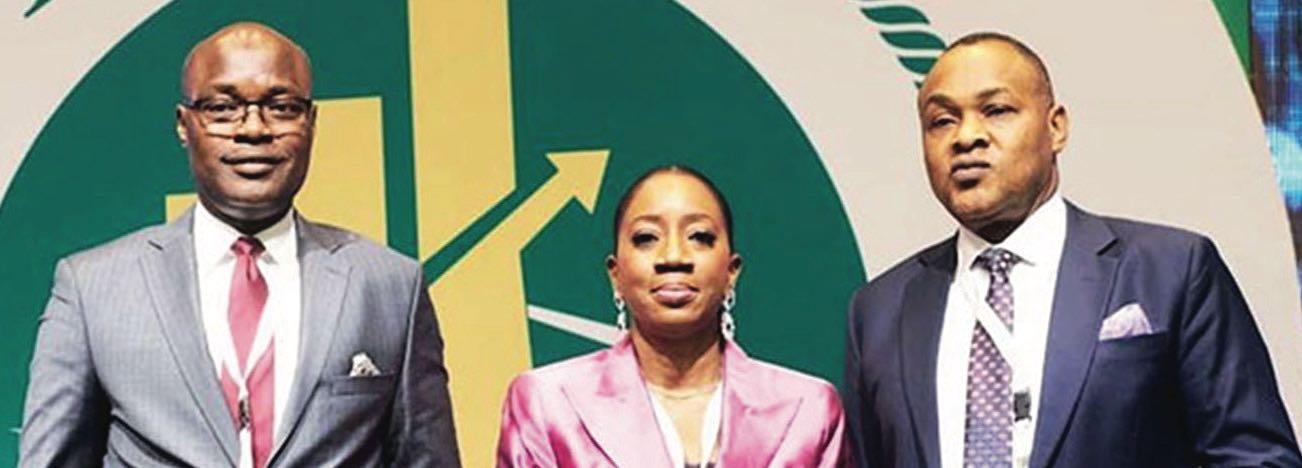
L-R: Executive Director, Risk Management, National Credit Guarantee Company (NCGC), Prof. Ezekiel Oseni; Executive Director, Strategy and Operations, NCGC,
Director/Chief Executive Officer, NCGC, Mr.
and
Linus Aleke
Abuja
The Nigerian Army yesterday said troops of 6 Brigade deployed to Sector 3 Operation Whirl Stroke (OPWS), in collaboration with operatives of the Department of State Services (DSS), burst a gunrunning syndicate during a coordinated security operation in Taraba State.
This was as 82 Division Nigerian Army denied the alleged burning of homes, looting of property, and harassment of innocent civilians in Umualumaku, Ehime-Mbano Local Government Area of Imo State, by its troops.
The Service also stated the trending allegations are not only false but a calculated attempt to sabotage the Division’s efforts to guarantee peace in the region.
A statement by the Acting Assistant Director of Army Public Relations, 6 Brigade Nigerian Army, Lieutenant Umar Muhammad, revealed the operation, which was carried out around Ambassador Roundabout in Wukari Local Government Area, led to the arrest of 29-year-old Bulyami Shuaib, a native of Belango Village in Karim Lamido Local Government Area of Taraba State.
The suspect, he said, is believed to be a key player in an arms trafficking syndicate operating within the region.
Muhammad said, “Items recovered from the suspect during
the operation include: 362 rounds of 7.62mm special ammunition, one round of 7.62mm NATO ammunition, N842,100, one black Jing Cheng rubber motorcycle, one Redmi Android phone, one itel phone, two silver rings, and one First Bank ATM card.
“The suspect is currently in custody and is cooperating with security agencies by providing valuable information to support ongoing investigations and future operations.”
Commending the troops for the successful operation, the Commander of 6 Brigade Nigerian Army/Sector 3 OPWS, Brigadier General Kingsley Chidiebere Uwa, reaffirmed the Nigerian Army’s unwavering commitment, in synergy with other security agencies, to rid Taraba State and its environs of criminal elements threatening the peace and safety of law-abiding citizens.
He further urged members of the public to continue supporting security agencies by providing timely and credible information that could aid in sustaining peace and security across the state.
In another development, the Nigerian Army said the claims that troops of 82 Division Nigerian Army (NA) engaged in the alleged burning of homes, looting of property, and harassment of harmless civilians in Umualumaku, Ehime-Mbano Local Government Area of Imo State, are not only false but also
a calculated attempt to sabotage the Division’s efforts.
A statement by the Acting Deputy Director of Army Public Relations, 82 Division Nigerian Army, Lieutenant Colonel Olabisi Ayeni, insisted that no soldier under
the Command was involved in such misconduct.
He stated that troops of 82 Division operate under strict adherence to the code of conduct in military operations as well as the rules of engagement, thereby ensuring best
practices.
Colonel Ayeni said, “The allegation appears to be the handiwork of criminal actors who, in their usual style, orchestrate such malicious reports to smear the image of the Division and undermine its
efforts to ensure a safe and secure environment within the area of operation.
He stressed that their objective is to sow seeds of discord in order to erode the public trust that the Division has diligently built.
Ferdinand Ekechukwu
Nigerian music legend Innocent Idibia popularly known as 2Baba has tied the knot with Natasha Osawaru in a traditional wedding ceremony held in Abuja. This comes months after confirming his separation from ex-wife, Annie Idibia.
The traditional marriage took place barely two months after 2Baba, who currently serves as Governor Hyacinth Alia of Benue State’s Technical Adviser on Entertainment and Community Outreach, introduced the lawmaker to the elders of his Idoma Kingdom.
Though the couple had earlier given hint of their wedding, images and videos from the event were shared on X (formerly Twitter) yesterday, revealing details of the private ceremony which held in Abuja on July 25 and attended by close family members.
In the photos and clips now trending online, the singer is seen dressed in traditional attire beside Natasha, who wore a red beaded wrapper and coral beads, suggesting a full Benin traditional wedding. Fans have refused to stay silent, as the viral footage and images,
taken during the ceremony, have sparked widespread speculation and drawn mixed reactions across various social media platforms.
The couple’s relationship first came to public attention after 2Baba confirmed his separation from his estranged wife, Annie Macaulay
Wife of the Governor of Abia State, Mrs. Priscilla Otti, has taken her protection of vulnerable groups further by supporting a bill that would guarantee the rehabilitation of people that survived rape, human trafficking, defilement and domestic violence.
Speaking at a public hearing on House Bill HAB. 25, held at the Abia State House of Assembly Complex, yesterday, Mrs. Otti made her stand known, throwing her full weight behind the move to give hope and new life to survivors.
The bill sponsored by Hon Rowland Dennis Chikwendu, who represents Isiala Ngwa South, seeks for the establishment of a
rehabilitation centre for survivors of rape, human trafficking, domestic violence, and defilement in Abia State.
It provides for creation of a dedicated facility that will provide survivors with comprehensive support services, including medical care, legal assistance, psychological counseling, and long-term rehabilitation.
The Abia First Lady described the bill as “timely and urgent”, saying that it would help in addressing the rising social challenges confronting young people, including drug abuse and sexual violence.
“This bill represents more than just policy; it is a statement of justice, a foundation for healing, and a promise of renewed hope,”
she said, adding, “I urge for its swift passage and full implementation”.
According to her, the rehabilitation centre, as proposed in the bill, represents a transformative initiative that would provide a safe space and restore hope to survivors.
She called for concerted efforts to guide young people and direct their steps towards living responsible and purposeful lives.
“We have a moral and collective duty to shield our young people and steer them toward lives of purpose and responsibility,” she said.
Mrs. Otti stated that her office, in collaboration with the Governor Alex Otti administration, has already put in place proactive measures for protection of vulnerable ones in the state.
Idibia, in January. He later proposed to the law maker in February 2025, and by April, the relationship had gained family endorsement following Natasha’s visit to 2Baba’s mother, Rose, who initially was not in support of it.
By John Shiklam in Kaduna
The Kaduna State Police Command said it has arrested a total of 456 suspected criminals within the month of July.
The police commissioner, Mohammed Rabiu, disclosed this at a press briefing on Thursday in Kaduna.
He said the suspects were arrested for various offences ranging from ranging from armed robbery, kidnapping, banditry, gun running, impersonation, illegal diversion of goods, and unlawful possession of firearms, amongst others.
Rabiu said the arrests were made
through coordinated intelligence, community partnership, and robust operational strategies.
He said of the 456 suspects, 382 were arrested for Phone snatching / Sara-Suka (Urban Thuggery); 17 for armed robbery and deadly motorcycle snatching, 25 for kidnapping, and one notorious impersonator who specialises in impersonating governors and top functionaries.
He added that 34 were arrested for illegal diversion of 9 trailers, 3 trucks of fertilizers, 2 trucks of sugar, 3 trucks of flour, and two trucks of maize while 35 other were arrested for property crimes
The police commissioner said several firearms and ammunitions were recovered from the suspects. He said the weapons recovered from the suspects include, six AK47 rifles English type; 12 locally made Ak47 rifles, five Pistols; one Pump Action gun, eight AK-47 Magazines, 20 AK-47 ammunition, 87 pistol ammunition and 36 Cartridges. Also recovered from the suspects were, three Golf III Wagon cars, one stolen Toyota Prado Jeep, one stolen Toyota Corolla (Linked to cross-border robbery), five stolen motorcycles, 54 mobile phones and 23 SIM cards among others.
George Okoh in Makurdi
Thirty suspected cases of Mpox in five Local Government Areas in Benue State has been recorded.
Some of the local government areas are Makurdi, Ushongo, Gwer East, Katsina-Ala and Guma.
The Executive Secretary of the Benue State Primary Health Care Board, Mrs. Grace Wende who made this known Thursday at Benue State Stakeholders engagement/Town hall meeting on the Mpox Vaccination Rollout,
explained that of the number, six were confirmed cases.
Represented by the State Immunisation Officer, SIO, Mr. Emmanuel Adega, she stated that 10 unconfirmed cases were recorded in Makurdi, eight in Katsina-Ala, seven in Gwer East, four in Guma and two in Ushongo LGAs.
According to her, “Of the figures, we have confirmed one case in Gwer East, two cases in KatsinaAla, three cases in Makurdi and one case in Guma LGAs. These cases were recorded in June and
samples were collected and taken to the Laboratory. The results were released in July.
“As we speak, we have listed all the people who came into contact with the confirmed cases. Their names have been taken for vaccination after monitoring them for 43 days and they did not come down with the disease.”
The Executive Secretary explained that the coming Mpox vaccination exercise would not be a statewide programme but restricted to communities at risk of outbreak.

L-R: Doyen of all Districts in Nigeria, Past District Governor, Prince
58th President of Rotary
Immediate Past
A former Governor of Niger State, Aliyu Babangida, yesterday urged Nigerians to give President Bola Tinubu a chance, stressing that if Nigerians tolerated ex-President Muhammadu Buhari for eight years, there should be no reason to reject the current Nigerian leader in 2027.
Aliyu also said that the present administration is performing and delivering on good governance, but lacks an effective communication strategy to amplify its achievements to Nigerians.
The Chairman of the Board of Trustees of the Sir Ahmadu Bello
Memorial Foundation (SABMF), who spoke during an interview on Arise television, urged Nigerians to be patient with the current administration. He said: “If we could tolerate the late Muhammadu Buhari for eight years, oh my God, let’s try it, maybe by 2031 we can jettison the arrangement if we find it convenient.”
The former governor noted that although it’s not wrong for northern leaders to make demands of Tinubu’s administration, given that the region accounted for the largest share of the votes that brought him to power, there is currently no indication that Tinubu is doing badly.
“Let the people understand what is
happening on the ground. If by what we say that 63 or 64 per cent of the vote came from the north, it is only logical that the north will be expecting so much from the government. But what we have seen so far is that the government is doing well, but they do not know how to communicate very well,” he added.
On the African Democratic Congress (ADC) bid to remove the ruling All Progressives Congress (APC) and Tinubu in 2027, Aliyu challenged opposition groups to present viable alternatives to Nigerians.
He maintained: “My argument has always been what is the alternative? What is it if you want to remove this
Niger State Seeks Supreme Court’s Order Compelling FG to Pay 13% Derivation Fund
The Niger State Government has commenced a suit at the Supreme Court seeking to compel the President of the Federal Republic of Nigeria, to include it among the states of the federation currently receiving 13% derivation from the Federation Account.
Niger State, in the suit which has the Attorney-General of the Federation (AGF) as defendant, specifically sought its inclusion in the 13 per cent derivation as enshrined in the Enactment of Allocation of Revenue (Federation Account, etc.) Act, 2004.
In the originating summons dated July 10, but sighted yesterday by THISDAY, the plaintiff was among others asking the apex court to determine whether Niger did not qualify to be classified among the
states that produced natural resources and therefore entitled to 13 per cent derivation within the meaning of 162(2) of the 1999 constitution.
The plaintiff in the suit filed by Mr Mohammed Ndarani, SAN, challenged the alleged failure of the federal government to include Niger State among the beneficiary states of the 13 per cent derivation.
He also alluded to the failure to remit same proceeds of fiscal revenue generated and accrued through Hydroelectric Power dams in Niger State, the territory and part of the resources of Niger State to the overall electricity generation to the national grid in Nigeria since 1968 till date.
Ndarani argued that the State hosted four major hydroelectricity dams: Kainji Dam, Jebba Dam, Shiroro Dam and Zungeru Dam, which served as a power house for
electricity supply to various states in Nigeria, including the Republics of Benin, Togo and Niger.
It was the claim of the plaintiff that despite being host to the dams, which were established in 1968 and had laid the golden eggs, has been a victim of incessant and continuous flooding in recent years and still counting.
Plaintiff averred that the generation of power through the dams in its domain had resulted in wanton loss of human lives and livestock as well as destruction of properties, leading unavoidably to displacement of many residents from their homes.
In a 65 paragraph affidavit deposed in support of the suit, plaintiff claimed that Physicochemical/Microbiological Impact Assessment Report conducted by the state government showed the level of degradation in the affected areas.
Linus Aleke in Abuja
The Police Service Commission (PSC), yesterday, said the recruitment process and procedures that the management of the Police Academy introduced in the recent past were completely chaotic, confusing, unpredictable, and deliberately designed to breed and create room for corruption.
The commission also described as absurd the alleged charging of application fees of N6,000 in an exercise designed to be ‘absolutely free’.
A statement by the Head of Press and Public Relations, Ikechukwu Ani,
informed the public to disregard the Nigerian Police Academy Wudil, Kano advertisement of its online application for admission into the 12th Regular Course degree programmes scheduled to open on 28th July 2025 and end on 8th September 2025.
Ani said the advertorial placed in flagrant violation of the required procedure, was an undisguised attempt to undermine the Commission, which has the Constitutional mandate to recruit, including through the academy.
“The Commission has the sole authority to appoint persons holding or aspiring to hold offices into the
Nigeria Police Force, as clearly stated in the Court of Appeal’s judgement on the 30th day of September 2020 in Police Service Commission v. Inspector-General of Police & 3 ors CA/A/84/2020 pg 80, and this was affirmed by the Supreme Court in NPF v. Police Service Commission SC/CV/773/2020.
“As a law-abiding institution of government, the Police Service Commission will continue to resist and condemn any action by any person, body, or authority that is in contravention of the provisions of the Constitution of the Federal Republic of Nigeria.
or that government or that governor or that president? What is the alternative that you’re offering to the people?”
He highlighted Nigeria’s informal political rotation system, stressing the sensitiveness surrounding the issue of power sharing. Aliyu noted: “ We seem to have accepted our rotation,” he insisted.
Aliyu emphasised that some Nigerians are dissatisfied with the Tinubu administration not because it has failed to deliver, but because it’s failing to tell its story effectively.
“What I understood from all the
“We acknowledged Mr. President’s efforts in driving increased revenue generation and the positive results already being recorded. But the real challenge now is how this additional income will improve the lives of people at the grassroots.”
Uzodimma explained that the programme is designed to decentralise development, empower local communities, promote entrepreneurship, and create jobs directly within local economies.
“The meeting presented an opportunity for him to brief the governors and the need for the national government and subnational government to work together for the overall interest of our people and country, Nigeria.
“Well, we acknowledged his triumphs for revenue generation and the results already recorded as a result of the various reform policies of his administration. The country is earning more money now, the subnational governments are also earning more money.
“The president came up with a programme that will fast-track the process of this additional money creating a bigger impact on Nigerians by making sure that it trickles down to the grassroots. For that reason, they brought a programme to stimulate economic activities at the ward level,” the governor said.
Tinubu, who for the second time in days, advised governors to prioritise the welfare of Nigerians, said “We know the situation in the rural areas. Let us collaborate and do what will benefit the people.”
He urged the governors to invest more in the future of Nigerians, putting more money in rural electrification, agricultural mechanisation, poverty eradication and improved investment in infrastructure.
Tinubu’s charge to the governors, according to a statement by Media Assistant to the Vice President, Stanley Nkwocha, followed a presentation on the RHWDP by the Minister of Budget and Economic Planning, Abubakar Bagudu, at the 150th meeting of the
discussions that we’ve had is that the government officials are either shy or are not communicating well. You do not depend only on the Ministry of Information to be able to communicate with the citizens.
“Every minister, every head of parastatals should be able to tell the people what he’s been doing and we saw so much evidence that many parastatals have been doing very well but people are not aware.
“And with the accumulating problems, particularly insecurity, kidnapping and poverty, that I think
National Economic Council (NEC) held at the State House Council Chambers, Abuja.
The president implored the governors to do more to positively impact the lives of Nigerians in the grassroots, saying, “I want to appeal to you. Let us change the story of our people in the rural areas.
“The economy is working. We are on the path of recovery, but we need to stimulate growth in the rural areas. We know the situation in the rural areas, let us collaborate and do what will benefit the people.”
Tinubu urged the governors to collaborate with the federal government to drive economic development in rural areas across the country.
“We have to embrace mechanisation in agriculture, fight insecurity and improve school enrolment through school-feeding,” he said.
Accordingly, he directed NEC to set up a committee to enhance the actualisation of legacy projects, especially the Lagos-Calabar and the Sokoto-Badagry Super Highways.
He also ordered the transfer of the Office of the Surveyor-General of the Federation from the Ministry of Works to the presidency to enhance the seamless actualisation of his administration’s legacy projects across the country.
NEC also directed the strengthening of State Emergency Management Agencies (SEMAs) across all 36 states of the federation and asked the Federal Ministry of Finance to release emergency funds to address impending flood effects.
Council’s resolution came following a presentation by Director General of the National Emergency Management Agency (NEMA), Mrs Zubaida Umar, on the country’s 2025 flood preparedness and response initiatives during the council’s meeting.
NEMA’s presentation detailed the agency’s progress since 2024, including production of the National Disaster Risk Reduction Strategy and Action Plan (2024-2027) with United Nations support, and ongoing validation of
also dented the government’s approach to matters. In other words, the government needs to be very straightforward and communicate properly with the people, not paying too much attention to political trends,” he said.
Speaking on the issue of political discipline, Aliyu criticised the PDP for failing to rein in the rebels within the party. “There are many people in the PDP who should have been suspended or dismissed. But we are so incapable because they have been able to use money to penetrate all the organs of the party,” he stated.
the Nigeria Hazard Risk Countrywide Analysis for 2024.
The agency has also improved civil-military coordination on disaster risk reduction and relief operations through partnerships with military disaster response units, the Nigeria Police Force, Nigeria Security and Civil Defence Corps, and the Nigeria Red Cross.
Key preparedness actions undertaken in 2025 included expert review and analysis of meteorological forecasts, with NEMA communicating flood predictions to state governments between May and June.
The agency has strengthened SEMAs and established Local Emergency Management Committees, while activating the Emergency Coordination Forum involving military, police and civil defence disaster response units.
The Emergency Operations Centre was activated on May 29, 2025, with national and zonal centres now operational. NEMA has deployed search and rescue equipment to high-risk states and continues downscaling early warning messages across all 36 states to local communities through the National Preparedness and Response Campaign.
NEMA, however, identified persistent challenges hindering effective flood response to include weak drainage infrastructure, delayed data reporting from states, insecurity in flood-prone areas, limited functionality of SEMAs and inactive Local Emergency Management Committees.
Additional concerns included poor compliance with urban planning and building codes, alongside inadequate environmental hygiene and waste management systems.
State governments were urged to fully strengthen SEMAs, operationalise Local Emergency Management Committees, enforce physical planning laws and building code compliance, and institutionalise monthly environmental sanitation while prioritising disaster preparedness funding in annual budgets.
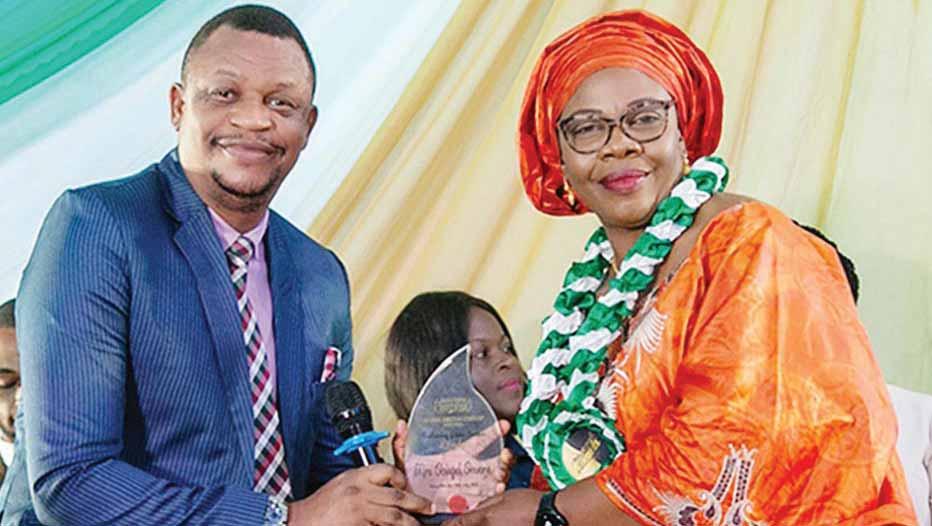
Pastor Teddy Aitan presenting the Outstanding Public Servant Award to Mrs Obiageli Onuorah, Director, Communications and Stakeholders Management at NEITI, at the National Christian Leadership Award held recently at the National Christian Centre, Abuja... recently
Chuks Okocha in Abuja
A former Minister of Information, Prof. Jerry Gana, has said the Labour Party Presidential candidate in 2023, Mr. Peter Obi, would win northern votes, should he come back to his former party, the Peoples Democratic Party (PDP).
Gana, a founding member of the of the PDP, who has been a major canvasser for Obi’s return to the PDP, claimed that the fomer Anambra governor would defeat any contender in Nigeria’s northern states if he contested on the PDP platform.
Gana made the claim during an interview on Arise TV’s Prime Time, amid ongoing speculations about Obi’s potential return to the PDP despite his recent engagements with the African Democratic Congress (ADC).
Obi left the PDP in May 2022 to pursue his bid under the LP.
“The PDP is on the ground. I’m a researcher, and I research opinions. In the northern states, Peter Obi under the PDP will defeat any candidate because our people are very fairminded and just,” Gana said. He revealed that efforts were still
ongoing to bring Obi back into the PDP fold.
“We are reaching out to Peter Obi. Because I’m leading a search team and there are many brilliant people. Peter may be good, but we have somebody better. So, we are searching,” he said.
Gana also admitted that the PDP mishandled Obi’s exit from the party ahead of the 2023 elections.
“We made a mistake in 2023. If I were Atiku, I would say, ‘Peter, it is now your turn; I would give you a vice-president,’ but he didn’t,” he said.
Speaking on the recent internal crises within the party, Gana stated they were largely limited to “a few elites in Abuja” and did not reflect the mood of the party’s broader base across the country.
His words: “I must confess that many people have forgotten that the PDP was created as a grassroots organization.
“In 1998, we were formed and then moving to the elections in 1999 we were in every polling unit, because we are the ones who really won the first election.
“Many people have forgotten the PDP won most of the local
governments, when it came to the presidential elections, we won the presidency, we won the Senate, we won the House.
“We were totally in control, and
that is why we were very delighted that we restored democracy to Nigeria and re-established civil rule.
“Because for a number of years, there was military rule but we suc-
cessfully terminated that in a very democratic way, so the PDP was really as it were, a grassroots party.
“That’s why when we said ‘power to the people,’ we meant it because
that was what it was, and it has been like that. So when this recent problem happened, it was really among a few elites here in Abuja. It didn’t even go beyond.”
Chuks Okocha in Abuja
Former Vice-President Atiku Abubakar has stirred fresh political buzz after hinting at a possible run in the 2027 presidential election, telling journalists that a formal announcement would be made in due course.
Atiku made the remarks during a brief exchange with the press, as captured in a viral post shared on his X account
When pressed about his intentions in the next election, and a timeline for declaring his candidacy, the 77-year-old politician, who had attempted at presidency since
Says only those with integrity deficit still applaud Tinubu’s maladministration
Gbenga Sodeinde in Ado Ekiti
The Southwest chapter of the Peoples Democratic Party (PDP), has lauded a former Governor of Ekiti State, Dr. Kayode Fayemi, for his rare display of courage and sincerity in speaking truth to power, describing his recent comment as a reflection of the true Ekiti spirit, principled, disciplined, and people-driven.
In a viral video that has sparked public-wide discourse, Fayemi openly criticised the Bola Tinubu-led federal government for its insensitivity to the plight of Nigerians. He highlighted, among others, the deplorable condition of federal roads in Ekiti State and the worsening national economy, saying the masses
were unhappy, and the government could no longer feign ignorance of their suffering.
Reacting to the development, the PDP in the Southwest, in a statement by its Zonal Publicity Secretary, Chief Sanya Atofarati, hailed Fayemi for standing on the side of truth and the people, despite being a stalwart of the ruling All Progressives Congress (APC).
“Dr. Fayemi has demonstrated uncommon courage by rising above partisan sentiments to speak the minds of millions of Nigerians. This is a rare trait among APC leaders, and we commend him for choosing integrity over political convenience.
“He has proven himself a true son of Ekiti, not one swayed by stomach
infrastructure, but by conscience and compassion.”
The PDP noted that Fayemi’s remarks only echoed what millions of Nigerians were saying daily, that the country was on the brink under a government that has become synonymous with hardship, failed promises, and economic mismanagement.
The party further stated that, “Only those suffering from integrity deficit can still applaud this maladministration, while many of those who brought the Tinubu government to power now live in regret. Nigeria has been hijacked by a cartel of power mongers who are disconnected from the realities of everyday Nigerians.”
1993,replied with a confident smile:
“We will let you know. We will give you formal announcement.”
Also asked what he would do if he didn’t clinch the party’s presidential ticket, Atiku, said, “Have I ever failed to get the ticket? I’m confident.”
His comments didn’t stop there.
Addressing the growing calls for younger candidates to take centre stage, Atiku defended his place in
production is achieved.
“This Initiative is designed to guarantee maximum value delivery from our assets and ensure a sustainable energy landscape. It is a collaborative approach aimed at identifying low hanging opportunities and the potential threats to maturing and streaming these opportunities leading to possible interventions of government and stakeholders at all levels,” he pointed out.
In his presentation, the Executive Commissioner, Development and Production at the NUPRC, Enorense Amadasu, reiterated that with the execution of the approved development plan in the deep offshore by the commission, this is expected to bring in additional 810,000 bpd to Nigeria.
“What has the government done previously to bring out those values? So we go to the petroleum profit tax from deep water, which is now 50 per cent, for the hydrocarbon tax it is 30 per cent. For the PPL, it is 15 per cent. And then even for the deep water it is 0 per cent. And we understand that this is how it’s supposed to be,” he stated.
Despite all the incentives, he stated that Nigeria is not where it
the race, saying, “Let the youths contest now. It’s democracy.”
Meanwhile, the President of ECK Foundation, Dr. Emeka Kalu, has said he was rooting for Alhaji Atiku Abubakar’s 2027 presidential ambition because he was a detribalised Nigerian and has the necessary experience to take the country out of the present economic and security challenges.
A statement by Kalu cited
wants to be, the reason the meeting was called, to sit down with the operators and to find out whether there was any other thing that could be done to raise production in the deep offshore. Amadasu mentioned a number of other interventions by President Bola Tinubu, including Orders 40, 41, and 42, bordering on tax incentives, local content compliance, acceleration of contracting cycle and reduction in costs.
“Beyond all of these, what else can the government do? What else can we do? “, he asked , noting that that was the essence of the stakeholders meeting.
From the preliminary studies in-house done by NUPRC, he listed some of the problems as accumulation beyond thresholds with respect to volumes as well as technology costs and technology availability.
According to him, standing alone will be sub-optimal, but collaboration will be economically viable, underscoring the importance of risk sharing. Working together, he said that he believed that all the operators will be willing to quickly take their Final Investment Decisions (FID) in the not too distant future.
Atiku’s experience and tenacity as key factors that made him a strong candidate to defeat President Bola Tinubu in the 2027 presidential election.
He also said supporting Atiku could be “a strategic move for the Igbo people, potentially paving the way for Mr. Peter Obi in the future and giving the Igbo community a say in the Nigeria’s power dynamics.”
“How can we pull three, four people together and evolve a policy that is similar to a joint venture? That is why we have this meeting. So we believe it can be done. If we don’t do anything now, in another five years, we will struggle very well as upstream operators,” Amadasu stated. He added that a committee which was raised has some points of reference which include other sub-committees like infrastructure development; validation of volumes; economics; further interventions, among others.
In his remarks, the Head of Production Sharing Contracts (PSC) at the NNPC Investment Management Services (NUIMS), Abba Yakubu, who said he had no mandate to speak on behalf of the organisation, however stated that the assets in the deep water space are clustered, even by geographical positioning.
Calling for collaboration, he stated that there was the need for operators to come together to develop the assets, so that at the end of the day, they can possibly drive down the capex. “If you consider standing alone, those assets will never be developed,” Abba emphasised.

A former Governor of Plateau State, Senator Simon Lalong, has said the choice of Prof. Nentawe Yilwatda as the National Chairman of the All Progressives Congress (APC)
would be an added advantage to President Bola Tinubu ahead of the 2027 elections. This, he added, is because of being a former Resident Electoral Commissioner (REC) of the Independent National Electoral Commission (INEC).
Lalong made this known when he led other party chieftains from Plateau State on a solidarity visit to Yilwatda at the national secretariat of the party in Abuja, He described Yilwatda as a master
strategist with the capacity to speak the language of the middle class and the youths to galvanise for the party.
Lalong dismissed the threat posed by the opposition African Democratic Congress (ADC), adding that the tricks in their baggage were not unusual
FG APPROVES N712BN FOR FULL REHABILITATION OF LAGOS AIRPORT TERMINAL ONE
According to Adelabu, the rural electrification project is designed not only to provide lighting for homes but also to power agro-processing activities and other productive uses to boost rural livelihoods.
He stated, “This project is meant to empower our rural dwellers by enabling them to engage in productive activities using solar-powered equipment. It’s a key part of our resolve to ensure that no Nigerian is left behind in the transformation of the power sector.
“The total cost approved for this project was N68.7 billion, inclusive of 7.5% VAT, with three months’ completion or delivery periods.
“For the Nigerian education, the total project amounts approved was N145 billion, inclusive of 7.5% VAT.”
He emphasised that the deployment of off-grid renewable energy solutions aligned with the Tinubu administration’s broader agenda to promote inclusive growth and economic diversification through sustainable infrastructure development.
“The approvals granted today demonstrate President Tinubu’s commitment to transformative investments in power infrastructure that directly impact lives, learning, healthcare, and productivity,” Adelabu said.
The federal government also approved billions of Naira for the rehabilitation and reconstruction of several highways spread across the country.
It also commenced reconstruction of the collapsed Keffi Flyover in Nasarawa State, where a tragic incident earlier in July claimed three lives. Minister of Works, Senator Dave Umahi, who disclosed this yesterday while briefing newsmen, described the collapse as “very unfortunate”.
Umahi confirmed that the government had reached a settlement with the bereaved families.
“We lost three lives there. We have settled with the families, who are not pressing charges. Reconstruction has started,” Umahi said.
He stated that one carriageway of the flyover had been closed to allow urgent repair works.
The minister added that structural investigations prompted the closure to prevent further incidents.
The Keffi Flyover, a major link between the Federal Capital Territory (FCT) and several North-central states,
collapsed on July 4, raising widespread concern over infrastructure safety.
Umahi assured that the Tinubu administration was prioritising accountability and public safety, and urged citizens to support ongoing inspection and monitoring efforts.
He said the intervention alignws with the administration’s broader commitment to ensuring the integrity of road and bridge assets nationwide.
FEC likewise approved major reviews and funding for critical road and bridge projects across the country as part of Tinubu’s infrastructure transformation agenda.
Umahi revealed that 360 road rehabilitation projects were completed in 2023, and inspections were underway across all geopolitical zones.
He disclosed that state engineering chambers will now participate in the tracking of federal projects to promote transparency and collaboration.
Umahi listed several high-value projects, many exceeding N10 billion, that had either commenced or received substantial disbursements, with a detailed list to be published next week.
He named key highlights of ongoing and approved projects, including:
Abuja Road Lots: Lot 1: 118 km at N275 billion (30 per cent disbursed; 30 per cent completed); Lot 2: 164 km at N502 billion (N150 billion disbursed for six sections)
The works minister also named major corridor projects and the funding stages to include Enugu–Onitsha Road: 72 km at N150 billion (N45bn released); Abuja–Kano Road: N220 billion (30 per cent disbursed); Bauchi–Jigawa Road Sections: fully funded; Nembe–Brass Road: N156 billion (30 per cent released); Port Harcourt–Bodo–Bonny Road: 35 km at N200 billion near completion; Benin–Ifon–Akure: 108.4 km (30 per cent released); Akure–Ado-Ekiti: 256 km at N761 billion (30 per cent released).
Umahi announced new approvals and project variations, including Biu–Numa Road (Borno/Adamawa): Revised to N61.76 billion (from N15.4 billion), Maraba–Keffi Road; (Nasarawa): 43.6 km dualisation at N76 billion; Ikorodu–Sagamu Road (Lagos): Variation of N11.42 billion approved for completion; Kashamu–Amshi–Guru–Gurus Road (Yobe):
Revised to N23.4 billion for binder courses and a new vehicle bridge; Sokoto–Badagry Superhighway: Kebbi Section: 258 km x2 at N1.92 trillion and Sokoto Section: 120 km x2 at N912 billion.
Other projects, he said, were Afe Babalola University Access Road (Ekiti): Revised to 14.4 km at N9.32 billion due to funding constraints; Trans-Saharan Highway (Oyo–Benue border): Revised from 180 km to 231.64 km; cost increased to N445.8 billion due to soil failures and realignment; Lagos–Calabar Coastal Highway (Sections 4A & 4B): Ogun & Ondo States: 80.35 km x2 at N1.65 trillion and includes 6-meter excavation due to swamp terrain.
Umahi emphasised that the projects were not just infrastructure upgrades but strategic economic drivers expected to impact state GDPs, trade, and national cohesion.
He defended the cost-effectiveness of the contracts and affirmed that the rollout of projects had been equitably distributed across zones.
He stated that the administration was open to scrutiny and committed to delivering quality infrastructure across the country.
Another approval by FEC was for the upgrade of the Oncology Centre at the University College Hospital (UCH), Ibadan, another milestone in the Tinubu administration’s aggressive reform of Nigeria’s health sector.
Coordinating Minister of Health and Social Welfare, Professor Muhammad Ali Pate, said the approval was part of a broader agenda to revolutionise cancer care and health infrastructure in the country.
According to him, the revamped UCH Oncology unit will feature advanced equipment, including linear accelerators and diagnostic systems for radiotherapy.
He added that similar comprehensive oncology centres recently launched in Katsina, Enugu, and Jos illustrated the administration’s commitment to building world-class facilities locally.
“Cancer patients now have access to state-of-the-art treatment within Nigeria, unless they choose otherwise,” he said.
“This government, under the leadership of President Tinubu, is making significant investments so that our people no longer have to
travel abroad for care that can be accessed here,” Pate added.
The minister stated that additional cancer centres were in the pipeline for Lagos and Zaria, while referencing the ongoing commissioning of over 10 major projects at the newly inaugurated University of Abuja Teaching Hospital, one of the largest in West Africa.
They included neurology, stroke, heart, and interventional radiology centres, among others.
The minister said, “This is unprecedented, Nigeria has never witnessed this level of presidential attention and investment in the health sector.”
Pate also commended the collaborative efforts of the Ministers of Finance and Budget in delivering the president’s health sector renewal vision.
Commenting on the state of industrial harmony in the sector, the minister acknowledged two years of relative peace and appreciated health workers across federal and state institutions for their resilience.
He, however, noted concerns raised by professional groups over a recent circular by the National Salaries, Income and Wages Commission, which had since been withdrawn.
Pate stated, “We’re now in the process of negotiating revised allowances transparently.”
He said active discussions were ongoing with key associations, including the Nigerian Medical Association (NMA) and nurses’ unions.
He assured that some longstanding arrears would be addressed by the Ministry of Finance in due course.
“Not all issues are financial,” Pate added.
He explained, “We are also resolving establishment matters, like the centralisation of nurses’ postings. The government is committed to ensuring that health workers are respected and supported.”
Further negotiations with union leaders are scheduled for Friday, in line with President Tinubu’s directive to maintain constructive engagement for lasting peace, he said.
“The health workers are the lifeblood of the system. Our infrastructure and equipment must go hand in hand with a motivated and supported workforce,” Pate further said.
for the APC-led administration.
“Yes, it used to be that before you become National Chairman, you must be governor or former governor. Gone are the days.
“We have seen people who are not former governors becoming national chairmen of the party. We have also seen some national chairmen of the party, former governors, coming here for one reason or another. They didn’t spend time.
“When you talk about party, you are talking about election. What is it about election that an electoral officer does not know? If he knows, it is an added advantage to this party. They were put out. But in this one, I see a new trend.
“Our new trend is the gap between the old and the new. So, if the whole exercise is about movement of younger ones, movement of women and children, then it means that you must get somebody that can speak their language. I hope you
understand.
“You now have to get somebody that understands their language. If you understand their language, they also understand his language. That is what we have done.”
On her part, former Minister of Women Affairs, Pauline Tallen, commended Tinubu for the honour done to Plateau State over the appointment of Yilwatda as the national chairman of the party.
According to her, “It is a new Plateau, and it is going to be a new APC all over the country. What is happening is just a trick. As my leader has rightly said, we are not afraid of those leaving the party because we know more are coming.
“In Plateau, a lot of other parties, including the ruling party in the state, are coming to us. That is a good sign. And the coming of the national chairman will open more doors for greater things for Mr. President,” she added.
Kasim Sumaina in Abuja
President Bola Tinubu, yesterday, called for cooperation and accountability among stakeholders, regulators to avoid undue hindrance to accident investigation in the country.
The stakeholders include the Nigeria Civil Aviation Authority (NCAA), Nigeria Maritime Administration and Safety Agency (NIMASA), Nigeria Railway Corporation (NRC), and the Nigeria Inland Waterways (NIWA).
They are to work hand-in-hand with operators, manufacturers, unions, and international partners
The President, stressed the urgency of timely investigations, noting that delayed probes often prolong uncertainty for victims and allow hazards to persist.
He made the appeal while delivering a keynote address at the Multimodal Transportation Stakeholders’ Workshop organised by the Nigerian Safety Investigation Bureau (NSIB) in Abuja.
Represented by the Minister of Aviation and Aerospace Development, Festus Keyamo, the president added that the NSIB’s requirement was to begin serious investigations within seven days, coupled with the commitment to publish final reports within 12 months, which aligned with global best practices.
Citing the U.S. NTSB as a benchmark, he stated that deeper collaboration across all modes of transportation in Nigeria would achieve a seamless and safer transport ecosystem.
He lauded the NSIB for convening the timely forum themed: “Strengthening Transport Safety Standards Through Collaboration”, commending the presence of stakeholders whose attendance underscored his administration’s collective resolve to overhaul transport safety standards across Nigeria’s critical infrastructure. He also recognised the leadership of the Director General of NSIB, Capt. Alex Badeh Jnr., and applauded the expert contributions of speakers including former Managing Director of the U.S. National Transportation Safety Board, Mr. Dennis Jones; former Managing Director of the Nigerian Railway Corporation, Engr. Seyi Sijuwade; and former Chief of Naval Staff, Vice Admiral Dele Ezeoba (rtd.). He emphasised the role of transportation as the “lifeblood of any nation’s economy,” connecting people, goods, and services. However, he warned that such connectivity comes with the grave responsibility of ensuring safety across all platforms—air, rail, marine, and road.
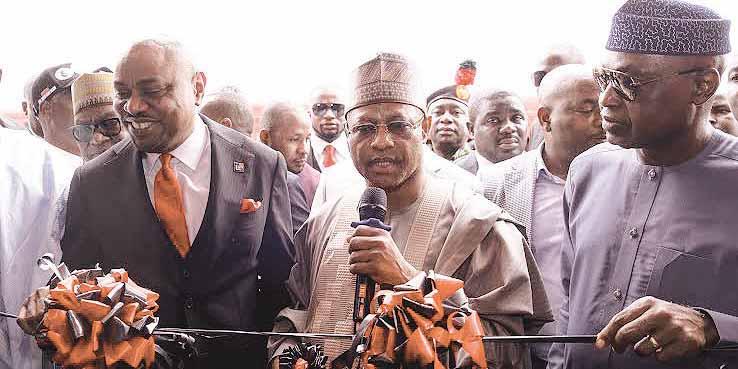
L-R: Managing Director/CEO, Premium Trust Bank, Dr. Emmanuel Efe Emefienim ; Governor of Kaduna State, Senator Uba Sani, and Executive Governor of Ekiti State, Hon.
Oyebanji, at the official opening ceremony of the bank’s new branch in Kaduna…recently
Hammed Shittu in Ilorin
A Kwara State High Court in Ilorin yesterday sentenced to death by hanging the acclaimed Ilorin-based Islamic cleric, AbdulRahman Bello, for killing and dismembering the body of a final year student of the Kwara State College of Education, Ilorin, Late Hafsat Yetunde Adefalu Lawal, in connivance with four other suspects. However, the court
discharged and acquitted Ahmed Abdulwasiu, Suleiman Muhydeen, Jamiu Uthman, and Abdulrahman Jamiu, four other accused persons in the trial of any connection in the five-count charge case.
The presiding Judge, Justice Hannah Olusola Ajayi, gave the ruling in Ilorin while delivering her final ruling on the murder case yesterday. Justice Ajayi, who described the offence by the prime suspect as the highest degree of human
Vitel Wireless, a leading mobile virtual network operator (MVNO), has announced the official launch of its nationwide network services in Nigeria.
In a statement yesterday, the company stated that starting August 1 (today), it will release an initial batch of 50,000 SIM cards and eSIMs across all 36 states and Federal Capital Territory (FCT) to selected subscribers, bringing reliable, affordable, and high-quality connectivity to millions of Nigerians.
This milestone, it said, marks its commitment to transforming Nigeria’s telecommunications landscape by providing
accessible and seamless mobile services to both urban and rural communities.
Commenting on the launch, Executive Chairman of Vitel Wireless Limited, Kenneth Nwabueze, said:
“We are excited to bring Vitel Wireless’s innovative services to Nigeria, a vibrant and dynamic country with immense potential. Our goal is to deliver dependable connectivity that enables Nigerians to connect, communicate, and thrive in the digital age. This rollout is just the beginning — we look forward to expanding our services and making a positive impact across the nation.”
Olawale Ajimotokan in Abuja
The federal government has announced plan to restore and give certification for the National Art Collection. The DirectorGeneral of National Gallery of Art, Ahmed Sodangi, disclosed this in Abuja yesterday.
The National Art Collection consisted of art works in storage for a long period of time and held in trust on behalf of the federal government.
Sodangi noted that the certification would give every Nigerian artwork a base value, allow artists to sell their work internationally, help in tracking the art work as well as earn
royalty through deployment of block chain.
He said the federal government had also entered into a strategic partnership with the GoetheInstitute and the Museum of West African Art towards creating a digital archive for the available collection.
The gallery, according to Sodangi, would also on August 1 receive the first digitalised inventory of the national collection it had been working on with the Goethe-Institute for the first part.
He described the art works comprising the collections of Jimoh Buraimoh, Bruce Onobrakpeya, and Ben Ossai, among others as national
wickedness and a cruel act, held that his defence in court showed that he had preconceived the intention of killing the victim for a money-making ritual. She also said that the
confession of love by the prime suspect for the victim with the intention to marry her, as said in his defence, is a concocted lie to deceive the court.
The Judge also said that the
attitude of the convict after committing the crime and before his arrest by the law enforcement officers showed that it may not have been his first time engaging in such an
act.
The court also held that the video and written evidence taken by the officers of the DSS and police from the convict duly complied with law of the state.
Fayose’s Endorsement of Oyebanji shameful, deceitful, says brother
Gbenga Sodeinde in Ado Ekiti
Mr. Kayode Ojo, an engineer and frontline member of the All Progressives Congress (APC) in Ekiti State, has cried out over the arrest of members of the party who are his followers when they were holding their weekly meeting at Igede-Ekiti yesterday by members of the Ekiti State Police Command. In a statement by his media
aide, Alhaji Deji Aiyelabowo, Ojo said two of the party members who are his followers and loyalists of President Bola Ahmed Tinubu were arrested by the Police under the guise of involvement in armed robbery attempt in the town and subsequently whisked away to the Police Headquarters in Ado-Ekiti, where they are still being held.
According to Ojo, “the two men including other members were at
the meeting venue when some people came in to accost them to demand for reason why their vehicles were parked on the road to prevent free flow of traffic and, before anybody could say Jack Robinson, policemen from the Ekiti State Command had invaded the venue of the meeting, and arrested the two of the Party members and tagged them as armed robbery gang and took them away.”
Ojo drew reference to a similar occurrence at Ikoro-Ekiti about three months ago when the party Ward Chairman and two others were arrested in the town at the middle of the night alleging similar offence and took them Ado-Ekiti for detention at the Headquarters of the RRS where they were detained for days and eventually released after when nothing incriminating was found in their possession.
The Nigeria Labour Congress (NLC) and the new leadership of Radio, Television, Theatre & Arts Workers Union of Nigeria (RATAWU) have express readiness to collaborate in advocating special salary scheme for workers in the media industry.
The decision to seek for better welfare package for media
Omon-Julius Onabu in Asaba
A Niger Delta stakeholders at a dialogue held in Asaba, Delta State, have expressed worry about the generally low level of awareness in the region about the existence of opportunities in the carbon offset and carbon credit global market, calling on all stakeholders to enlighten the various communities on
practitioners in the country came just as NLC decried what it described as undue interference of government in the affairs of trade union organisations using security agencies to disrupt their activities and harass it’s members. Speaking during courtesy visit of the newly elected national officers of RATAWU to NLC headquarters in Abuja, the NLC president, Joe Ajaero, said that journalists and
other professionals in the print and broadcast industry deserve a better deal than what they are presently getting He said that apart from poor salary and allowances, the workers in some of the media houses are usually owed salaries.
He also expressed worry that most media organisations are yet to implement the new minimum wage despite being in the vanguard for better wages
for other sectors. “That system is not is not too good.vThere is need for improved salary structure and welfare of media practitioners. So I want to urge you, if you have a template for us to improve the welfare of workers in your sector, the NLC will work with you, that’s the assurance we are going to give to you, and we are going to make it practical,” he said.
the issues.
With improved awareness on carbon offset and carbon credit, government at different levels, communities and individuals could benefit handsomely the environment-friendly initiative, the stakeholders stressed.
Many of the participants admitted near-total ignorance of the whole concept of carbon credit or its ecological and
economic benefit especially for degraded oil producing communities in the region, prior to the advocacy by Search for Common Ground.
However, the initiative is expected to strengthen national -to-subnational policy integration towards using carbon credit to generate more revenue for the community, because measurable and
verifiable greenhouse gas emission can be harnessed. According to the Consortium Manager, Mr. Joshua Chorbe, the dialogue aimed tackling the menace of violence and criminality especially in oil and gas producing communities due primarily to environmental degrading through oil spills, gas flaring as well as pollution of water and farmlands.
The leader of Ikoyi-Obalende LCDA, Hon. Oladimeji Kehinde Hassan, has promised to support the leadership of the council in the implementation of people-oriented policies and programmes. He gave this assurance after he was elected by other councillors
as the Leader of the Legislative House at the remodeled Council Secretariat, Obalende.
Hon Hassan, who was elected from Ward A during the July 12 Local Government elections in the state was unanimously endorsed to lead the 6th legislative arm of the council.
According to him, the legislative arm under his watch will focus on bye laws that are progressive in nature to fast track socio-economic development of the area.
Hon Kunle Oyekan from Ward B was elected as the Deputy Leader of the House while
Ekundayo Opeyemi took the position of the Majority Leader of the House. The position of the Chief Whip of the House was taken by Hon Tijani Rotimi Owolabi as the only female member, Fatima Yusuf was a floor member of the House.
Dangote Cement Plc has urged stakeholders in the housing industry to consider budgetfriendly mass housing scheme for Nigerians.
Speaking at the ongoing Africa International Housing Show, the National Sales Director, Dangote Cement Plc, Dolapo Alli, said: “Addressing housing issues requires collaboration among various stakeholders, including government agencies, private developers, non-profits, and communities. The government can adopt public-private partnerships (PPPs) to support
mass housing initiatives.
“Through PPP models, the government may initiate the construction of new estates, while companies and firms in the building and construction sector can be granted tax waivers and credits to facilitate the financing of new and affordable housing developments.”
Mr. Alli said mass housing is one of the several strategies used to address the challenge of providing adequate housing for the public, adding that the approach had helped to tackle the pressures of rapid
urbanisation in numerous countries around the world.
He commended the efforts of the federal government in implementing mass housing programmes, adding that more gaps need to be covered.
He said: “Nigeria, through the Renewed Hope Housing Initiative, has taken commendable steps toward addressing the critical gap in access to affordable housing finance. This initiative signals a strong commitment to making homeownership more accessible for citizens, particularly low- and middle-income earners.
The Oyo State Government has declared that the planned Ijaiye Special Agro-industrial Processing Zone and the Rungisstyled Food Wholesale Market will transform agriculture and business in Ijaiye, its environs and across Oyo State.
It explained that 3,000 hectares out of the 7,581 hectares at the Ijaiye Farm Settlement have been designated for the twin initiative, which will not only bring greater economic benefits to farmers and other stakeholders at the Ijaiye Farm Settlement in Akinyele Local Government Area but will also have lasting impact on agriculture and agribusiness in the state.
The Permanent Secretary of the Oyo State Agribusiness Development Agency (OYSADA), Mr. Kolawole Badmus, who represented the Director-General of the agency, Dr Debo Akande, said this during a meeting with
I, formerly known and addressed as OBIORA IFEOMA VERONICA, now wish to be known and address as ONYENUFORO IFEOMA VERONICA OBIORA All former documents remain valid. The general public should take note.
I formerly known and addressed as MUSA ABDUL now wish to be known and addressed as MUSA ABDUL JOSEPH. All documents bearing MUSA ABDUL remain valid. The general public should please take note.
I formerly known and addressed as FALADE OMOKEHINDE OMOLOLA now wish to be known and addressed as OLUKOLU KEHINDE OMOLOLA. All formal documents remain valid general public please take note.
I, formerly known and addressed as ODIGBO CHIDINMA MARY-BLESSING, now wish to be known and address as CHIJIOKE CHIDINMA MARY-BLESSING. All former documents remain valid. The general public should take note.
I, formerly known and addressed as LUCY NNENNA UKWA, now wish to be known and address as LUCY NNENNA OKWUANALU. All former documents remain valid. The general public should take note.
RAYMENWOKAH MARACHIM KERENHAPPUCH and MARACHIM KEREN RAYME NWOKAH refer to one and the same person. Henceforth, I wish to be known and addressed as RAYME-NWOKAH MARACHIM KEREN-HAPPUCH. All former documents remain valid. General public should take note.
stakeholders at Atan-Ijaiye.
He noted that the fears of displacement being nursed by farmers in the settlement were unfounded, stating that the initiatives as envisioned by Governor Makinde, who he described as a compassionate leader, would only improve agriculture value chain and ensure that farmers get greater rewards for their efforts.
According to the Permanent Secretary, the AfDB-backed Special Agro-industrial Processing Zone and the Wholesale Market, which is styled after the Rungis International Food Wholesale Market run by Semmaris, when completed, would provide opportunities for farmers to get greater value for the farming investments.
Esteem Schools Abak, Akwa Ibom State, has received a significant boost to its academic infrastructure, thanks to the generosity of Engineering Automation Technology Limited (EATECH), an indigenous oil and gas firm.
The company donated cutting-edge, built, and furnished chemistry, physics, and biology laboratories to the school as part of its corporate social Responsibility (CSR) initiative in its host Akwa Ibom State.
Commenting, Managing Director/CEO of EATECH, Dr. Emmanuel Okon, emphasised the importance of knowledge in addressing societal challenges, particularly in science and technology fields.
“The challenge to society is ignorance, and the solution to
this is knowledge,” he said, urging students to utilise the facilities and maintain them for future generations.
Okon made a further commitment to set up a fully equipped Computer-Based Test (CBT) Centre to enable the school to host related CBTs and enhance information and communication technology (ICT) skills, including coding, robotics, Artificial Intelligence, and programming, among others. He said the company would also train staff and students on the basic applications of ICT tools.
In 2023, EATECH had invested over N35 million in the rehabilitation and equipment of the Biology and Chemistry laboratories of St. Mary’s Senior Science College, Ediene-Abak.
Mary Nnah
Cerba Lancet Nigeria’s ‘Pad Up A Girl’ initiative has taken a significant step towards promoting menstrual hygiene and health among young girls.
The programme, now in its eighth year, aims to equip young girls with essential knowledge and resources to manage their health and well-being, promoting dignity and confidence among young adults.
The initiative recently held its annual Corporate Social Responsibility event at the Nigerian Navy Secondary School in Satellite Town, Ojo, Lagos, drawing over 700 students. The event featured interactive sessions, debates, and quizzes, providing students with a platform to engage with experts and share their concerns.
The Medical Director and Senior Pathologist at Cerba Lancet Nigeria, Dr. Fred John Obiajulu, at the event, emphasized the importance of the initiative, stating that: “When you have a
healthy girl-child, you have a healthy society. Any society that suppresses the girl-child never progresses.”
He highlighted the significance of educating young girls on reproductive health, menstrual hygiene, and sexual health, warning that neglecting these aspects can have severe consequences.
The Commandant of the Nigerian Navy Secondary School, Captain Yakubu Mbaya Haruna, praised the initiative, highlighting its relevance and timeliness in educating young girls about menstrual hygiene and health.
“Today’s event is quite interesting because it’s educational. It comes at the right time to sensitise our students about the menstrual period and hygiene,” he said.
The school’s Matron, Mrs. Janet Oiywodu Musa, noted that the initiative would have a tremendous impact on the students, empowering them with knowledge and confidence to manage their menstrual health.
Edited by: MJO Mustapha Email deji.mustapha@thisdaylive.com
By: Binte Fatima/IslamiCity
In an increasingly interconnected and dynamic world, the emphasis on soft skills has never been more pronounced. Beyond technical prowess and academic qualifications, it’s our ability to communicate effectively, collaborate harmoniously, adapt to change, and lead with integrity that truly defines success - not just in the professional sphere, but in every aspect of life.
While modern psychology and corporate training programs champion these attributes, the wisdom of Islam has, for centuries, provided a comprehensive framework for cultivating what we now call “soft skills.”
Islam, as a complete way of life, doesn’t merely focus on rituals and dogma; it places immense importance on the development of an individual’s character (akhlaq) and their interactions with others.
The Quran and the Sunnah (the teachings and practices of Prophet Muhammad, peace be upon him) are replete with guidance that, when understood through a contemporary lens, directly addresses the core tenets of modern soft skills.
This article will explore how Islamic principles lay the foundation for essential soft skills, empowering Muslims to not only excel in their worldly endeavors but also to live a life pleasing to their Creator.
The Foundation: Taqwa and Ihsan - The Ultimate Soft Skills
At the heart of all Islamic soft skills lies Taqwa (God-consciousness) and Ihsan (excellence or beautification in worship and deeds). Taqwa is the constant awareness of Allah’s presence, leading to a deep sense of accountability and a desire to do good and avoid wrong.
Ihsan, on the other hand, is performing every action, whether an act of worship or a mundane task, with the utmost care, sincerity, and perfection, as if one sees Allah, or knowing that Allah sees them.
These two concepts are not just religious obligations; they are the ultimate soft skills. A person imbued with Taqwa will naturally be more ethical, trustworthy, and responsible. A person striving for Ihsan will demonstrate a strong work ethic, attention to detail, and a commitment to quality in all their interactions and outputs. These foundational qualities permeate every other soft skill we will discuss.
Communication: The Eloquence of Truth and Kindness
Effective communication is paramount in both personal and professional settings. Islam emphasizes communication that is not only clear and concise but also truthful, respectful, and compassionate. for truthfulness in speech and action. Lying, deceit, and misrepresentation are severely condemned. A person who is known for their honesty builds trust, which is the bedrock of any successful relationship, be it with colleagues, clients, or family.
Muslims to speak kindly, even to opponents. “And translates into using polite language, avoiding harshness, and choosing words that heal rather than harm. This applies to constructive criticism, negotiation, and even disagreement.
as a term, the emphasis on understanding others’ perspectives and being patient in conversation indirectly promotes active listening. The Prophet Muhammad (SAW) was known for his attentiveness when others spoke, making them feel heard and valued.
forbids backbiting (gheebah) and slander (buhtan), recognizing their destructive impact on relationships and social cohesion. This teaches self-control in speech and encourages focusing on positive interactions.
Collaboration and Teamwork: The Strength of Unity
Islam places a high premium on community (Ummah) and collective action. The concept of brotherhood and sisterhood in Islam naturally fosters an environment conducive to collaboration and teamwork.
encourages consultation in matters of importance. This principle promotes democratic decision-making, valuing diverse opinions, and arriving at collective solutions. It’s the ultimate team-building exercise, ensuring everyone feels heard and contributes.
cooperate in righteousness and piety, but do not verse is a direct call to teamwork for noble causes, emphasizing shared goals and mutual support.
A good team player is humble, acknowledging
their limitations and appreciating the strengths of others. They prioritize the success of the team over
resolving disputes peacefully and justly, emphasizing reconciliation and forgiveness. This is a crucial soft skill for maintaining healthy team dynamics and overcoming challenges.
Adaptability and Resilience: Embracing Change with Faith
Life is characterized by constant change. Islam teaches Muslims to be adaptable and resilient, finding strength in faith during times of hardship and uncertainty.
but an active, steadfast perseverance in the face of adversity, difficulty, or temptation. It teaches resilience, allowing individuals to navigate setbacks and challenges without losing hope.
diligently, Muslims are taught to place their ultimate trust in Allah. This doesn’t mean inaction, but rather a profound sense of inner peace that comes from knowing one has done their best and the outcome is in God’s hands. This reduces anxiety and fosters a calm approach to unforeseen circumstances. blessings, even amidst challenges, shifts perspective and promotes a positive outlook, essential for resilience.
is a fundamental tenet of Islam. This encourages a growth mindset, embracing new information, and adapting to evolving circumstances.
Leadership and Influence: Serving with Integrity In Islam, leadership is viewed as a trust (amanah) and a responsibility, not a position of power for personal gain. True leaders serve their followers and guide them towards what is good.
just in all their dealings, treating everyone equitably regardless of their status or background. This builds trust and fosters loyalty.
Prophet Muhammad (pbuh) was described as a “mercy to the worlds.” Leaders are encouraged to show empathy, understand the needs of their team, and act with compassion.
Allah and to the people they lead. This instills a strong sense of responsibility and integrity in decision-making.
numerous examples of leaders who, despite their immense power, remained humble and approachable. This fosters respect and encourages open communication.
Leaders are expected to embody the values they wish to see in their followers. The Prophet Muhammad (SAW) is the ultimate example for Muslims in all aspects of life.
Personal and Professional Development from an Islamic Perspective
essential soft skills and integrate them into their personal and professional lives through an Islamic lens, resources are available. One such valuable
offering insights and practical advice for personal and professional development from an Islamic perspective. Their articles delve into various aspects of self-improvement, character building, and career growth, all rooted in Islamic principles. Exploring their content can provide tangible steps and deeper understanding on how to embody these soft skills in daily life.
The timeless teachings of Islam offer a profound and holistic framework for developing soft skills that are not only valued in today’s world but are also deeply ingrained in the very fabric of a believer’s character.
Ihsan to the practical guidance on communication, collaboration, adaptability, and leadership, Islam provides a roadmap for cultivating individuals who are not only professionally competent but also ethically sound, compassionate, and resilient. By embracing these divine principles, Muslims can truly embody excellence in character and conduct, becoming beacons of positive change in their families, communities, and the global arena.
The integration of Islamic values into the pursuit of soft skills is not just about achieving worldly success; it’s about striving for a life that is truly meaningful, purposeful, and ultimately, pleasing to Allah.
Duro Ikhazuagbe
Nigeria’s Super Falcons who were honoured with a Breakfast Reception by telecommunication giant, MTN Nigeria, in Lagos, for winning the Women’s Africa Cup of Nations (WAFCON) for a record 10th time in Rabat, Morocco last Saturday, have pledged to extend their ambition beyond Africa.
After coming back from two goals down in the first 24 minutes in that epic final against hosts Morocco, the Super Falcons did the unimaginable, racing to a 3-2 victory to extend Nigeria’s dominance of the women’s game to record 10 wins in 13 championships.
But after MTN Nigeria serenaded the ladies with breakfast reception at the Eko Hotels & Suites, and also handed out a princely N150million thank-you-for-a-job-well-executed gift to them, Super Falcons Captain, Rasheedat Ajibade, pledged that the team’s ambition now extends beyond Africa.
“We’re grateful to you (MTN) for this lavish reception and monetary reward for winning this 10th (WAFCON) title. We are not content; We want to be global contenders. We want to comeback to you as World Cup champions. We don’t want to be
local champions in Africa anymore,”
gushed the blue-haired Ajibade who ended her contract with Spanish Atletico Madrid Ladies last month.
She admitted to be aware of the enormous responsibility that this ambition has placed on the shoulders of the players and officials of the Super Falcons.
“We understand perfectly well the assignment. We know the huge responsibility on our shoulders. And we hope our Federation (NFF), the federal government, and corporate bodies will continue to invest in us so we can take Nigeria women’s football to the next level,” pledged the smooth-talking Osun State-born footballer.
Ajibade also thanked President Bola Ahmed Tinubu and his First Lady, Senator Oluremi Tinubu, for the National Honours and life-changing $100,000 promised each of the players in addition to a three-bedroom apartment in Abuja.
“We want to thank the President of Nigeria, GCFR, Bola Ahmed Tinubu, and our First Lady (Remi Tinubu) for the huge gifts and honours. It’s a life-changing experience for us. It
Nigeria’s Home-based Eagles ended their run-up to the 2024 African Nations Championships (CHAN) undefeated after they were again held to a 2-2 draw yesterday by home team Zanzibar
NPFL top scorer of last season, Anas Yusuf, and Olamilekan Adebayo, gave the home-based Eagles a 2-0 lead before the Zanzibar side
fought back to draw 2-2.
Both teams played out a scoreless draw in their first clash on Monday. The team led by Super Eagles Head Coach, Eric Chelle, will open their CHAN campaign on August 5 against defending champions Senegal. They will then take on Sudan also in Zanzibar, before a final Group D game against Congo in Tanzania.

An agreement has been reached with SSCN Napoli SPA for the transfer of professional footballer, Victor James Osimhen. A net transfer fee of €75,000,000 will be paid to the player’s former club. In addition, 10% of the profit from the player’s subsequent sale will be paid to SSCN Napoli SPA as part of the agreement. A four-year contract has been signed with the player, effective from the 20252026 season. According to the agreement, the player will receive a net guaranteed salary of €15,000,000 per season, a net loyalty bonus of €1,000,000, and an image rights fee of €5,000,000.
inspires us to keep representing and flying the flag high at the global level.”
Earlier, the Chief Executive Officer of MTN Nigeria, Karl Toriola, praised the Super Falcons for the honour brought to Nigeria, winning the 10th WAFCON title against hosts Morocco. He describes the players as national icons and role models for the Nigerian girl-child.
“You are more than athletes. You
are inspirations,” began the MTN Nigeria CEO whose telecommunications company has been involved in sponsoring Nigeria’s national teams in the last two and half decades.
Toriola further describes the victorious Super Falcons as proof of the worth of the Nigerian women.
“You are proof that when Nigerian women rise, the world takes notice. At MTN, we believe in the power of connection, not just through technology, but through the soul and spirit of the people. Today, we are connected with pride and joy through the unbreakable spirit of the
Super Falcons,” observed the MTN Nigeria Chief Executive.
MTN’s Board Member and Non Executive Director, Ifueko M. Omoigui Okauru, who was joined by other female top executives to present the dummy cheque of N150million to the team, praised Super Falcons for their resilience even when they were down by two goals but picked up the pieces and came out smelling roses.
“To every Nigerian watching the Super Falcons, let their story be a reminder, never give up, despite the challenges in the country, economic hardship, discouragement, setbacks,
never give up on pulling yourself together. Never give up on your dreams. And never give up on the power of rising again. These girls (Super Falcons) have shown us what perseverance looks like. They have given us a reason to believe,” concludes Okauru. The event was graced by NFF President, Ibrahim Gusau; General Secretary, Dr Mohammed Sanusi; Coach of the Super Falcons, Justine Madugu; Communications Director of the NFF, Dr Ademola Olajire and several top executives of MTN Nigeria.

Giants of Africa Co-Founder, Masai Ujiri, has tasked African youths to believe in their potential, grow with purpose, and uplift others along the way.
He believes the future of the continent rests in their hands.
Ujiri, former President, Toronto Raptors Basketball Team, said this in Kigali, at the International Youth Day Forum held at BK Arena in Kigali, where over 2,000 youth aged 15 to 19 from 20 African countries gathered as part of the ongoing Giants of Africa Festival.
The week-long event, which runs from July 26 to August 2, brings together young innovators, entrepreneurs, and students.
Among the notable guests were Rwanda’s Minister of Youth and Arts, Jean-Nepo Abdallah Utumatwishima; Minister of Sports Nelly Mukazayire, and Fred Swaniker, Founder of the African Leadership University (ALU).
Ujiri thanked President Paul Kagame, First Lady, Jeannette Kagame, the Imbuto Foundation, and the Rwandan government for their support of the continental initiative.
“I am overwhelmed just by the support of the people of Africa and how they have supported. We can all support each other and even make ourselves bigger.”
He also acknowledged the NBA family for its long-term collaboration in promoting basketball across the
continent. “My mom used to pull my ear, and she would say, ‘Is this basketball going to feed you? Is this basketball going to feed you?’ It’s feeding a whole lot of other people now.”
Ujiri encouraged youth not to compare themselves to others but to recognise their values and shared roots.
Ujiri believes Africa has ‘everything’ to become great, “Because you see all of us here that came to speak, we say we are CEOs, presidents, we are champions, we say we are this, we are that. Guess what? We all grew up in Africa. We wore our pants the same, we wore our shorts the same, and we
went to school with no shoes. We all did it the same. And we got to where we are. If we can do it, I’m telling you I’m not that smart. You guys are smarter. I know all of us are not as smart as you, the youth. If we can do it, you guys can do it bigger, better.”
“We dreamed of something big, something that was not about ourselves. It’s about you guys. We will come and go. You are tomorrow. You are the future of Africa. So, take it and go. Believe and grow and be better. And make this continent something.
“When you become something, stay humble. Come back and take
people with you. Be something; be meaningful to our continent because our continent is bigger than all of us. And it’s time we respect that. Instead of fighting each other, we stay together,” he added.
Minister Utumatwishima commended Giants of Africa for choosing Rwanda to host the 2025 edition of the festival. “Your name alone speaks volumes, ‘Giants’. It’s not about height or fame; it’s about mindset. You remind us that being a giant is possible for African youth, not just in basketball, but in business, global leadership, the arts, and innovation.”
After a groundbreaking debut in Cape Town, South Africa earlier last month, the Professional Fighters League (PFL) has announced the full fight card for the second event of the inaugural season of PFL Africa with three Nigerian stars as headline fighters of the night. Nigeria’s Patrick “Star Boi” Ocheme, Wasi “The Nigerian Jaguar” Adeshina and rising star Kunle “Nigerian Ninja” Lawal, will be in actions as Africa’s top MMA
talent clash in the Welterweight and Featherweight divisions at the Big Top Arena, Carnival City in Johannesburg, South Africa on Saturday, August 9. They will fight for a shot as the inaugural tournament continues toward crowning the first-ever PFL Africa Champions and offer fighters from the continent an opportunity to compete on a global stage.
In the main event, “Star Boi”
Ocheme will take on

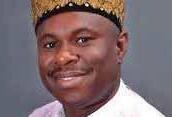
Last week’s cascade of political signals began with the release of a federal appointments list in which every new appointee hailed from one of the nineteen northern states. It was a development that instantly reignited speculation that preparations for the 2027 presidential race had moved from the shadows into daylight. Not long after, the presidency orchestrated a high-level forum in Kaduna tagged “Assessing Electoral Promises: Fostering Government-Citizens Engagement for National Unity.” Ministers, governors, military top officers and civic leaders of northern extraction gathered to assess the federal government’s record, particularly in the northern region of Nigeria. To the politically attuned, these backto-back events were not accidental. They were calculated moves—part outreach, part damage control—amid growing tensions between the North and Abuja. The political establishment is now keenly aware that sentiments in northern Nigeria hold significant implications for the nation’s political future, where dissatisfaction or approval can decisively shift electoral fortunes.
These recent manoeuvres hint that the federal government senses a rapidly eroding political capital and is scrambling to reverse the tide.
At the core of this strategic recalibration lies a political reality that cannot be overlooked: the North remains Nigeria’s electoral powerhouse. It encompasses approximately 75% of the country’s landmass and nearly two-thirds of its voting population. In the 2023 presidential election, President Bola Tinubu garnered approximately 5.6 million of his 8.8 million total votes from the three northern geopolitical zones—more than the South West and South South combined. Arewa leaders now wield those numbers like a moral IOU, cautioning the State House that gratitude is a two way street. This means that almost 64% of the votes that secured his victory came from the North, a region where many now feel increasingly let down by the very government they helped install.
However, if these recent appointments were intended to pacify the region, the impact seems to be limited at best. While northern elites may view them as a symbolic gesture of inclusion, the sentiment on the ground tells a more intricate story—one marked by disillusionment, hardship, and growing restiveness. Secretary to the Government of the Federation, George Akume, attended the Kaduna forum to deliver a message of reassurance. But when he advised northern politicians to ‘wait till 2031’ before seeking another shot at the presidency, it only fueled further unease. For many, it felt like a paternalistic reminder of power rotation rules rather than a genuine attempt to address concerns about marginalisation and economic neglect. The urgency of these grievances cannot be overstated, as they have the potential to alter the political landscape significantly.
The North’s grievances go far beyond political appointments. According to the National Bureau
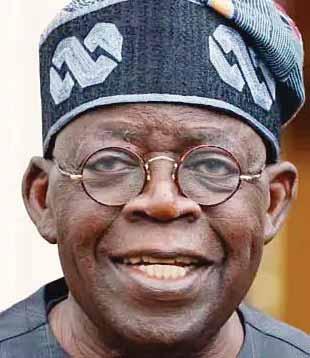
of Statistics (NBS), 133 million Nigerians—roughly 63% of the population—live in multidimensional poverty, and over 60% of these impoverished Nigerians reside in the northern region. Sokoto State, for instance, tops the multidimensional poverty index with a staggering 90.5% poverty rate, followed by Zamfara (88%), Jigawa (87%), and Katsina (84%). This structural poverty is compounded by an unemployment crisis and persistent insecurity, particularly in the North-West and North-East.
Food inflation has further deepened the pain. In May 2025, Borno State recorded a food inflation rate of 64.4%, the highest in the country. Katsina and Kebbi also posted inflation rates above 55%, far exceeding the national average. These figures translate into real suffering for ordinary Nigerians: families unable to afford basic staples like rice, maise, tomatoes, and other grains ; children dropping out of school due to hunger; farmers abandoning fields because of insecurity or unaffordable inputs. Southern households are hurting too: Ebonyi’s food prices jumped to 25.9 per cent and Cross River spiked to 27.3 per cent during the same period, proof that hardship no longer obeys geopolitical boundaries. The security situation is just as dire. In the first half of 2025 alone, over 2,266 Nigerians were killed in violent incidents, according to data from SBM Intelligence. The North-West region remains the epicentre of mass abductions, banditry, and communal clashes. Zamfara, Kaduna, Niger, and Katsina States continue to suffer weekly attacks, with villages razed, schoolchildren kidnapped, and farming communities displaced. Every unguarded highway, every burnt out village, chips away at the argument that appointments alone satisfy regional expectations. The federal government has launched multiple operations—such as Operation Hadarin Daji and Operation Safe Haven—yet banditry persists, often shifting from one axis
to another in a deadly game of cat and mouse.
In this climate, a political vacuum is beginning to open. The ruling All Progressives Congress (APC) is not only dealing with a disenfranchised northern base but also facing a credible challenge from opposition forces. The African Democratic Congress (ADC), for instance, is positioning itself as the new home for northern dissent. Former Secretary to the Government of the Federation, Babachir Lawal, recently declared that APC governors in the North would become ‘unelectable’ in 2027 if they continue to ignore public frustration. Though perhaps premature, such rhetoric underscores a dangerous truth: the so-called ‘Buhari 12 million bloc—a nearguaranteed northern vote bank, a reference to the number of votes President Buhari received in the 2019 election—is no longer securely in APC’s column.
Meanwhile, the long-standing debate over zoning and federal character has resurfaced. Critics accuse the Tinubu administration of selectively applying the Federal Character principle, pointing to the ethnic and regional composition of recent appointments. They highlight the dominance of South-Westerners in key economic and security portfolios and now, in a seeming reversal, an over-correction favouring the North. Supporters of the administration, however, argue that such appointments reflect the need to reward political loyalty and competence. Yet for ordinary Nigerians—regardless of region—the more pressing question is not who got appointed, but whether the appointees will deliver tangible results. This emphasis on results over rhetoric is crucial for effective governance and the audience’s understanding of the political landscape.
Interestingly, complaints about marginalisation are not exclusive to the North. In the South-East and South-South, many believe that their regions remain structurally underrepresented in the Tinubu government and in the allocation of federal infrastructure. South East leaders, for instance, have decried what they describe as a ‘conscious sidelining’ of the region, pointing to the lack of key appointments and significant infrastructure projects. Despite the appointment of former Ebonyi State Governor, Dave Umahi, as Minister of Works, the region feels it is not getting its fair share of the national cake. Others argue that key projects, such as the Calabar–Port Harcourt axis of the coastal highway, the Enugu–Onitsha Expressway, and the second Niger Bridge maintenance effort, are proof of the President’s inclusivity. What’s clear is that perceptions of neglect—whether founded or not—are politically potent and must be managed delicately.
Then there is the silent but powerful force of the youth. Northern youths, who comprise the largest share of the population in states such as Kano, Katsina, and Borno, are increasingly expressing their discontent through digital platforms. Hashtags like #SecureNorth, #EndFoodInflation, and #NorthBleeds have become viral rallying points. TikTok videos show empty markets and
lamenting farmers. Arewa Twitter now critiques governance with the same intensity that southern social media once did during the #EndSARS protests. Arewa Twitter and TikTok amplify food price charts, wage memes and security dashboards faster than any party’s communications unit can respond. Their verdict on governance does not pause for rotation arguments; it crunches inflation figures, poverty counts and electricity downtime. These digital sentiments are not just noise; they are shaping political awareness, building informal networks, and potentially influencing turnout and choices in 2027.
Amid this turbulent backdrop, one wonders: What will 2027 be about? Will it be a contest over ethnic arithmetic and regional entitlement, or a referendum on tangible outcomes—on who can reduce inflation, end insecurity, create jobs, and restore a measure of national dignity? Will voters accept tokenistic gestures and manipulated statistics, or will they demand answers backed by lived experiences?
The stakes are immense. A president who fails to tame inflation or curtail mass poverty risks alienating not just the North but Nigerians across all regions. Conversely, any candidate or party that can present a coherent plan for economic recovery, food security, and inclusive governance may find unexpected traction, even in areas that previously voted against them. 2027 may perhaps be a referendum on tangible outcomes rather than tribal arithmetic. If the presidency can break food inflation, reverse the poverty trajectory and tame the gunmen, the North’s goodwill may yet hold. Fail, and the region that once delivered a decisive victory could just as decisively withdraw it.
Ultimately, 2027 must not be about North versus South, or Fulani versus Ijaw or Igbo, or APC versus PDP versus ADC. It must be about results. It must be a test of leadership, competence, and empathy. The challenges Nigerians face today do not discriminate based on ethnicity, religion, or political affiliation—they are national in scale and deeply personal in impact. A child going to bed hungry in Sokoto shares the same pain as one in Abia. A farmer abandoning his land due to insecurity in Zamfara is no different from a fisherman in Rivers whose business has collapsed under inflation and emergency rule . The real divide in 2027 is not regional; it is between those who govern effectively and those who merely campaign well.
The tide is changing, and it is no longer governed by geography alone but by the question every Nigerian now asks with increasing urgency: Who will make life better for me and my children? This question, once whispered in frustration, is now being shouted across timelines, town halls, and traffic stops. It is a clarion call to all contenders: deliver tangible change or be swept away by a wave of discontent that has little patience for empty rhetoric. 2027 must be the year Nigeria chooses leadership over lineage, solutions over slogans, and vision over vengeance.